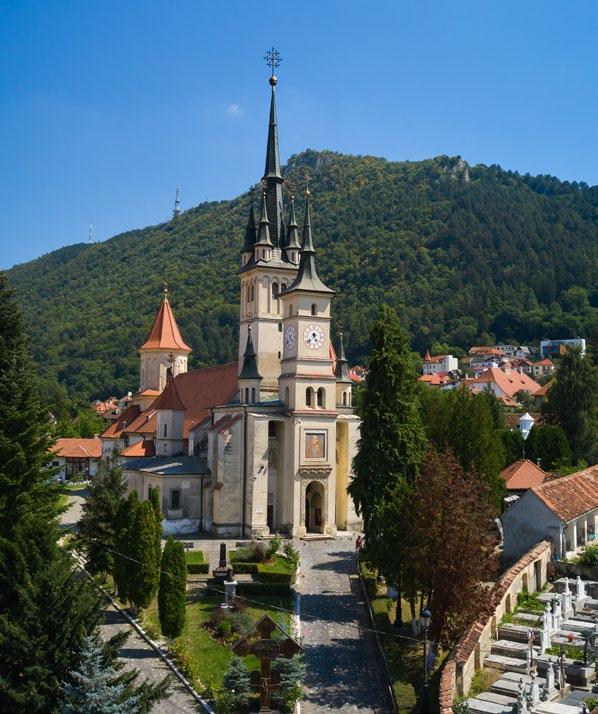

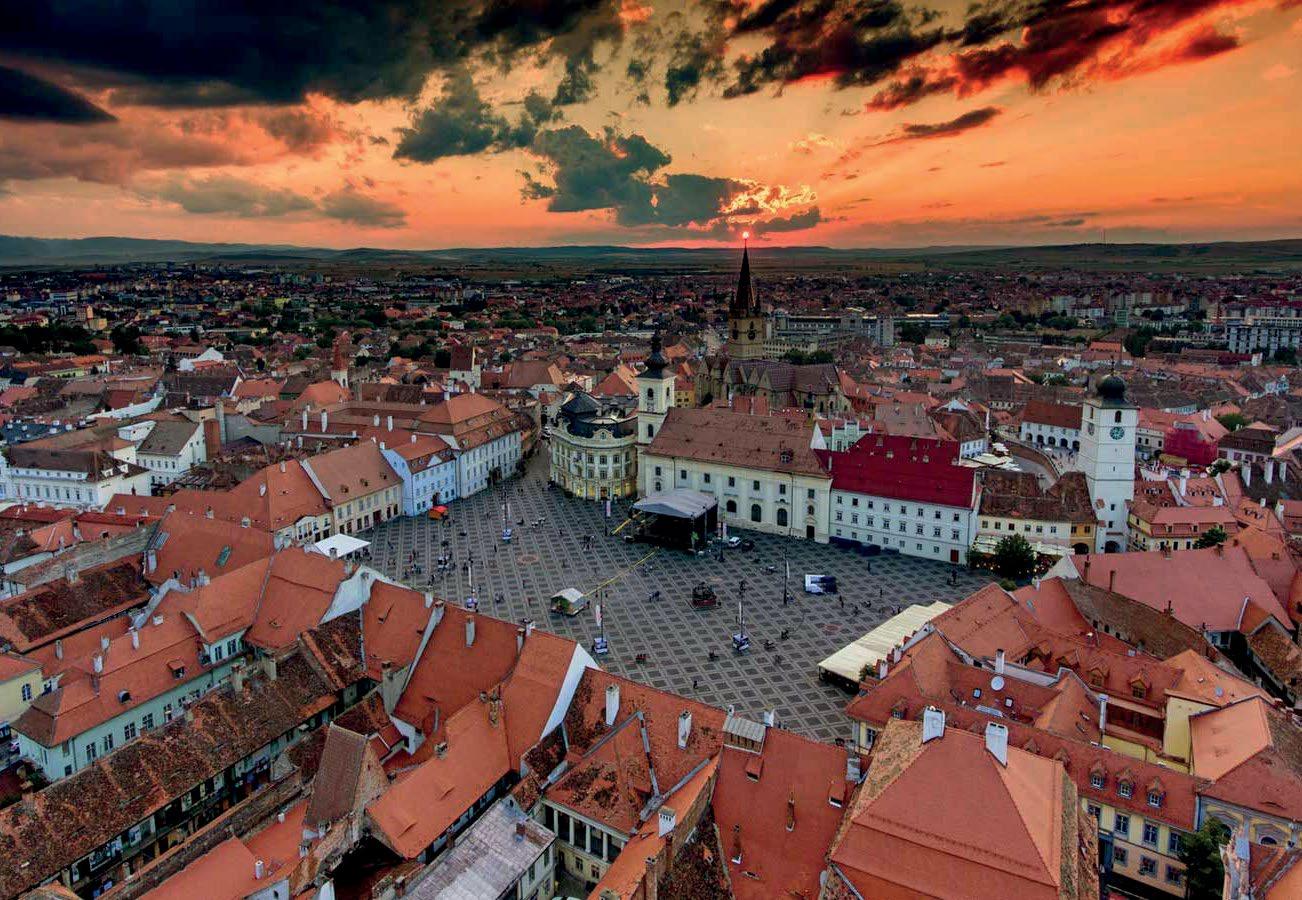





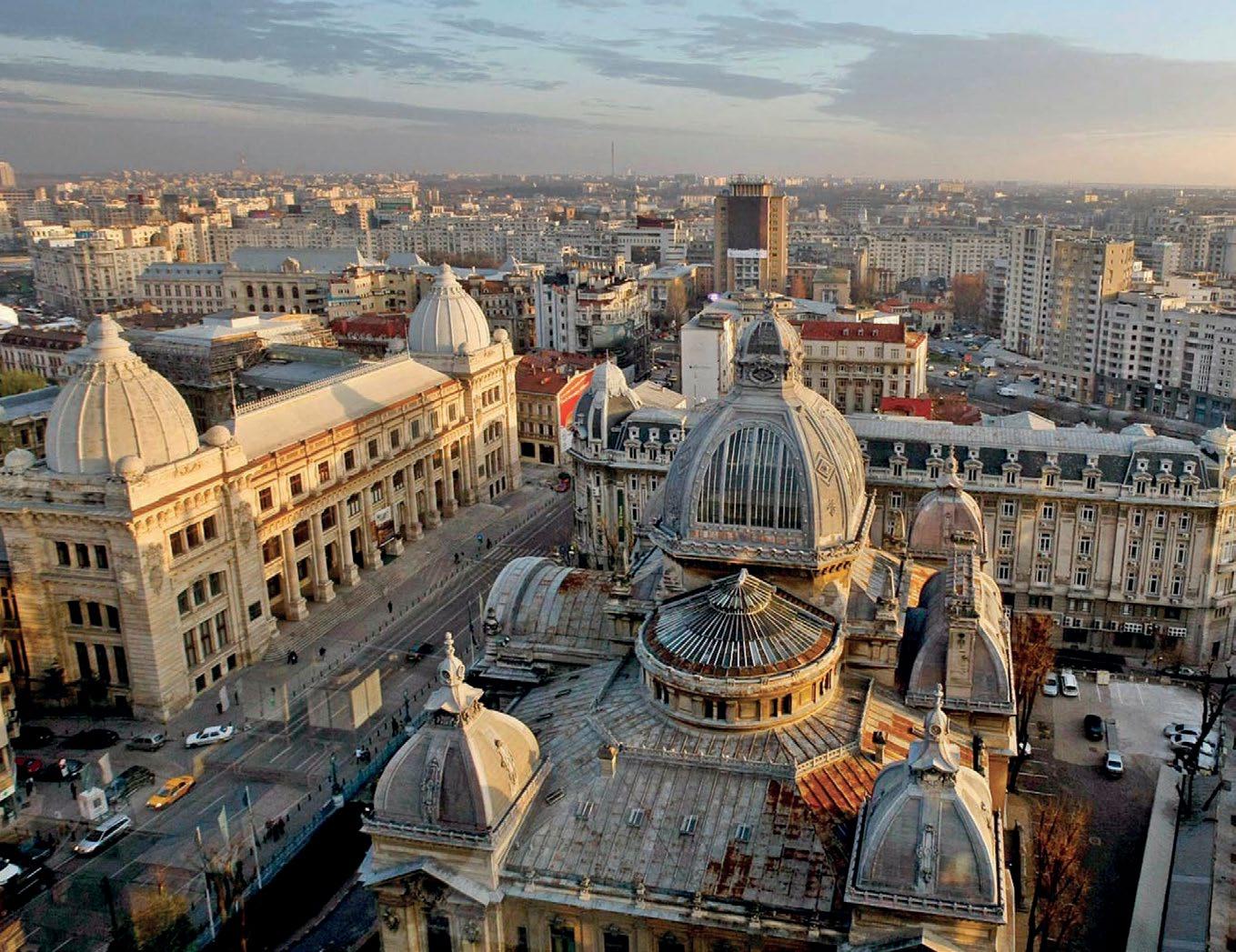














Bilateral trade between Germany and Romania has reached historic highs, fostering deeper collaboration and expanding opportunities in investment, digitalisation, and green energy under Prime Minister Ion-Marcel Ciolacu’s administration.
omania’s ties with Germany run deep. From historical ethnic links to modern economic synergies, the countries enjoy strong bilateral relations against a backdrop of shared policy, security and diplomatic viewpoints. “We align on numerous fronts with Berlin, standing shoulder to shoulder,” says Adriana-Loreta Stănescu, Ambassador at The Embassy of Romania in Berlin. “Whether it is European enlargement, support for Ukraine and the Republic of Moldova –both politically and in practical terms – or commitments to Euro-Atlantic security and upholding international norms and rules-based order, these are shared priorities for Romania and Germany.”
As the nation’s largest trading partner, Germany plays an important role in Romania’s drive for long-term financial sustainability. Boosted by significant
funding from the EU, two national resilience and recovery plans are anchored in infrastructure development, deficit reduction, tax reform and energy transition – measures designed, in part, to encourage foreign investment. “Romania is attractive because of its good taxation system, favourable labour costs and investor-friendly environment,” explains Minister of Finance Marcel-Ioan Boloș. “I want us to become the favourite destination for German and European investors.”
With a significant number of Romanian companies already part of the German automotive supply chain, the administration is seeking to highlight this successful integration as a model for further collaboration in other sectors. “Romania and Germany have similar economic structures since both countries value industry and small-to-medium enterprises,” says Ștefan Radu Oprea, Minister of Economy, Entrepreneurship
and Tourism. “Our economies complement each other and create synergy.”
One that has taken centre stage is the energy sector, with the expansion of renewables capacity and development of the country’s natural gas resources key to the government’s plans. Completion of the Neptun Deep project will make Europe’s largest natural gas exporter, while the development of solar, wind and other renewable sources will advance the nation’s aim to serve as an energy hub – with government programmes to incentivise German expertise and capital already in the works. “We hope Germany and other European investors can help Romania’s transformation and reform,” says Oprea.
Helping to pave the way is Romania’s accession to the Schengen Area in March 2024. The removal of internal air and maritime borders (with land borders to follow) enables smoother movement of goods and people between Member States. With this
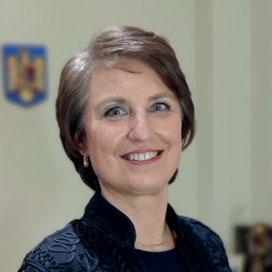
”
“We align on numerous fronts with Berlin, standing shoulder to shoulder.
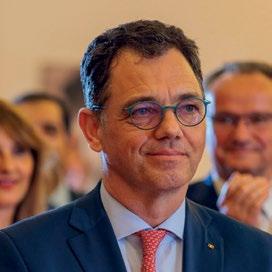
”
We hope Germany and other European investors can help Romania’s transformation.
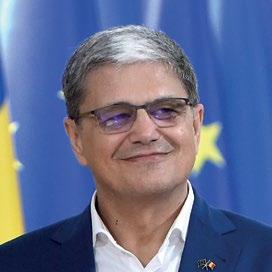
”Romania is attractive because of its good taxation system, favourable labour costs and investor-friendly environment.
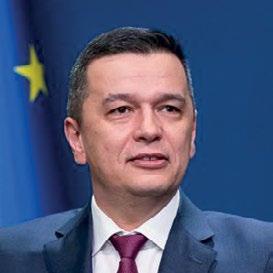
”
For the next ten years, one of our main priorities will be infrastructure.
Sorin-Mihai Grindeanu Minister of Transport Ștefan Radu Oprea Minister of Economy Marcel-Ioan Boloș Minister of Finance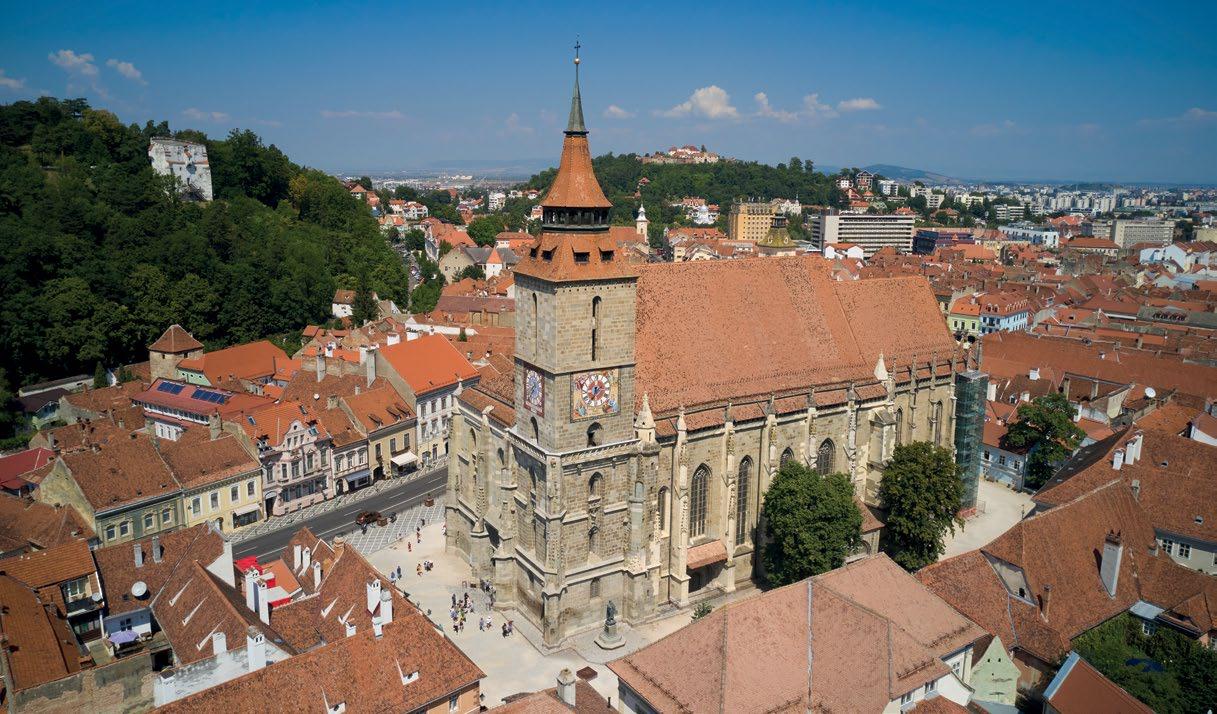
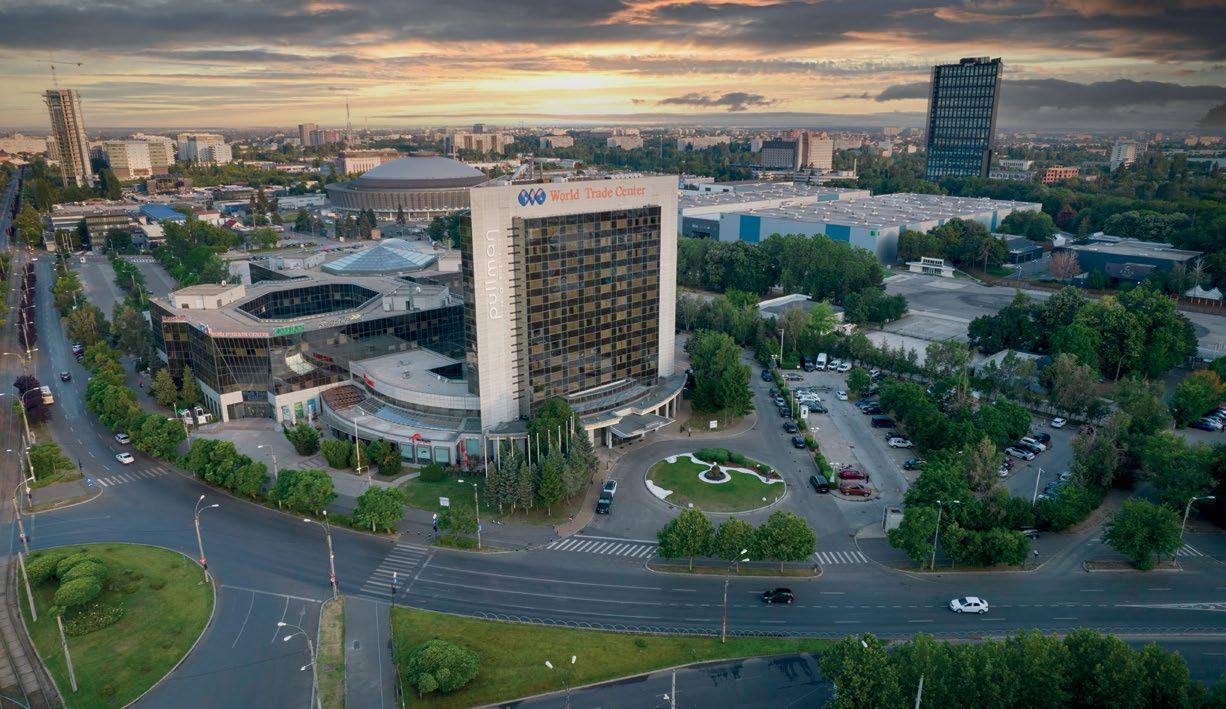
in mind, planned upgrades to road and rail networks offer the best way to stimulate the economy, according to Sorin Mihai Grindeanu, Minister of Transport and Infrastructure. “For the next ten years, one of our main priorities will be infrastructure. We need to build because one of the issues we face is the lack of infrastructure to facilitate growth.”
That sentiment is echoed by Sebastian Metz, Director General of AHK, the German-Romanian Chamber of Commerce, who notes the importance of Romania’s strategic location amidst shifting trade and transportation routes – highlighting the agricultural sector in particular, which has capacity to increase both production and processing output. “Romania is emerging as a hub for agricultural trade in Southeast Europe. Realising this potential requires political attention and investment in logistics.”
As the voice of German business in Romania for more than 20 years, and an engine of the growth in bilateral economic ties, AHK is well placed to recognise areas of opportunity. For AHK President Andreas Lier, sustainability is at the top of the list: “Companies must grasp the energy
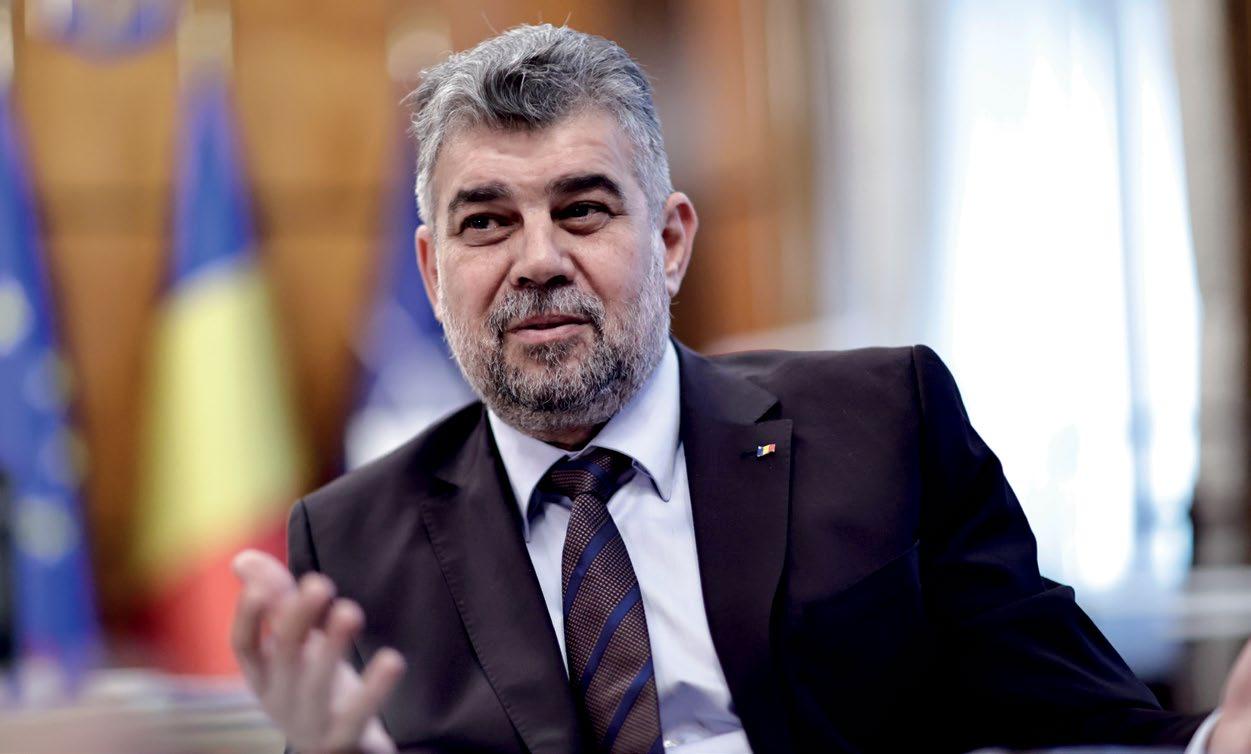
Q: What is the current standing of bilateral relations with Germany?
potential and embrace recycling and circular economy concepts,” he says. “The green transformation presents a significant opportunity for German companies to sell technology and collaborate with local companies.”
Easing that inflow of capital is one of the key aims of the Romanian Investor Relations Association (ARIR), whose initiatives have focused on increasing communication and transparency in domestic companies for foreign investors, while helping them adopt best practices in corporate governance. “The absence of comprehensive information may deter foreign investors, particularly financial institutions,” explains ARIR President Daniela Maior Serban. For Serban, the global interest in energy giant Hidroelectrica’s IPO, the third-largest in 2023, signifies the progress that has been made.
As Europe’s overlapping security and energy challenges continue to reshape the continent’s dynamics, Romania stands at an inflection point. With abundant natural resources and clear-sighted plans for development, the scope exists to assume an increasingly important role on the international stage.
Germany stands as Romania's principal economic and commercial partner. Excluding investments in the banking system, Germany would rank as the primary foreign investor in Romania. During my tenure as the Speaker of the Chamber of Deputies, I had multiple meetings with Chancellor Olaf Scholz, and our discussions were always transparent and fostered a clear partnership between the Chancellor and I. I firmly believe in the immense economic potential that exists between Romania and Germany, particularly in light of the regional security crisis in Europe. We have undeniably experienced an energy crisis due to disruptions in hydrocarbon supply chains, a consequence of sanctions imposed on Russia, causing widespread concern among the populace. Thus, it’s essential to scrutinize the security crisis through the lens of economic relationships. As Germany propels Europe’s economy, Romania, having learned vital lessons from past interactions with Russia, is no longer energy-dependent on Russian resources. Currently, Romania maintains independence in gas supply and electricity, and green energy is ascending in importance. Consequently, it’s logical for Chancellor Scholz and I to channel our efforts towards fortifying the economic ties between our nations.
Q: How do you see the evolution of this longstanding partnership?
The stability of the German economy enhances the sustainability of all European economies. A significant advantage brought by German companies to Romania is the stimulation of local development and the establishment of dual education. I am particularly attentive to the development in Brasov, stimulated by major German companies like
Continental and Daimler. Large-scale German investments not only elevate efficiency in the education sector but also introduce alternative development modalities. The ongoing German Romanian Economic Forum underscores the tight-knit relationship between our nations, as does our joint support for the Republic of Moldova. Presently, Romania and Germany are endeavouring to provide guarantees for companies aspiring to invest in the Republic of Moldova.
“Germany stands as Romania's principal economic and commercial partner.”
Q: What marks Romania as a favourable destination for German investment in green energy?
Romania possesses numerous funds to support investments in green energy and is one of only seven European Union states with access to the Modernisation Fund. We aim to direct these funds towards major green energy investments, envisioning these projects as potential partnerships between the Romanian state and private companies.
I ardently desire German investments in the green energy sector, particularly in energy storage. Romania, the sole former communist nation with nuclear technology from Western countries, boasts the most significant offshore energy project in the Black Sea. We’re contemplating a project, in association with the Southern Caucasus, Azerbaijan, Georgia and the European Commission, for an underwater cable for green energy through the Black Sea. This energy is, essentially, directed towards the European Union, and we aim to channel it towards Europe’s economic engine.
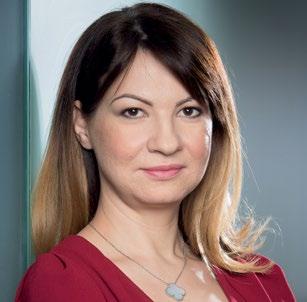
“Romania’s digital sector is particularly attractive due to the country’s expertise.”
Dana Bulat , Owner, United Media Services
Bucharest-based advertising and marketing agency United Media Services (UMS) connects brands with their audiences, developing and implementing cutting-edge digital strategies using advanced technologies like AI and automation. Currently
TEMAD imports and distributes materials and technical services to retailers and construction sites across Romania. Founded as a family business, it has keenly embraced operational innovation and now efficiently serves a rapidly expanding customer base. The company’s established nationwide network means it is well placed to extend the reach of international manufacturers looking to break into the Romanian construction market.
Continues on page 13
the country’s only media agency certified as a Google Marketing Platform Partner (GMP), UMS has enjoyed a rapid rise to success, thanks, in no small part, to Romania’s fertile digital ecosystem.
Continues on page 21
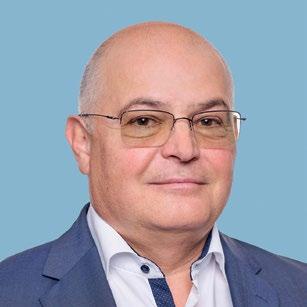
“We play a crucial role in bringing innovative products to Romania.”
Florin Madar, Founder, TEMAD
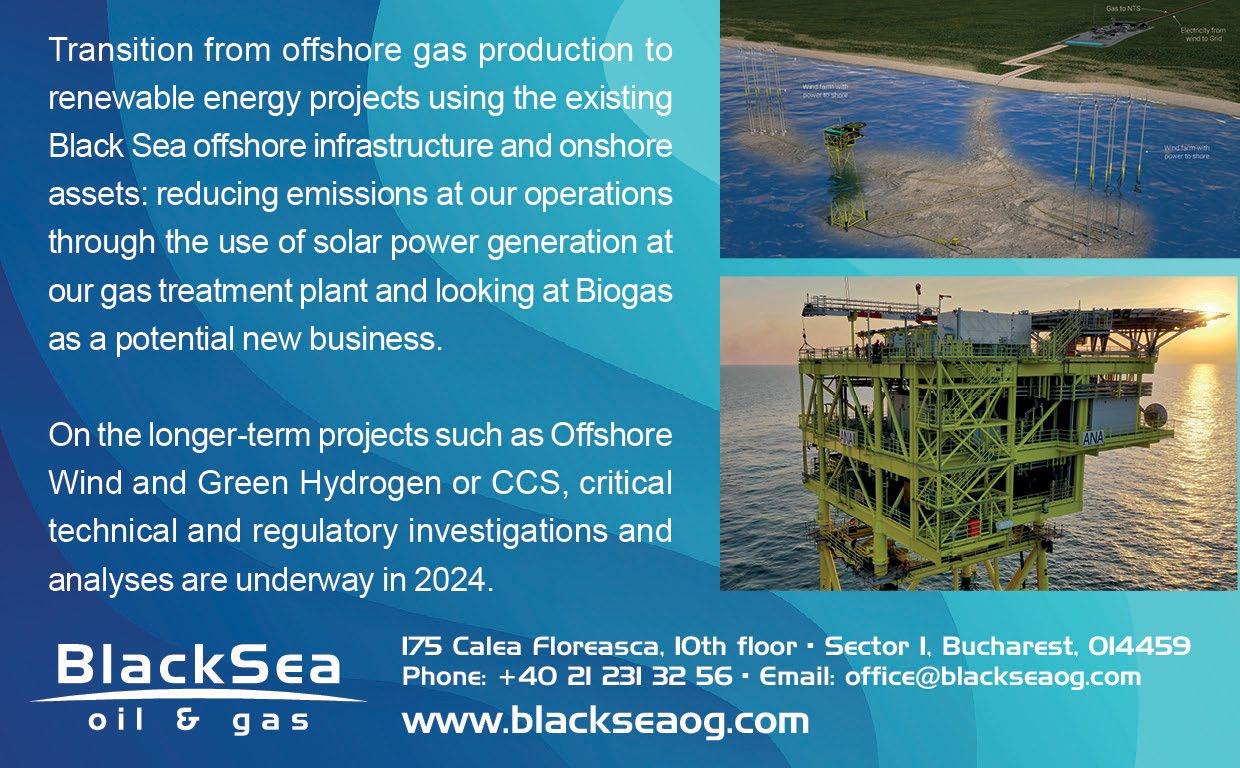
Romania is reinventing itself. Amid challenging global economic conditions, its businesses are helping their country to become more sustainable, resilient and better prepared for the future. Meet the people redefining Romania.
Forty Management develops high-end residential and commercial properties in Romania. Projects include pioneering mixed-use ‘lagoon’ developments that focus on creating sustainable live/work spaces in urban locations – a concept that the company is expanding in major cities across Europe.
In 2022, Forty Management committed to an ambitious green agenda, prioritizing carbon-neutral projects and taking a more holistic approach to new development opportunities.
Continues on page 17
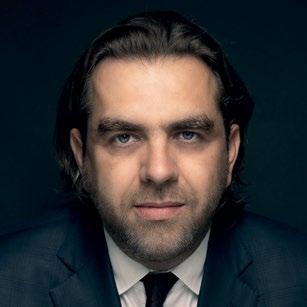
“Eastern Europe is a hub of innovation and Romania is full of opportunities.”
Lucian Azoitei, CEO & Founder, Forty Management
“Striving for excellence beyond industry benchmarks allows us to lead with purpose.”
Calin Matei, CEO, Groupama Asigurari
Groupama Asigurari has an impressive reputation in Romania’s expanding insurance sector. The firm offers market-leading products including property, accident, life and health insurance, and has also forged strategic partnerships with
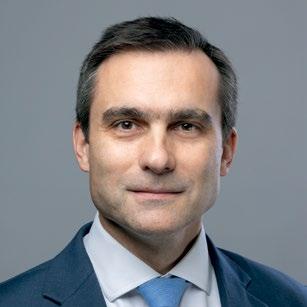
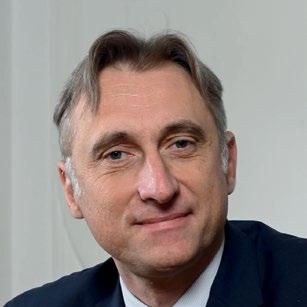
the many of the country’s banking and financial institutions. A subsidiary of a long-established French company, Groupama operates as a mutual entity with a focus on innovation, community and wellbeing.
Continues on page 22
“Our success has made Brasov a model for best practices across Romania.”
Allen Coliban , Mayor of Brașov
Well over half of Romania’s population live in its urban centres – a figure that is on the rise. Imaginative public projects in the country’s cities are ensuring that residents can look forward to cleaner, greener and more sustainable living spaces – a transition that is already happening in Brașov, where a 1.6bn-lei EU-funded investment is transforming energy, transport, health, education and leisure provision.
TEMAD FORTY MANAGEMENTBrașov, with its medieval charm, vibrant culture, and strategic location, welcomes German tourists and investors to explore its rich heritage and business opportunities.
On Sunday, 12 May 2024, the Mayor of Nuremberg will visit Brașov to formalize the official brotherhood between the two cities. This visit, which marks the culmination of a 15-year partnership, will also include his attendance at a significant city event, “Junii Brașovului,” a traditional parade featuring horseback processions.
“Brasov’s medieval history, diverse cultural offerings, and connection to nature make it a unique and appealing destination,” says Allen Coliban, Mayor of Brașov. “We aim to diversify tourism, including backpackers, business, medical, and historical tourism.”
Brașov is now working on a new tourism strategy and has submitted the documentation for Destination Management Organization (DMO) certification, which is expected to be operational soon.
The Municipality is also keen to develop its attractiveness as a business and investment destination. “We have
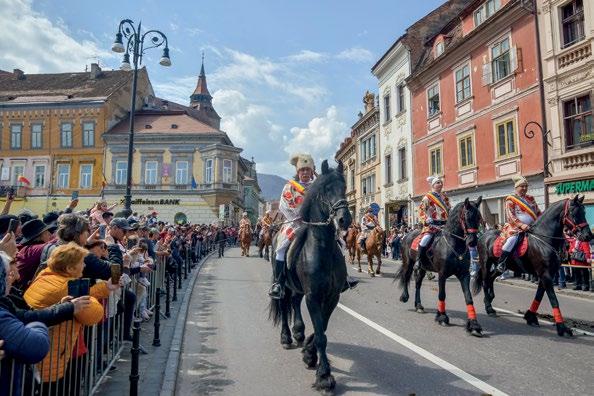
participated in events such as Expo Real in Munich to attract investors, presenting Brașov and its opportunities,” says Mayor Coliban. “InvestBraşov.org is a one-stop shop for potential investors, providing comprehensive information on demographics, workforce, and other relevant data.”
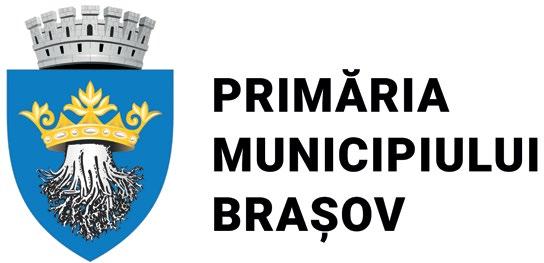
Over the past 30 years, Bucharest’s World Trade Center has been a key supporter of Romania’s business community, consistently championing local enterprises and serving as a gateway to growth.
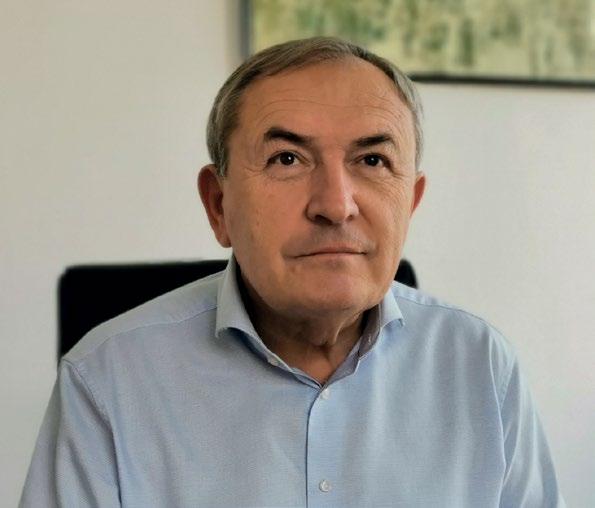
In many ways, the World Trade Center in Bucharest is a potent symbol of Romania’s successful transition to a modern European state. Founded in 1994 and financed with the help of foreign investment, the World Trade Center remains the largest events and conference complex in the capital, comprising 40,000 square metres of mixed-use space, including offices, a four-star hotel and world-class con -
ference suite, as well as retail and restaurant amenities.
The World Trade Center in Bucharest is part of an established global organization, one of more than 300 such trade centers that exist to help local businesses access international opportunities. The Center has especially close relationships with the four World Trade Centers in neighbouring Germany, using its network to connect Romanian businesses with German investors looking to forge fresh commercial connections in Central and Eastern Europe. “We are the biggest World Trade Center in Eastern Europe,” says special administrator Mircea Ursache. “We provide Romanian entrepreneurs with information on German entrepreneurs’ interests here and in the Romanian economy,” Ursache further explains, highlighting the Center’s pivotal role in promoting Romania’s business community, in addition to offering events and conference facilities.
Continues on page 20

As ‘digital challengers’ like Romania begin to supplant more established players, this new dynamic is accelerating broader economic development in Central and Eastern Europe (CEE).
In fact, global strategy consultants McKinsey predict that accelerating digital growth in Romania could be worth around US$56bn by 2030, accounting for almost 10% of the country’s GDP. The government is squarely behind this transition and is keen to capitalize on the potential for mutually beneficial public-private partnerships.
“Romania is the third-largest digital economy and the second-largest e-commerce market in CEE,” comments Bogdan-Gruia Ivan, Minister of Research, Innovation and Digitalization, confirming his department’s commitment to greater technological advancement. “Romania could become the European Silicon Valley.”
Romania’s digital sector appeals to investors largely due to the expertise of its workforce, and because costs, including salaries and capital, are lower, relatively speaking, than in Western Europe. Clujbased digital disruptor RebelDot has
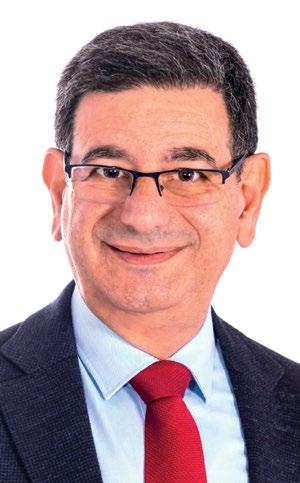
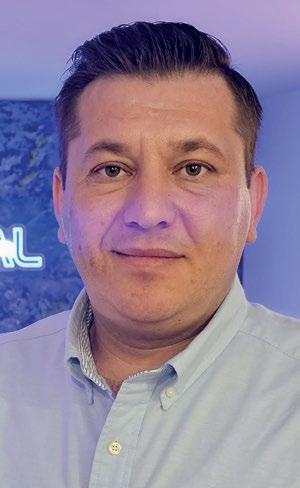
FRIAL has been providing storage and distribution services in Constan ț a for half a century, steadily extending and expanding its facilities to accommodate escalating customer demand in this thriving Black Sea port. In the last two years, FRIAL has more than tripled the volume of cargo passing through its terminal to top the 2m-ton mark in 2023, a figure that is likely to be surpassed this March as Romania enters the Schengen zone for air and sea transit. The country’s new status is expected to further streamline import and export operations, helping to attract inward investment to its industries and transport infrastruc -
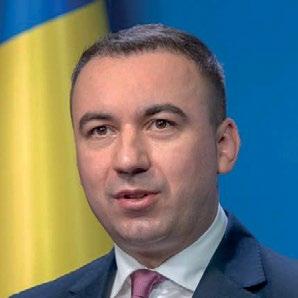
Innovation and Digitalization
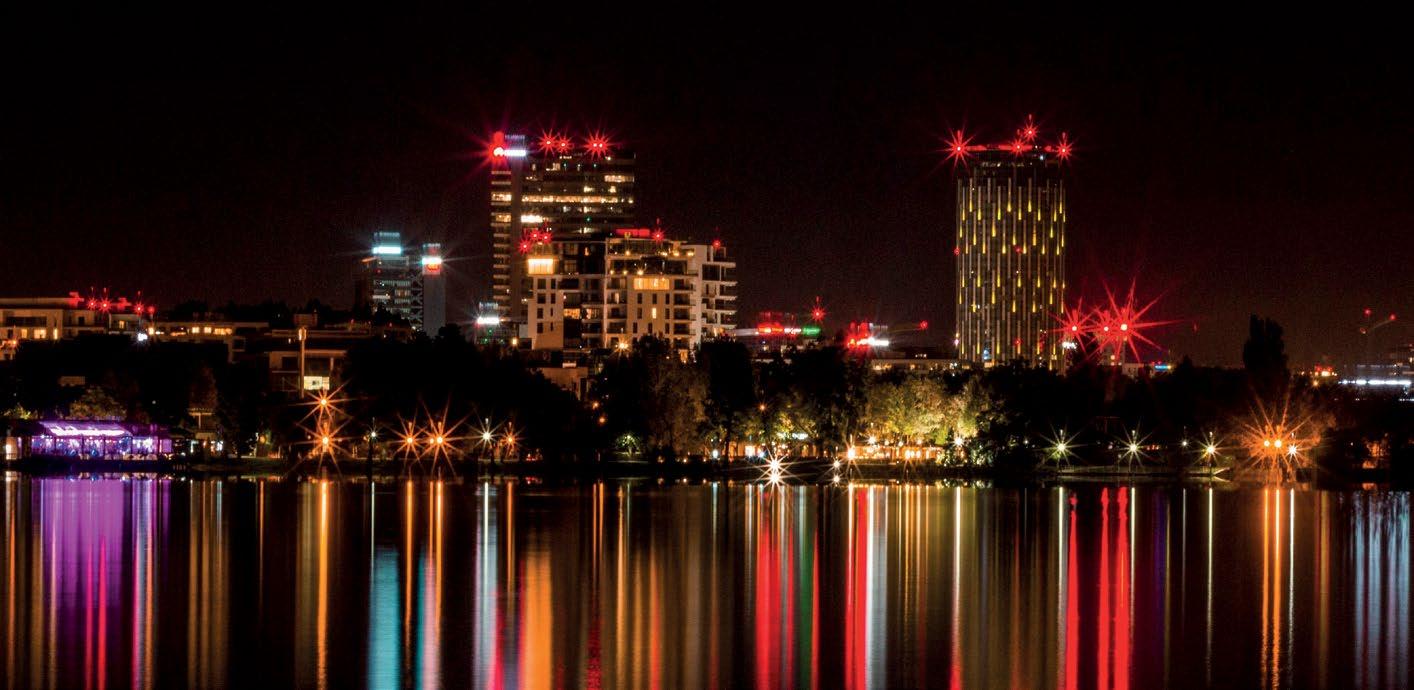
grown exponentially since its inception in 2018. The company specializes in solving problems through technology. “Our mission is to bring value through technology, through honest partnerships,” says CEO and founder Tudor Ciuleanu. “Our edge is that we build products for our clients and solve problems, not just offer talent.” RebelDot is expanding so quickly that it has already opened a subsidiary in Denmark and is considering other locations in Germany, the U.K. and the U.S.
Advertising is also a thriving sector in Romania’s digital economy with analysts projecting annual growth rates of 5% and estimating a market value of more than
“Schengen could bring new investors to Romania to take advantage of the growing economy.”
US$700m by 2028. Advertising and marketing specialists United Media Services deliver creative client campaigns with particular expertise in digital platforms.
“We focus on developing and implementing cutting-edge digital strategies, incorporating advanced technologies like artificial intelligence and automation to stay ahead,” says founder Dana Bulat. Bulat is keen to acknowledge the role of the government in helping to create a fertile ecosystem for this digital evolution. “Romania has taken significant steps to promote the IT industry, creating favorable business conditions that encourage its development.”
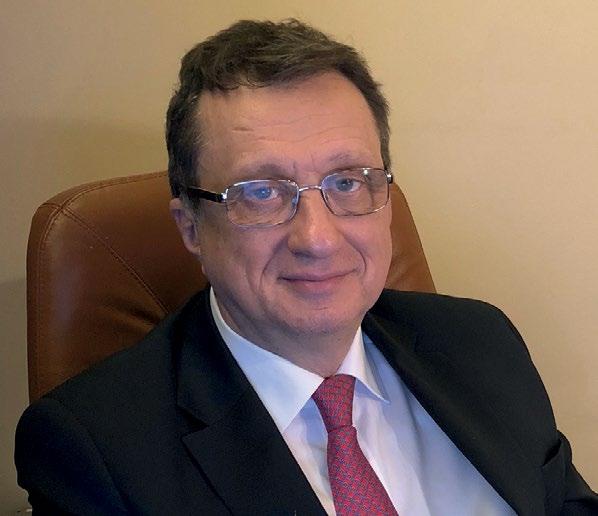
ture. “Romania will be an entrance to Schengen, as cargo will pass through us first,” explains FRIAL Chair, Fouad J. Khayat. “In addition, Schengen could bring new investors to Romania to take advantage of the growing economy.”
FRIAL’s agility has enabled the company to adapt swiftly to change, augmenting warehousing capacity and increasing loading speeds to meet operational demands. “We are buying new equipment for cargo handling and storage,” adds Khayat, “and starting joint ventures to develop new projects and expand our reach.”
Operating from the Port of Constanța since 1991, Comvex now has the largest bulk raw material handling terminal in the Black Sea area. Its prime location, 700-square-metre facility and established routes to Europe’s industrial and agricultural hinterland enable the efficient, timely delivery of goods from all over the world, at the same time providing high-volume, outward-bound logistics options for Eastern Europe’s grain producers. In recent years, the company has focused on growing its handling and storage facilities, expanding physical infrastructure and increasing operational efficiencies. “We are currently implementing a programme to increase our storage capacity by 25% - equiv-
“We are currently implementing a programme to increase our storage capacity by 25%.”
Viorel Panait, Director General, Comvex S.A.
alent to an additional 50,000 tons,” explains Comvex’s Director General, Viorel Panait. “Our deep-sea terminal is also capable of accommodating vessels with a capacity of 110,000 tons.” This shift in scale has enabled Comvex to support the Ukrainian economy, and the company now handles 70% of Ukraine’s grain exports through Constanța. The EU’s continued focus on increasing bloc-wide grain production is also creating greater opportunities for collaboration and investment. “The positive momentum now motivates us to expand grain capacity, reinforcing our commitment to these strategic developments.” says Panait.
JABBAR KANANI FOUNDER, AGRICOVER
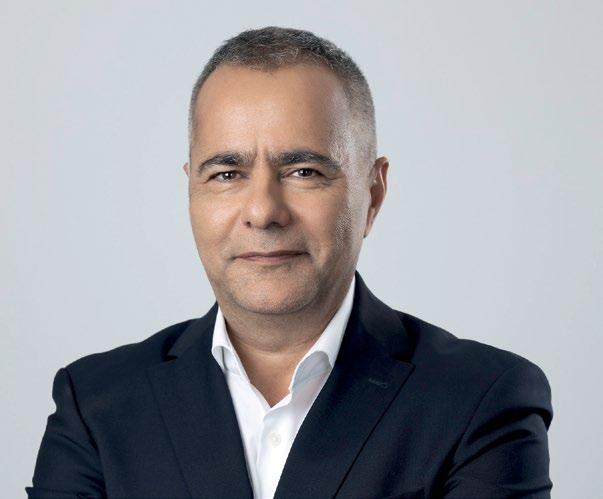
Agricover provides the financing, products and technologies that support precision farming in Romania’s expanding agricultural sector. Founder Jabbar Kanani explains how, by working with key financial institutions including the European Bank for Reconstruction and Development (EBRD), the company is increasing market penetration through flexible financing.
“Synergy is the key element and our main source of innovation.”
Q: What is Agricover’s primary focus?
Agricover's main concern is the sustainability of farms in Romania – almost 50% of Romanian farmers have worked with us in one way or another. Small farmers in Romania need financial support, and we are constantly innovating our products to meet their requirements.
Q: How has your business strategy changed in response to world events?
We have managed to be a pillar of trust for agriculture in Romania, to provide security to our partners, and, at the same time, to be profitable. Year on year, Agricover has maintained a steady pace of healthy growth. We see more potential for growth, but our main focus remains to meet the needs of farmers.
Q: What challenges does the Romanian agricultural sector face?
Romania is a net producer of raw materials for the food sector, such as cereals and oilseeds, but we are also a net importer of finished products for the food sector. We need to break out of this framework and use raw materials to produce in Romania, not just to export them. One of the biggest challenges, though, is encouraging young people to return to the agricultural ecosystem.
Q: What part does innovation play in Agricover’s strategy?
We are continuously innovating the business model to best meet the changing needs of farmers and support the transformation of agriculture. Synergy is the key element and our main source of innovation through which we offer our farmer partners specialised solutions that meet their real needs, accelerating the adoption of the latest technologies in the field. It is the uniqueness of our agri-fintech business model that
supports the progress and productivity of Romanian farmers.
Q: What is the current outlook for Romanian agriculture?
There is a need to be more sustainable and autonomous following the effects of the COVID-19 pandemic. Romania has 13 million hectares of agricultural land, a strategic logistical position, benefiting from a seaport, and high potential in human resources.
Q: Are there opportunities for greater inward investment?
I believe there is high potential for the processing sector in Romania if Germany provides the technology to help our growth. We want German companies to invest in Romania so that there is an exchange of knowledge at a general level. If we could create a partnership between the German food industry and the Romanian agricultural sector, we could also reduce the emissions we create by transporting raw materials.
Continues on page 26
MIHAI VOICU GENERAL MANAGER, BERGENBIER S.A.
As premium Romanian drinks company Bergenbier celebrates its 30th anniversary, General Manager Mihai Voicu reveals ambitious plans for building a market-leading brand that honours its heritage while fully embracing innovation.
Q: How would you describe Bergenbier’s current strategic direction?
We recognise the need to innovate and enhance our brand. Our objective is to reclaim our position as a market leader, competing with brands like Stella Artois and Corona.
Q: What is your growth strategy for the coming years?
While the beer market faces difficulties, we are successfully navigating this challenging environment – forecasting double-digit growth. Our strategy of promoting Bergen -
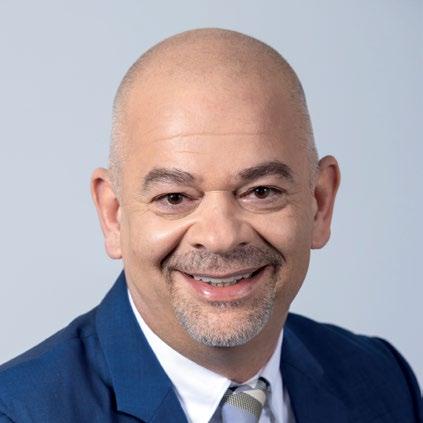
“Our objective is to reclaim our position as a market leader.”
bier’s portfolio with premium, core and zero-alcohol brands is poised to drive success. Our ‘Fresh 0.0’ product line has seen growth of over 40% in the past year.
Q: What about the potential for forging closer links with Germany?
Romania’s potential for growth makes it an attractive destination for significant investments. Romania was the first country to produce Beck’s out of Germany, which shows Germany’s trust in Romania’s ability to produce quality products.
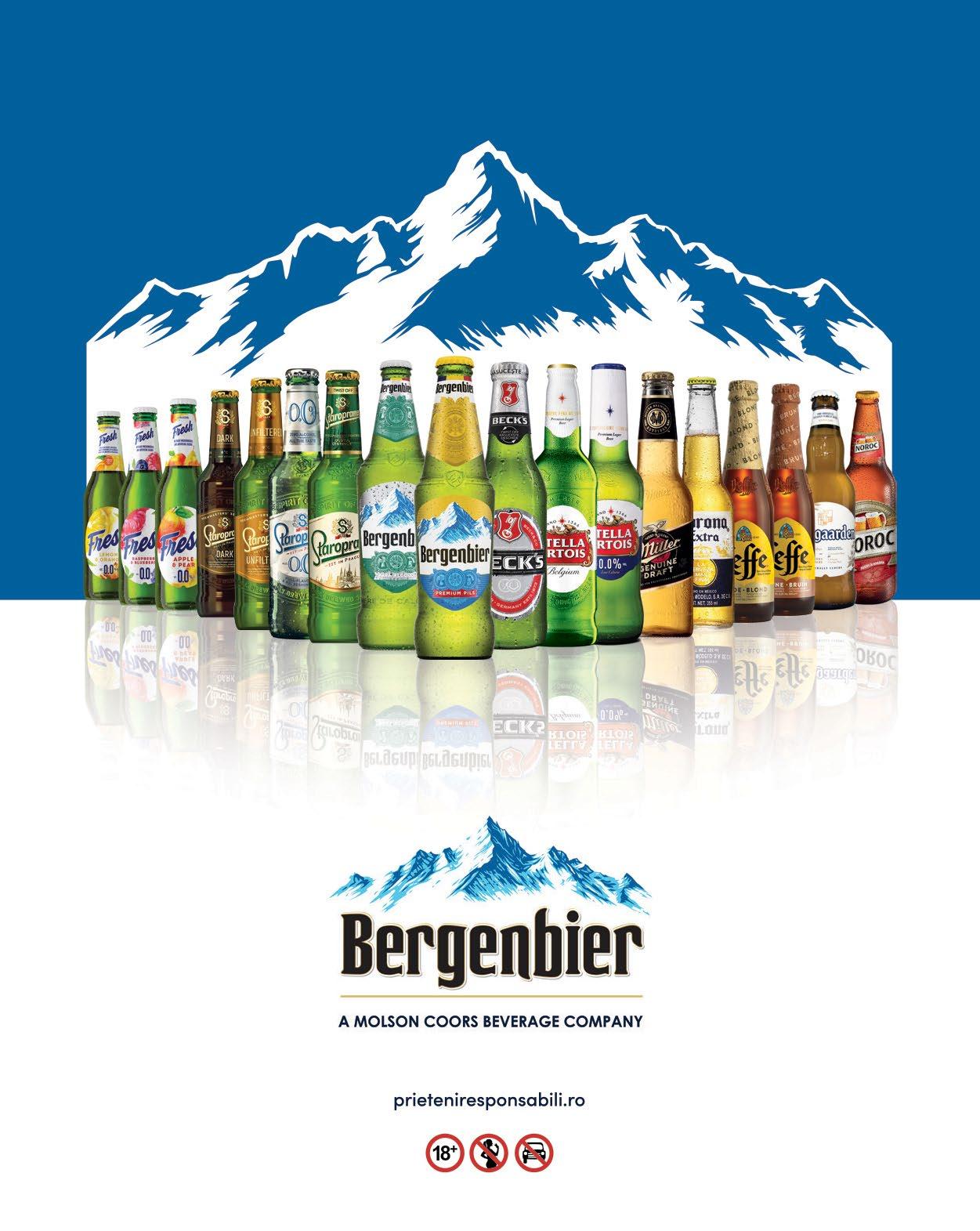
NEPI Rockcastle is transforming the retail landscape in the rapidly developing investment markets of Central and Eastern Europe, thanks to an impressive €6.8 bn property portfolio distributed across nine countries.
Romania-based property business NEPI was established in 2007 but thanks to a later merger with Rockcastle, a real estate company operating in Poland and Czechia, this retail-focused organisation has grown to become the leading strategic partner for major retailers targeting CEE countries. The group’s financial leverage has unlocked new opportunities in a region where demand is still evolving. Within the last two years alone, NEPI Rockcastle has acquired assets totalling almost half-a-billion euros, including prestigious developments in Gdansk and Turun, to satisfy accelerating demand from European retailers. Romania is an area of particular focus. The company’s €136mn Promenada Craiova project – the CEE region’s
FOCUS ON REMATINVEST
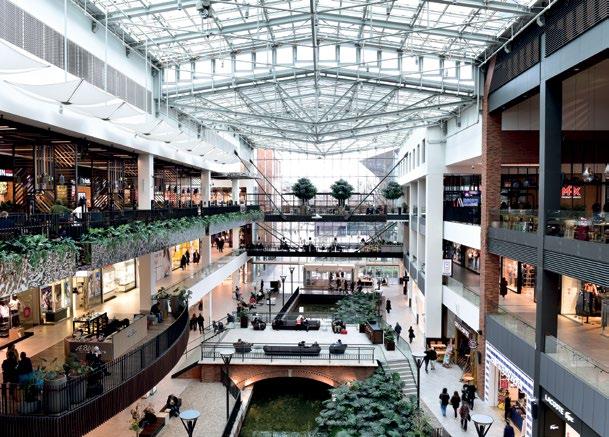
largest retail development (by both size and investment value) of 2023 – opened its doors to customers in October last year, accommodating high-value global brands including Calvin Klein, Tommy Hilfiger and Zara. NEPI Rockcastle is also currently developing a 35,000-square-metre retail park in
Galati, Romania, expanding the retail offer within the city.
International retailers and investors are increasingly recognising the potential of a region where the pace of economic growth, coupled with rising household incomes and lower operating costs are creating more compelling opportunities than in the mature ecosystems of their Western European neighbours. “This is not an emerging or a saturated market, but a developing market,” explains NEPI Rockcastle’s CEO, Rüdiger Dany. “The returns here are much better; we see retailers in their growth markets in central Eastern Europe.”
Importantly, NEPI Rockcastle are managing to drive successful and profitable retail projects, at the same time
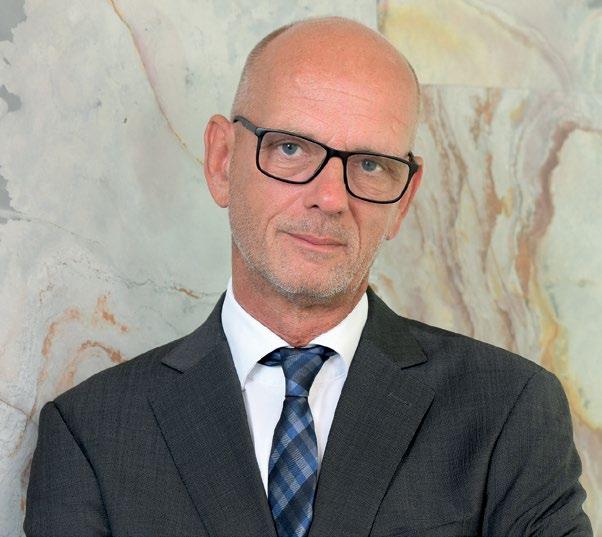
committing to sustainable building solutions. A total of €37mn has recently been invested in photovoltaic installations across 30 developments in Romania to improve energy efficiencies – it is expected that almost a third of the energy consumption required will be generated via on-site green initiatives in these locations.

Founded in 2003, Rematinvest is a leader in the Romanian recycling industry. Across its diverse range of operations, a longstanding commitment to sustainability and environmental protection shapes the firm’s mission.
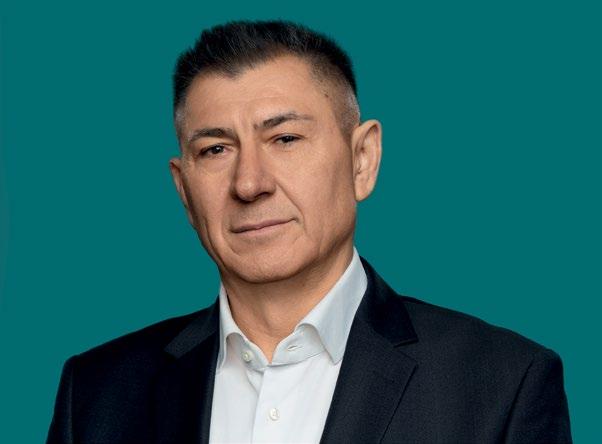
“Romania offers abundant opportunities for new businesses.”
LIVIU CIUPE FOUNDER AND CEO
Over the course of twenty years, Rematinvest has grown into one of Romania’s largest processors of recyclable materials, a journey defined by the ethos of Founder and CEO Liviu Ciupe. A pioneer in the sector, Ciupe first started
working in recycling in 1992, when few companies were active in the field. “I was driven by the need to protect the environment and contribute to the circular economy,” he explains. “Success in any industry requires a clear vision and continuous growth, achieved through investments in technology.”
Since Rematinvest’s founding, investment, collaboration, and innovation have shaped the company’s development path. Recent upgrades to equipment and waste processing technology were made with efficiency in mind, motivated by a clear-sighted recognition of customer needs. Recognizing that its workforce is its greatest asset, Rematinvest is also committed to the professional and personal development of its employees. “My focus is on investing in both people and technology to foster continuous growth,” explains Ciupe.
This mindset is best exemplified in the company’s longstanding partnership with German group Scholz AG. Founded on
knowledge transfer, shared expertise and business synergies, the relationship has facilitated Rematinvest’s expansion into international markets and strengthened its domestic position – while affording Scholz a range of opportunities in Romania. For Ciupe, the success of the working agreement stands as an example of the mutually beneficial nature of cross-border collaborations – one he hopes will stimulate the development of similar bilateral commercial agreements. “Investors bring valuable know-how, knowledge and expertise, contributing to our learning and development.”
As the driving force behind a firm built on innovation in a constantly evolving industry, Ciupe is optimistic about the future of both his company and country. “Romania offers abundant opportunities for new businesses to thrive and grow,” he says. “Rematinvest stands as a clear example for potential investors, demonstrating that success is achievable.”
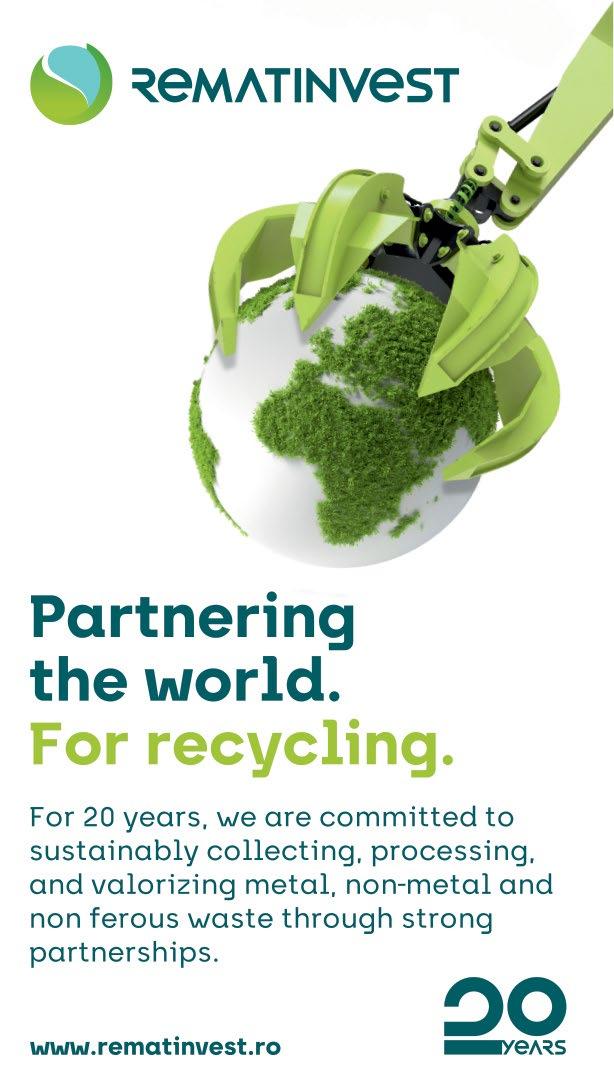
Romania's pharmaceutical and healthcare sector offers resilient investment opportunities in a challenging global climate.
Romania's healthcare sector is expanding rapidly. The latest forecasts show that pharmaceutical revenues are expected to top the US$1.6bnmark in 2024 and reach over US$2bn by 2028. Much of this growth can be attributed to advancements in biopharma and healthcare IT, where technological innovation is key. Romania not only has a highly skilled healthcare workforce but is also incubating R&D excellence in the Technopolis Technological Park in Iași.
German investors have a unique opportunity to tap into Romania's healthcare research, manufacturing and distribution ecosystem.
Recent analysis from PwC highlights the potential for AI and generative AI (GenAI) applications to unlock signifi -

cant prospects across the pharmaceutical value chain, especially in areas such as drug discovery and clinical trial design. With a sector keenly focused on innovative therapies and digital solutions, Romania’s AI healthcare market is projected to increase twenty-fold from 2022-2028 – thanks in part to ground-breaking advancements in the prediction and detection of diseases. German investors have a unique opportunity to tap into Romania's healthcare research, manufacturing and distribution ecosystem, leveraging the sector’s growth and its strategic advantages within the European context.
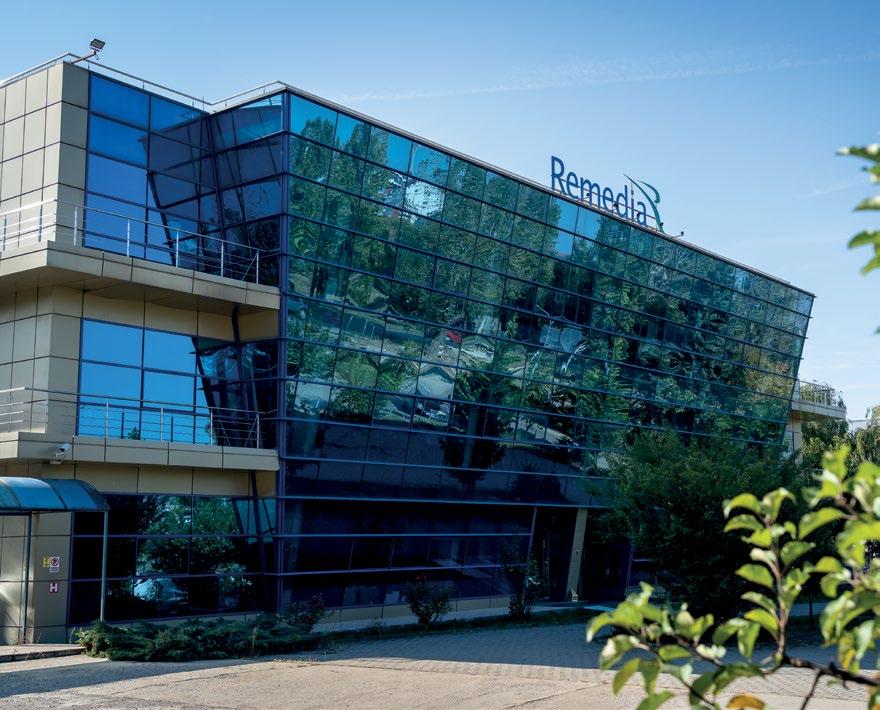
VALENTIN-NORBERT
TARUS GENERAL DIRECTOR & PRESIDENT OF THE BOARD, FARMACEUTICA REMEDIA S.A.A top-ten pharmaceutical distributor in Romania, Farmaceutica Remedia serves more than 3,000 customers nationwide. Built on agility and adaptability, the company saw turnover grow 10% to €120 million in 2023.
Q: What sets Remedia apart from its competitors?
We offer hand-tailored solutions to our customers. There are companies that are ten to twelve times our size in terms of volume, but our motto is “small yet exquisite.” We believe that the agility, adaptability and service level we provide to our partners — both suppliers and customers — may surpass what larger companies can provide.
Q: How might potential partners leverage your ability to bring drugs to the market effectively?
Historically, Remedia has been a tra-
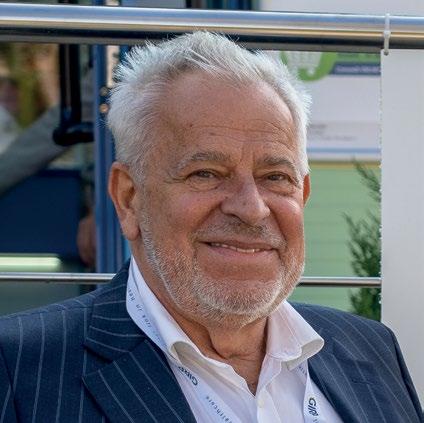
“Remedia has been a traditional partner for introducing new companies to the country.”
ditional partner for introducing new companies to the country and facilitating marketing efforts for companies not previously present within the nation. We continue to maintain a regulatory department, providing services related to product registration and updating product variations, and we engage in the promotion of pharmaceuticals through our marketing and sales teams, operating in hospitals and other healthcare settings.
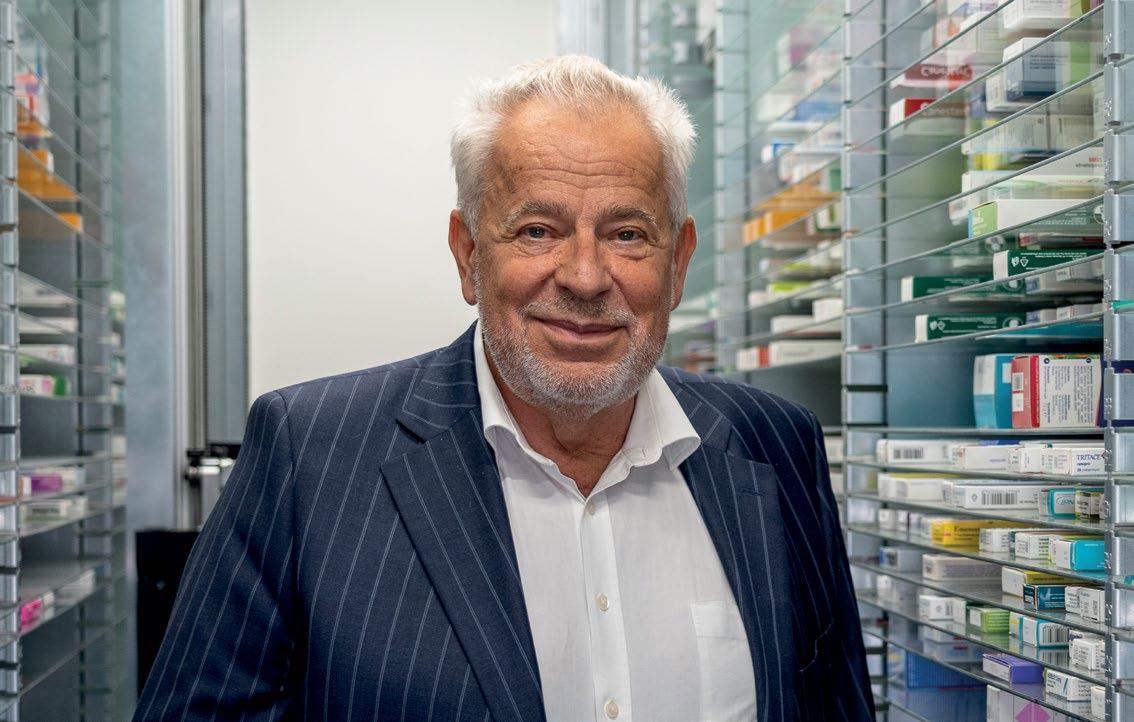
Remedia, one of the top 10 distributors in the pharmaceutical market and listed on the Bucharest Stock Exchange since 1996, specializes in sales and distribution of medicines, promotion, marketing, regulatory activities, and logistic services in the healthcare sector.
Driven by digitization and safety processes in pharmacies, warehouses, and hospitals, Remedia opened a new business line in 2021 in partnership with BD Rowa. This initiative launched the 1st Smart robot in one of its own pharmacies in Bucharest and facilitated the delivery and installation of robot systems in 10 pharmacies across Romania. Remedia’s specialized service team also provided robot installations in 8 pharmacies in Slovakia, Austria, Germany, and Italy.
Remedia ranks among the top 10 most profitable companies listed on the Bucharest Stock Exchange, with a 7.5% dividend yield paid in 2023, reinforcing the company’s consistent dividend policy and positive returns over the last 14 years.
Constantly committed to ongoing communication with investors, Remedia received the maximum score of 10 in the VEKTOR ranking assessment performed by the Association for Investor Relations of the Romanian Stock Exchange for three consecutive years (2021-2023).
Focused on paving the way for a sustainable business, Remedia is among the top-listed companies with the highest ESG industry scores published on the Bucharest Stock Exchange Research Hub.
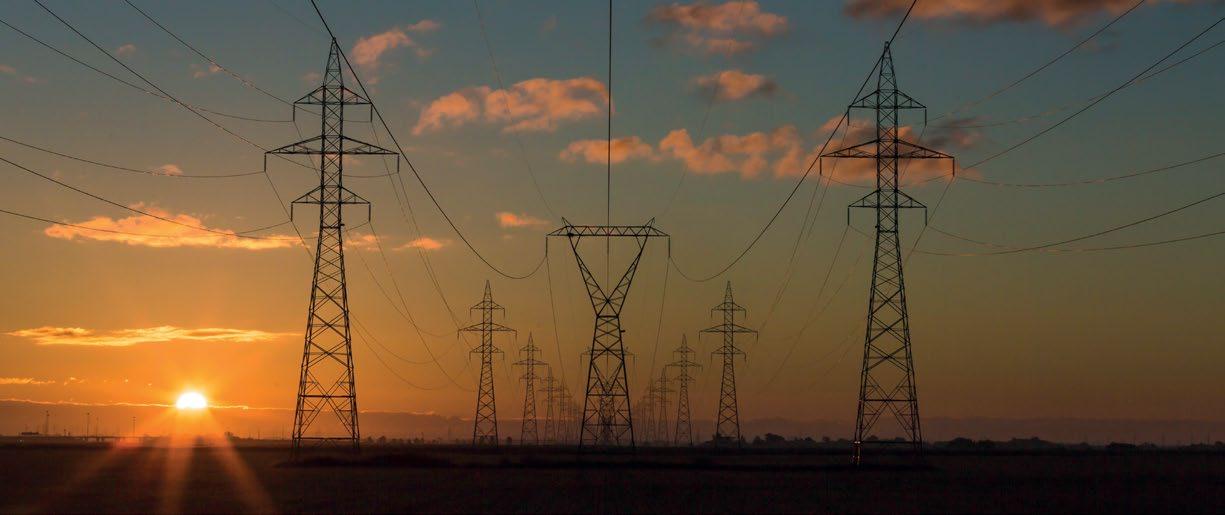
Romania’s array of natural resources is serving as the launch pad for an ambitious new plan to become an energy hub for Central Eastern Europe. “We have a diverse energy mix from green energy, nuclear and hydro,” explains Minister of Energy Sebastian-Ioan Burduja. “We have every resource possible and every argument to serve as an energy hub.”
With a significant budget dedicated to supporting the green transition, Romania’s leaders are keen to foster collaboration with the private sector across both investments and policy. Already a net energy exporter, further expansion of its renewables capacity – coupled with the modernisation of transmission infrastructure – is slated to boost supplies available to send abroad.
“We have a diverse range of investments under the green transition, including solar, wind, hydrogen, storage capacities, batteries, carbon capture
RĂZVAN POPESCU CEO, ROMGAZRomgaz CEO Răzvan Popescu shares his insights as head of Romania’s largest producer and main supplier of natural gas.
Q: What have been the key goals for Romgaz in your first year as CEO?
Our primary objective is the completion of the Neptun Deep project, a pivotal investment for both the company and the Romanian state in recent years. Additionally, we are progressing towards the commissioning of the Iernut power plant, a 430-megawatt gas facility slated to contribute approximately 7% of Romania's energy consumption. Furthermore, we are expanding into renewable energy, with ongoing feasibility studies for a facility with 40-megawatt photovoltaic capacity.
Q: What marks Romania’s energy sector as an attractive opportunity for German and international investors?
Romania's substantial investment in
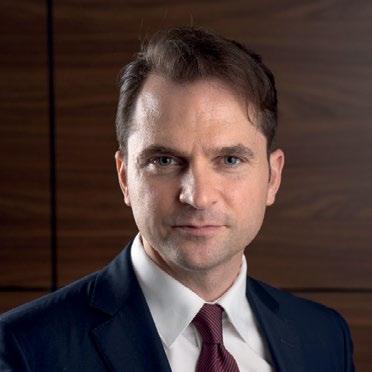
“We have a diverse energy mix from green energy.”
SEBASTIAN-IOAN BURDUJA MINISTER OF ENERGY
and more,” says Burduja, with various government partnerships and contracts-for-difference schemes available to incentivise private and foreign investors. “I am ready to meet with anyone who is serious about bringing capital and resources to Romania.”
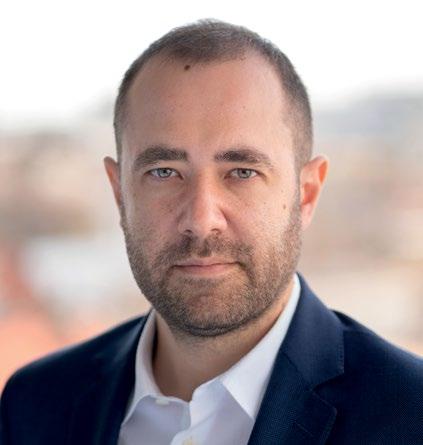
“Romgaz remains receptive to partnerships at every level.”
renewable energy has sparked interest from European partners keen on supplying necessary components and collaborating on local production. Looking ahead, the development of the Black Sea is also poised to attract considerable interest from German and European investors. Opportunities span various sectors, such as fertilisers and petrochemistry, aiming to add value to the gas extracted from the Black Sea. Romgaz remains receptive to partnerships at every level with companies seeking investment opportunities and a foothold in the Romanian market.
Societatea Nationala Nuclearelectrica (SNN) is a leading clean energy supplier. Director General Cosmin Ghita discusses the firm’s goals and vision.
Q: What are the key strategic initiatives that mark your vision for SNN?
As well as enhancing corporate governance, integrating strategic functions and modernising our team, we have initiated a bold expansion program, featuring the construction of two additional CANDU reactors and the exploration of small modular reactors (SMRs) and renewable energy sources. This expansion aligns with Romania's ambitious decarbonisation goals. Our contribution targets the replacement of coal infrastructure with approximately 2000 megawatts of cleaner energy.
Q: Which investment opportunities you would highlight for prospective German partners?
Our managerial capital projects are structured appealingly to attract in-
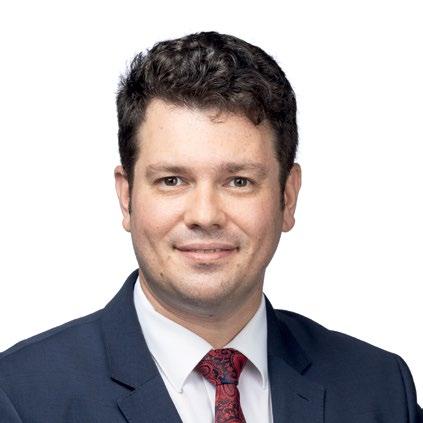
“Our managerial capital projects are structured appealingly to attract investment.”
vestment, providing the opportunity to invest not only in Nuclearelectrica but also directly in these projects, which span renewables, SMRs and other large capital ventures. We actively engage in discussions to shape and develop these projects, including exploring future opportunities in hydrogen production. For German investors seeking opportunities beyond the energy sector, such as the automotive industry or other value chains in Romania, we offer Power Purchase Agreement opportunities. This allows them to access reliable, clean, and cost-efficient electricity to support their investments in Romania.
Continues on page 28
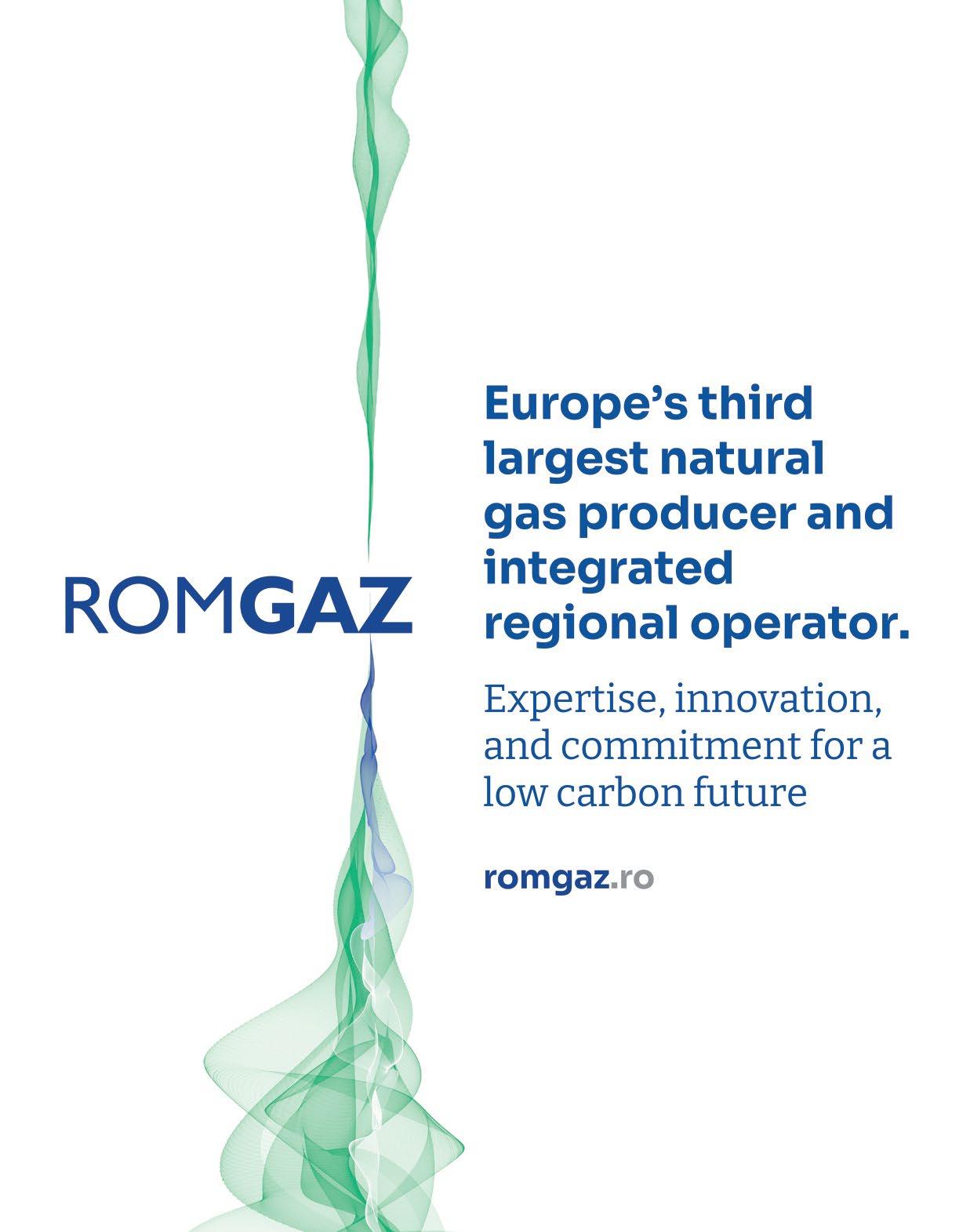
BSOG develops offshore natural gas assets as a transition fuel source. CEO Mark Beacon explains how the company is providing the infrastructure essential to underpin next-generation energy projects.
Q: What part does BSOG play in Romania’s energy infrastructure?
Currently, we are producing 10%-12% of Romania’s gas consumption. Our infrastructure provides us with a competitive advantage for unlocking further offshore gas discoveries and green energy projects, allowing us to drive incremental growth efficiently.
Q: What about your strategy for the future?
Our offshore platform gives us chances for future projects, including the development of off -
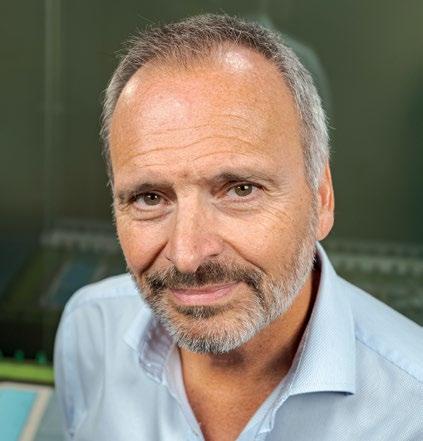
“Our infrastructure provides us with a competitive advantage.”
shore wind farms and green hydrogen. Our main aim is to make our project part of the solution for sustainable energy.
Q: What opportunities are available to investors?
We are open to teaming with experienced partners in biogas and in offshore wind to join us in overcoming the challenges in these exciting new fields – Germany is leading the way in biogas. With strong attention to detail, careful planning and hard work, we believe we can make it work.
Continues on page 30
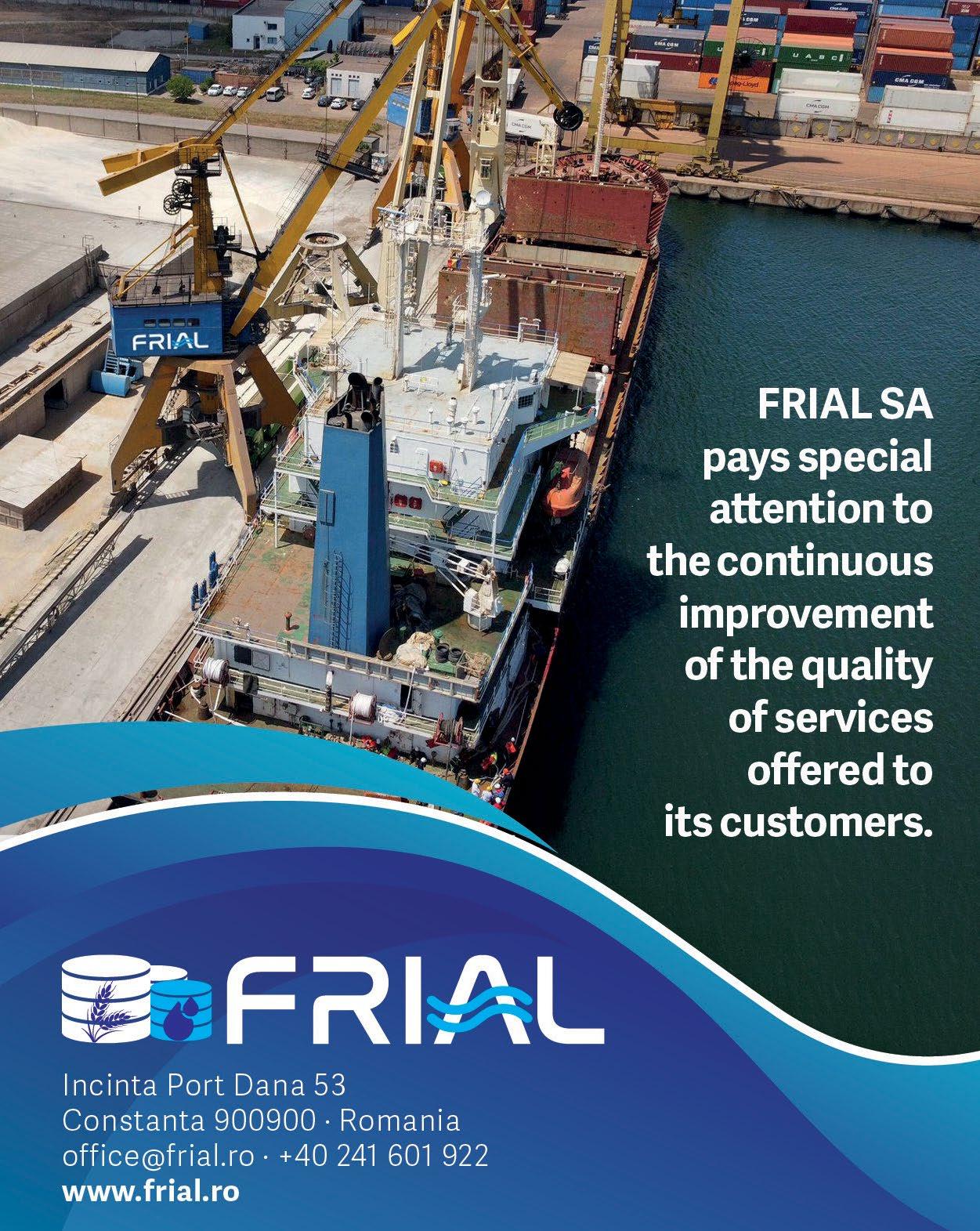
The Bucharest Stock Exchange (Romanian: Bursa de Valori București, or BVB) is transforming the capital market in Central and Eastern Europe, creating opportunities for businesses and investors alike.
BVB is growing at pace. Operating a regulated market for listed companies, as well as a second, alternative system that caters to a larger ecosystem of smaller companies, the exchange reached a notable market cap of US$64.9bn in 2023 – doubling its value in just five years. This impressive metric is partly due to the listing last summer of Romania’s largest state-owned company, Hidroelectrica, which had an IPO of €2bn – the biggest in Europe that year.
A new project designed to facilitate derivatives trading – including single stock futures, equity futures, and energy futures – is due to be authorised and operational later this year. “There is a lot of potential to develop the stock exchange as the economy continues to evolve,” explains BVB
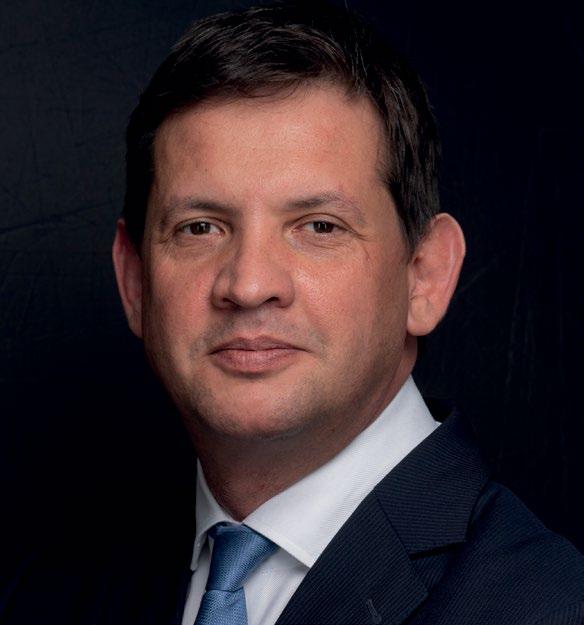
CEO Adrian Tanase. “We are currently creating a framework that foreign investors will find familiar and conducive to their needs.”
As Romania’s largest investor, German capital is primarily being invested in market sectors such as energy, finance, telecommunications, healthcare, and utilities. “Discussions with external and internal stakeholders are crucial,” adds Tanase. “By aligning ourselves with established capital market standards, we have become more appealing to potential German investors.”
Continues on page 16
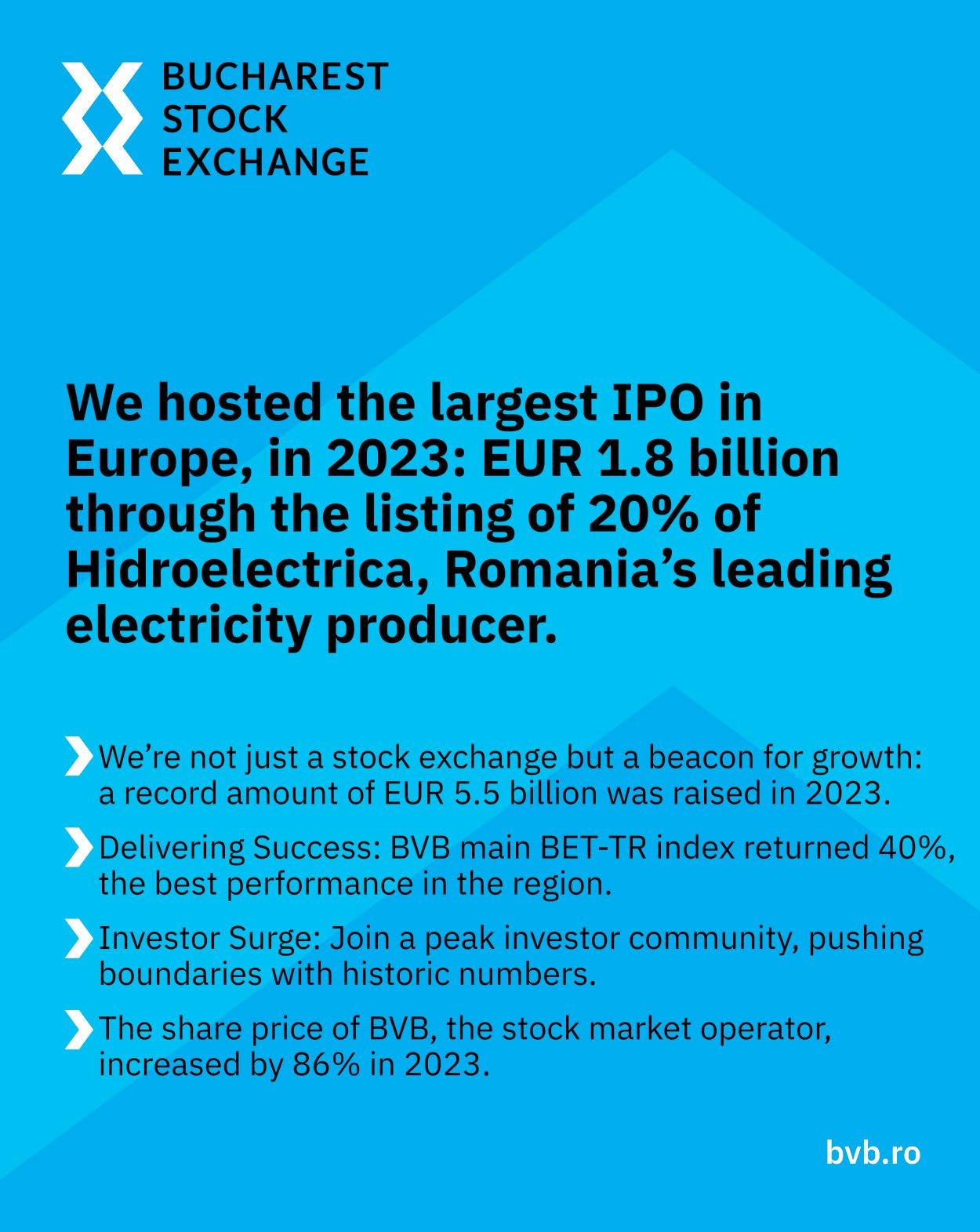
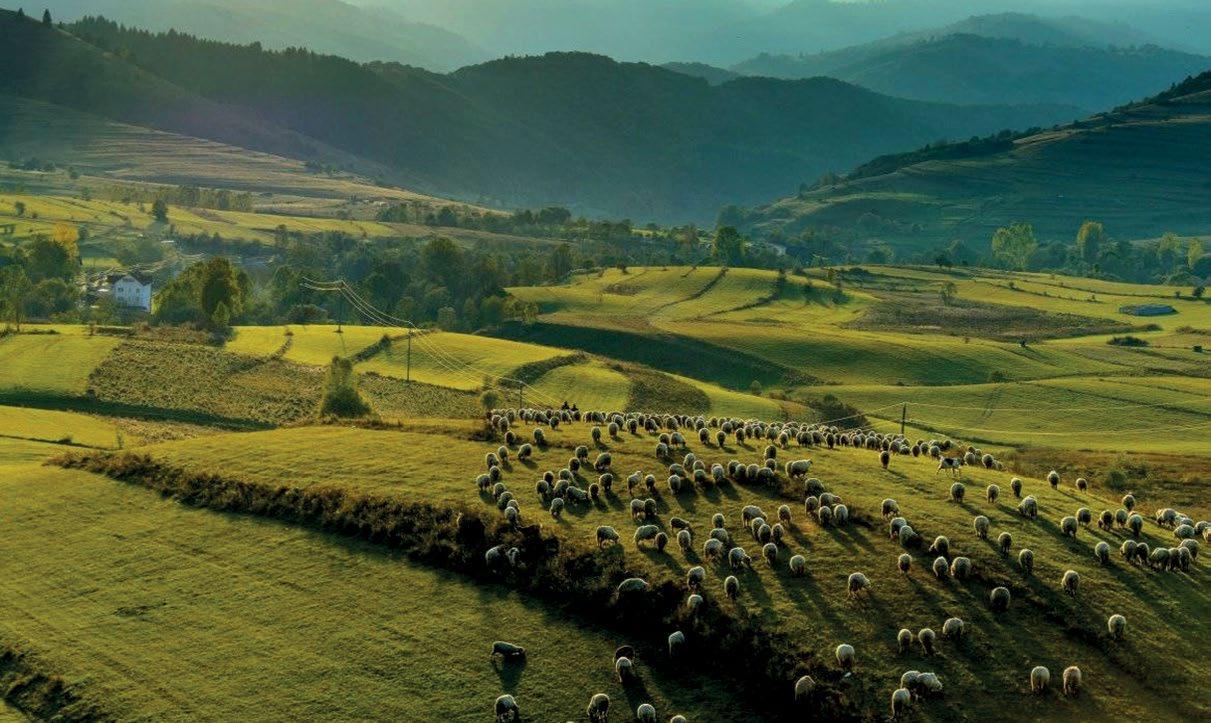
Last year, Minister of Agriculture, Florin Ionuț Barbu launched his plan for a more efficient, sustainable and adaptable agricultural sector.
According to the European Commission, Romania is home to the largest number of farmers and agricultural workers in the EU; almost a quarter (23%) of the country’s workforce are employed in the sector, mostly in traditional, small-scale operations.
Improving the viability of the country’s farms and enabling them to operate more competitively in a global market is at the heart of the government’s new ‘Investalim’ programme, initially worth 590 million euros over three years. Initiatives include encouraging higher-value crops and shifting from the production of raw materials to value-added processed products. Minister Barbu recently spoke of his ambition for Romania to become “the largest processing country in South-East Europe”, adding that the scheme “underscores our commitment to sustainable and innovative agriculture”.
Monies will be made available not just for essential infrastructure, such as irrigation systems, agricultural equipment and processing facilities, but also for implementing digital solutions and green energy projects. Kickstarting innovation is crucial – supporting the startups, tech disruptors and specialist finance providers that have the power to accelerate the changes necessary to transform production. With government assistance and inward investment, Romania can become a leading player in the agricultural sector.
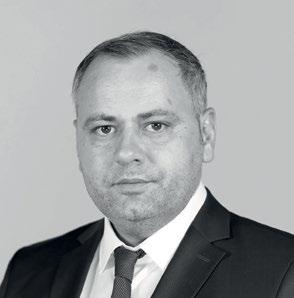
”
[Investalim] underscores our commitment to sustainable and innovative agriculture.”
Florin-Ionuț Barbu, Minister of Agriculture
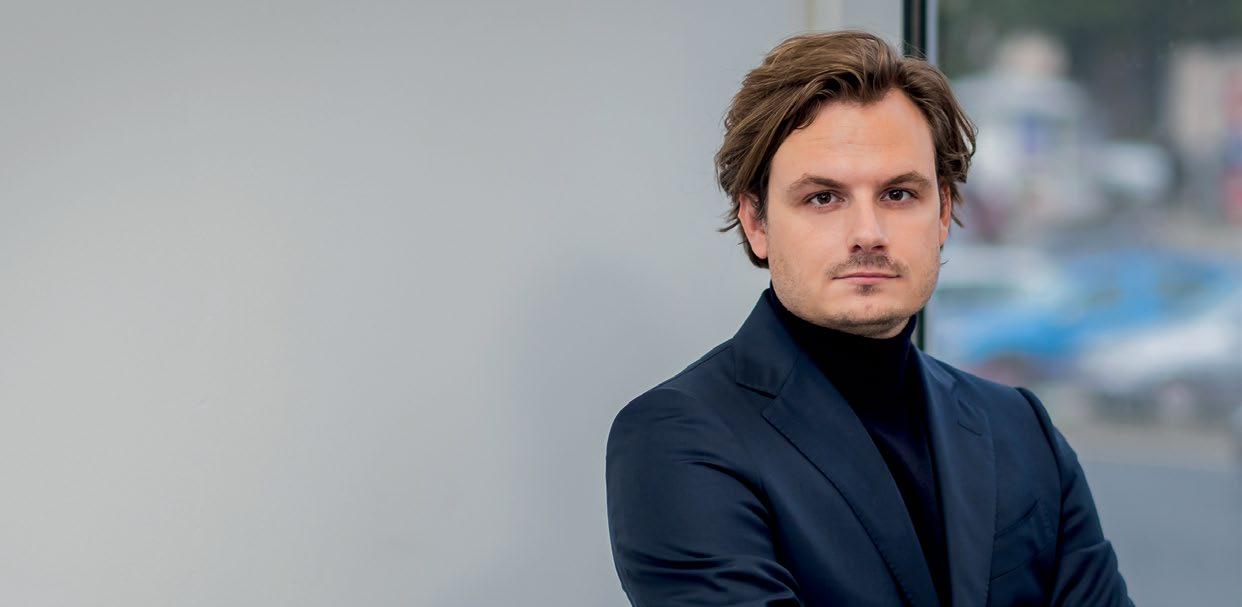
“Adopting innovative practices is key to staying ahead.”PETER DE BOER STRATEGIC FINANCE & IR MANAGER AND BOD MEMBER
DN AGRAR is among most important dairy producers in Europe, thanks to a decades-long programme of investment, acquisition and expansion. Director Peter de Boer explains how the company’s commitment to adopting a circular economy mindset, improving animal welfare and reducing energy consumption has helped it to become an industry leader.
Q: How do you plan to meet increasing demands for dairy exports?
With our current daily milk production of 165,000 litres set to increase to 200,000 litres soon, our goal is to reach 300,000 litres per day by 2027, making us one of the largest milk producers in Romania.
Q: Can you expand while maintaining your environmental commitments?
We are constructing a compost facility, investing in solar energy, and exploring a partnership in biogas.
Our focus on circular agriculture involves producing food for our animals across 10,000 hectares using a no-till technology. Solar panels make our farms more self-sufficient in terms of electricity. Looking ahead, we are considering the electrification of company cars and trucks, where feasible.
Q: Why is innovation so important to your strategy?
Sustainability is crucial, given our position as a listed company and a lead-
er in Romania and Eastern Europe. As we strive to become one of the top three in the EU, adopting innovative practices is key to staying ahead.
Q: What opportunities exist for investors?
Romania offers significant opportunities for growth. Our company aims to be more visible to foreign investment funds as we move to the main market. With a profit margin ranging from 12-14%, which is impressive for the agricultural sector, we see potential for even faster growth and diversification into other areas as we continue to scale up and leverage economies of scale.
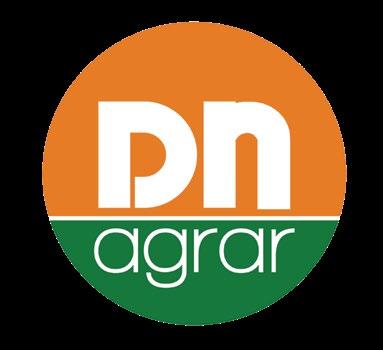

Florin Madar, Founder of TEMAD, reflects on the company's principles of trust, resilience, and teamwork, which fuel its ongoing success and growth in the Romanian market.
Q: What key guiding principles have been instrumental in the company's success, growth, and story?
The spirit here resembles that of a close-knit family. I treat my employees as if they were my own family members, which remains one of the core principles that have endured within the company for nearly 30 years. We hold a set of values that I strongly believe in, and the majority of our employees share these beliefs. Our primary core principles encompass trust, resilience, and teamwork, and we are firmly rooted in a performance-driven culture.
We function as a cohesive business family, emphasizing the importance of efficiency. Trust and teamwork serve as the guiding principles we collectively strive to uphold, and they play a pivotal role in our success as a company. Additionally, integrity is paramount, as honesty among ourselves, employees, partners, stakeholders, suppliers, clients, government entities, and the community holds significant value for our company.
Q: What specific strengths and areas of excellence does TEMAD possess that set it apart from competitors in the Romanian market, and what aspects of your expertise and achievements are you particularly proud of?
We excel in several key areas, some of which set us apart from our competitors. One such area is our diverse portfolio of products. Rather than offering simple products, we specialize in technical products and services. We don't simply deliver products to retail stores or construction sites and leave them there; we also provide training, promotions, and innovative solutions. Our commitment to innovation is ongoing, as we continue to introduce new products to the market. Coupled with our expertise and extensive experience, we ensure the promotion of high-quality products.
Our reach extends to every corner of the country, covering 95% of its terri-
tory. We no longer limit ourselves to major cities or small towns. Our comprehensive product portfolio, expansive network, and all our operations are managed by our dedicated team, a core strength characterized by their resilience and stability. Many of our employees have been with the company for 15 to 20 years, which fosters trust within the market. Clients and suppliers trust us because they know we are committed to our presence and long-term objectives. This commitment is a fundamental aspect of our identity as a family-owned company. Family companies like ours share a unique philosophy that emphasizes long-term thinking and resilience as essential values.
” TEMAD presents an excellent gateway to the Romanian market, capitalizing on our established network and expertise within the region. This positions us well to promote various German products, given our growing portfolio of German goods.”
Q: With a 95% coverage, where do you see the new growth opportunities emerging, considering TEMAD's diversified presence as a group with entities like TEMAD Energy?
We are currently working on the development of new projects, including hotels. This hotel project is either led by TEMAD or involves us as participants, but it represents a separate business line. Additionally, we are investing in and leasing commercial centres, which constitutes another segment of our business activities. While these ventures diversify our operations, our core focus remains TEMAD, particularly in terms of distribution. Over time, we have also established a group of companies that have ventured into areas less closely connected to our initial operations. This expansion reflects our growth as en-
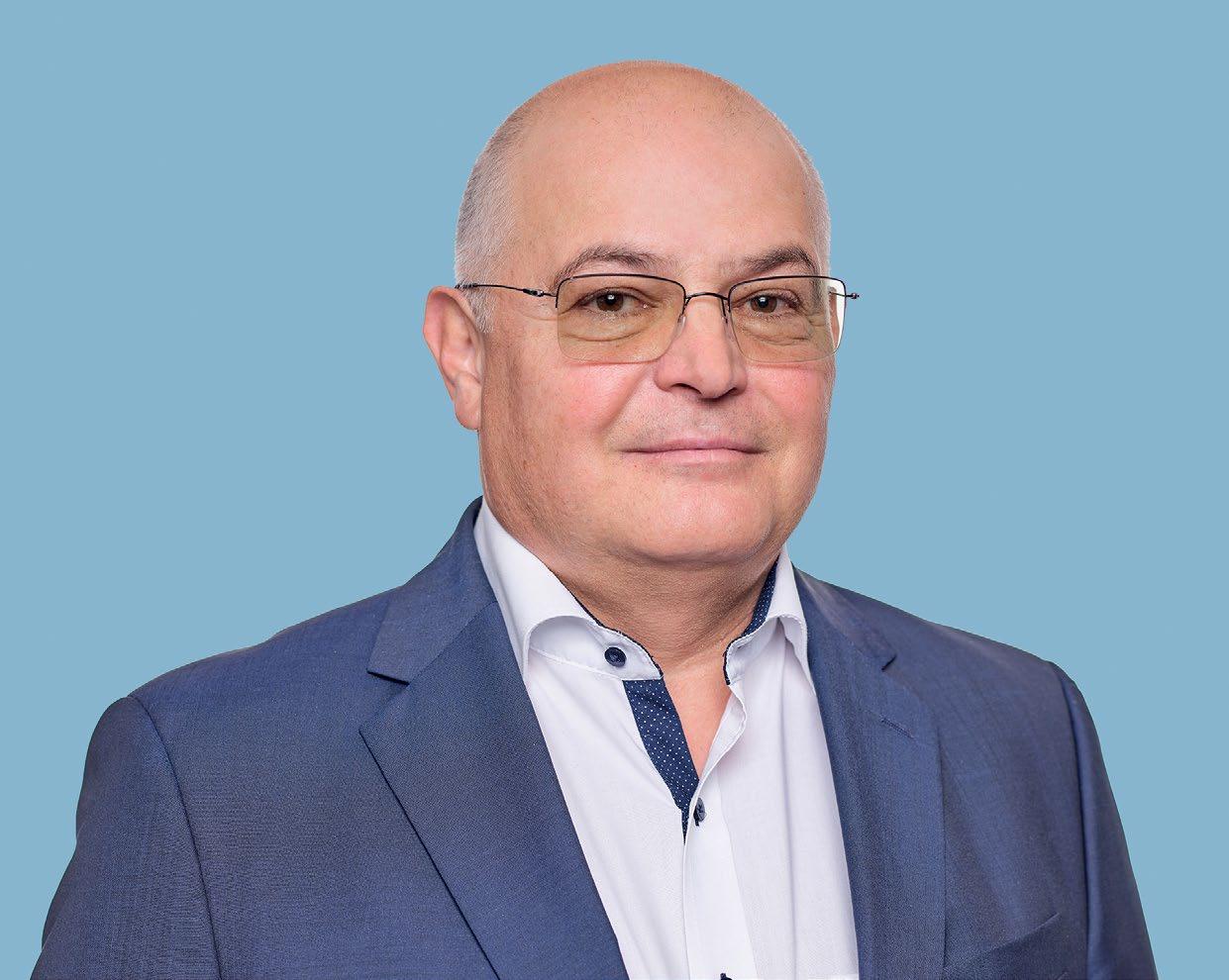
trepreneurs and the evolution of our group of companies.
Q: In light of the substantial demand in the e-commerce sector, how is TEMAD positioning itself to capitalize on this opportunity, particularly in working with top brands entering the Romanian market and developing its product portfolio under the TEMAD brand?
We are giving considerable attention to these aspects. In addition to our own online store, we also distribute products through various platforms. While our shop may not be exceptionally large in comparison to our total turnover, it represents one of the fastest-growing departments within the company in terms of percentage growth.
The market is evolving, especially considering that Romania's per capita consumption for many of our products still falls below the European average. This applies to products such as paints and adhesives, where the per capita consumption is currently one-third of the European average. There is significant room for growth in this regard.
Furthermore, we are exploring horizontal expansion by entering new product categories that are relatively unfamiliar to us. For instance, we have ventured into selling pet food and have established a separate department for it, recognizing its potential in the growing market. Our focus on digitalization goes beyond just e-commerce; we are actively digitalizing various processes, including deliveries and accounting. We have implemented a distinct system in our warehouse, and our sales agents have been using digital tablets to place
orders and transmit them to the company. Additionally, we have established an accounting and reporting system.
Regarding international expansion, although we don't have a specific plan in place, we are actively exploring the possibility. We have previously attempted to establish subsidiaries in the UK and Canada, albeit some time ago.
Q: What opportunities can you emphasise for German investors considering entry into the Romanian market, including the potential for collaboration with TEMAD on joint projects or opportunities?
Romania maintains robust economic and cultural ties with Austria and Germany, with Germany standing as Romania's largest partner. It's gratifying to see these historical connections translating into tangible statistics. TEMAD presents an excellent gateway to the Romanian market, capitalizing on our established network and expertise within the region. This positions us well to promote various German products, given our growing portfolio of German goods.
Furthermore, we have the potential to collaborate with German companies interested in production. We can handle the distribution of these products while also participating in the production process, utilizing our available land and buildings. The TEMAD group encompasses different branches, including real estate, providing opportunities to facilitate the sale of various products. Although our current plans do not involve selling food products or similar items, we remain open to such ventures should a compelling reason arise.
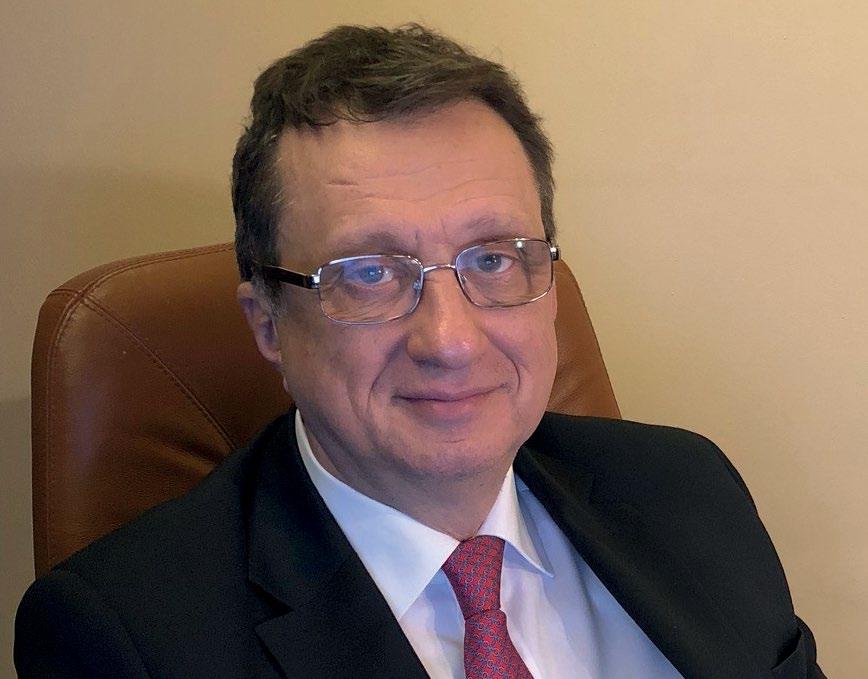
Viorel Panait, Director General of Comvex SA, discusses the strategic adaptations and expansions that have shaped the company’s role in global trade and infrastructure development since its inception in 1991.
Q: As Director General of Comvex since 1991, how has your strategic vision for the company evolved over the years?
Established in 1991, our company is currently publicly traded on the Bucharest Stock Exchange. We adhere to all stock exchange regulations, maintaining transparency with our shareholders and auditors. Our investors span the steel industry and various investment funds active in stock exchanges. We take pride in the clarity and stability of our financial institutions, ensuring that both our shareholders and the market comprehend our operations.
In Central and Eastern Europe, particularly in Hungary, Austria, Slovakia, Serbia, and Romania, our operations involve the transit of diverse cargoes, primarily minerals. Despite initial stereotypes and widespread compassion for Ukraine, the country has proven to be a developing force in industry and economy. We, as a company, are committed to supporting Ukraine's economy and facilitating the export of its products.
Initially, there were doubts about Ukraine's capabilities, but the first shipment of Ukrainian grain, loaded during a congress where we pledged our support, debunked these concerns. By June 2022, our company will be responsible
for approximately 70% of Ukrainian grain exports through Constanta.
Recognizing the need to enhance our capacity to discharge river barges, especially those coming from the ports of Izmail and Reni, we initiated a project on March 1st. In a remarkable 136-day span, we developed a new system, including conveyors, weighing scales, and automation, effectively doubling our discharge capacity. This extensive effort allowed us to handle substantial quantities of iron, catering to key industrial operators in Romania, Serbia, and Hungary.
Our partnerships extend to significant industrial operator groups, overseeing terminals for both steel mills and grain processing. In serving the local market and the Serbian sector, connected to the Port of Constanta by the river, we manage substantial quantities from traders such as Cargill in Hungary. Our commitment to our clients prompted us to focus on improving the quality of our services.
Q: Investigating Comvex's current state in terms of infrastructure capacities and capabilities to manage large volumes, could you provide an overview of its current position in the market?
Currently, we are implementing a program to increase our storage capacity
by 25%, equivalent to an additional 50,000 tons, factoring in the storage times cycles. Additionally, Comvex has established a deep-sea terminal capable of accommodating vessels with a capacity of 110,000 tons. This terminal enables us to load a significant daily quantity of 70,000 tons.
” Our partnerships extend to significant industrial operator groups, overseeing terminals for both steel mills and grain processing.”
Q: How has Comvex leveraged its initial experience in mineral handling to diversify and adapt its capabilities for efficient transportation, such as delivering commodities like Indonesian coal to Serbia and Kazakh coal to Slovakia, and how does its proactive capacity development with nations like Indonesia contribute to the global expansion of grain-handling capacities for larger vessels, facilitating international trade?
Initially, we operated as a terminal specializing in mineral handling. With shifts in the industry, we decided to diversify our focus, drawing on our experience with heritage commodities. Transitioning from an industry accustomed to significant scale, we naturally aimed to make a substantial impact on the future. This led us to adapt our capabilities to accommodate large vessels, offering competitive rates to benefit the industry and ensure cost-effective transportation of materials. For instance, considering vessels transporting minerals and grain, we recognize the importance of fuel for specific end users facing potential energy shortages. Our operations involve delivering Indonesian coal to Serbia and Kazakh coal to Slovakia. Observing the global scale, these commodities cover one-third of the globe efficiently. This strategic move allows us to facilitate grain deliveries. This year, we successfully finalized an agreement with Indonesia for grain delivery, emphasizing the need for agreements from phytosanitary authorities in both
countries. Moldova and Bulgaria had already secured such agreements. Indonesia stands out as one of the few nations with developed ports capable of accommodating and receiving large vessels. Our proactive capacity development positions us to capitalize on future opportunities. Since our initiative, twelve nations worldwide have expanded their grain-handling capacities for larger vessels, with others expected to follow suit.
Q: In light of the fact that Germany has emerged as Romania's biggest trading partner, can you identify any opportunities for German investors and partners at Comvex?
Romanian grain exports leverage its natural hinterland, with 65% directed to the European market and shipped to Western European ports. This represents a cost-effective and efficient service, benefiting our Western German and Dutch partners. Prioritizing new liquid chemicals, the European Union has emphasized the need to initially develop grain capacity. Recently, the European Union provided grants to support this development, marking the first phase of our increased grain activity. We have engaged Roland Berger for a comprehensive marketing study and feasibility analysis, completing all necessary documentation.
Although we temporarily paused other initiatives to address this priority, our Minister of Transportation, Sorin Grindeanu, has committed to doubling the capacity to handle Ukrainian grain. This aligns with the European Union's encouragement to pursue further developments. Recognizing the strategic importance of this effort, we are diligently working on it this month.
Last year, Foreign Affairs Minister Bogdan Aurescu proudly announced at the United Nations in New York that the first Ukrainian grain shipment had been loaded in Constanta, Romania. This contribution enhanced the visibility of our country and showcased Europe's commitment. The positive momentum now motivates us to expand grain capacity further, even though other initiatives may experience a brief delay. The collective commitment reinforces our dedication to these strategic developments.
Mihai Voicu, General Manager of Bergenbier S.A., delves into the transformative strategies and brand innovations that have marked his leadership, aiming to solidify the company's presence in the competitive drinks market.
Q: You were appointed as General Manager in March 2020. What are the pivotal decisions you have made thus far to guide the strategic direction of Bergenbier?
Since assuming leadership in 2020, I have concentrated on developing a strategic plan for the next five to ten years. Our initial priority was to ensure a safe environment for our staff and the continuity of the company's operations.
Given the uncertainty of the situation, it was crucial to maintain flexibility and manage a strategy that allowed the company to continue functioning. A key focus was the rebranding of Bergenbier, a flagship brand in Romania with a significant heritage dating back to 1994. In the face of a highly competitive market, a comprehensive overhaul of our management, products, and branding was imperative to match our competitors. Furthermore, we recognized the need to innovate and enhance our brand, particularly given our extensive portfolio in premium brands. Our objective is to reclaim our position as a market leader, competing with brands like Stella Artois, Beck’s, Corona or Belgian specialities like Leffe and Hoegaarden.
We also ventured into the realm of flavoured and low-to-zero alcohol beverages. While beer has undergone extensive refinement over decades, this new segment presents an opportunity to tap into an emerging consumer market. With Fresh 0.0 we are currently among the fastest-growing brands in the zero-alcohol sector, and our ambition is to achieve market leadership by 2025-2026.
Above all, our top priority remains the stability and safety of our workforce, which underpins our growth strategy. This involves collaborating closely with our partners to navigate these changes effectively.
Q: With core values of transparency, evolution, and the power of
'together,' how would you like Bergenbier to be perceived by its clients, and what images and branding do you aim to project?
Bergenbier, a beloved brand in Romania, boasts a rich history that began in 1994. At that time, the Romanian beer industry was relatively undeveloped, and Bergenbier S.A. emerged as one of the pioneering companies, quickly capturing consumer interest. The brand is renowned for its emphasis on valuing and fostering friendships, encapsulated in the slogan "Friends Know Why". Two central themes integral to our identity are friendship and football. Bergenbier is often seen as the national football team's lucky charm, a reputation solidified by our consistent support, particularly during their successful bid for the European Football Championship in Germany after an eight-year hiatus. Our sponsorship is seen as a catalyst for the national team's achievements. Additionally, the shared use of the colour yellow by both our brand and the national team synergizes and enhances our branding.
”
The goal of becoming the leader in the premium beer segment is a powerful motivator for me and my team.”
Bergenbier is also at the forefront of sustainability practices. We were the pioneers in introducing bottles with plastic caps attached, a significant innovation launched in 2022. This initiative reflects our commitment to reducing our environmental footprint and contributing positively to the community in Romania.
Q: Bergenbier is part of the Molson Coors Beverages, one of the biggest beer producers in the world. How does this synergy work between the parent company in terms of opening new opportunities using the power of the parent company? How does it affect operational independence? Our objectives are in harmony with Molson Coors' global strategy, which
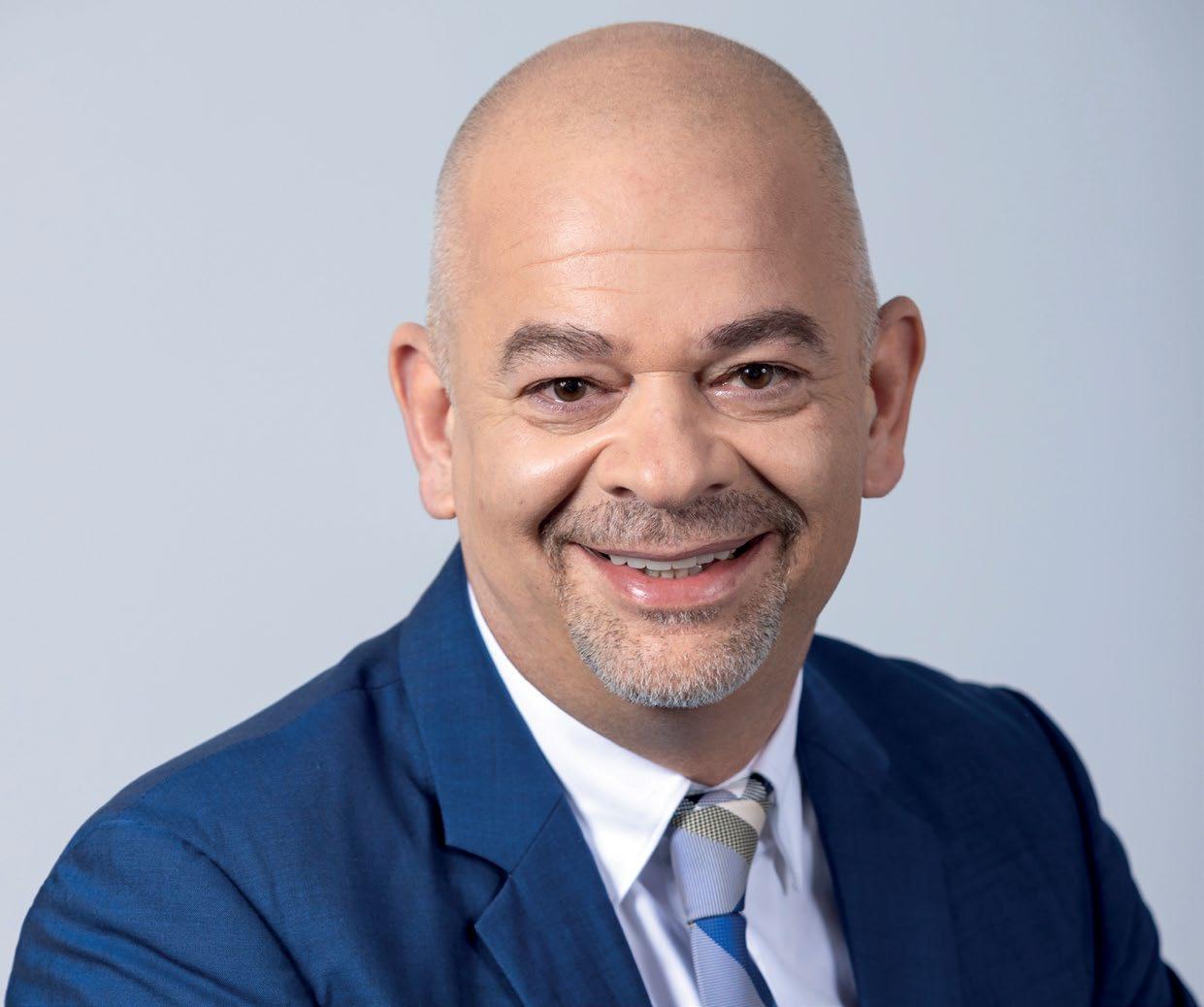
has been effectively communicated and implemented in Romania. This global commercial strategy emphasizes the development of a robust core and portfolio centred around national brands. All our actions are aligned with this global vision, facilitating efficient execution and strengthening our partnerships. Historically, our company has experienced ownership changes, each contributing to a solid financial foundation. Romania has emerged as a prime investment destination, evidenced by the success of every investment made in the region over the last four years. This track record underscores the country's potential as a fertile ground for business growth and development.
Q: Bergenbier reported a turnover of 798 million lei in 2022, marking an increase of over 11% from the previous year. How do you view the company's current market position, and what is your growth strategy for the coming years?
Initially, we anticipated stability post-pandemic, but the geopolitical tensions arising from the Ukraine-Russia conflict, coupled with soaring inflation, have posed new challenges. The market dynamics in 2022 significantly impacted our results, with production inflation emerging as a major concern.
Despite these hurdles, our financial performance remained strong, positioning us as the fastest-growing brewer in Romania. This growth mirrored the overall market trend, meeting our expectations. The repercussions of last year's high inflation are still evident. Nonetheless,
we find ourselves in a more favourable position, forecasting double-digit growth. While the overall beer market faces difficulties, we are successfully navigating this challenging environment. Official inflation rates in Romania hover under 10%, but in terms of goods cost, it could escalate to as much as 30%. Despite inflation, the war, and fluctuating consumer confidence impeding our growth, we have managed to deliver results that surpass expectations. Looking ahead, we anticipate the beer category may not sustain growth in the coming year. ur strategy of promoting Bergenbier SA’s portfolio with premium, core and zero-alcohol brands is poised to drive success.
Q: Among the many brands you carry is the German beer brand Beck’s. As this year marks the 20th year of Beck’s presence in the country, how has it evolved into one of Romania’s leading beer brands today?
Beck’s was the first brand launched from our premium portfolio and Romania was the first country to produce Beck’s out of Germany, which shows the trust of Germany for Romania to produce quality products. Beck’s is still the biggest brand in our portfolio, and we celebrate it as the beer for good music and festivals.
Beck’s and Corona remain the most successful brands in our portfolio, and they are the ones growing fast. We are delighted to have these brands with a rich history under our belt. The German purity law is appreciated by Romanians and Beck’s can communicate that perfectly to the consumers.
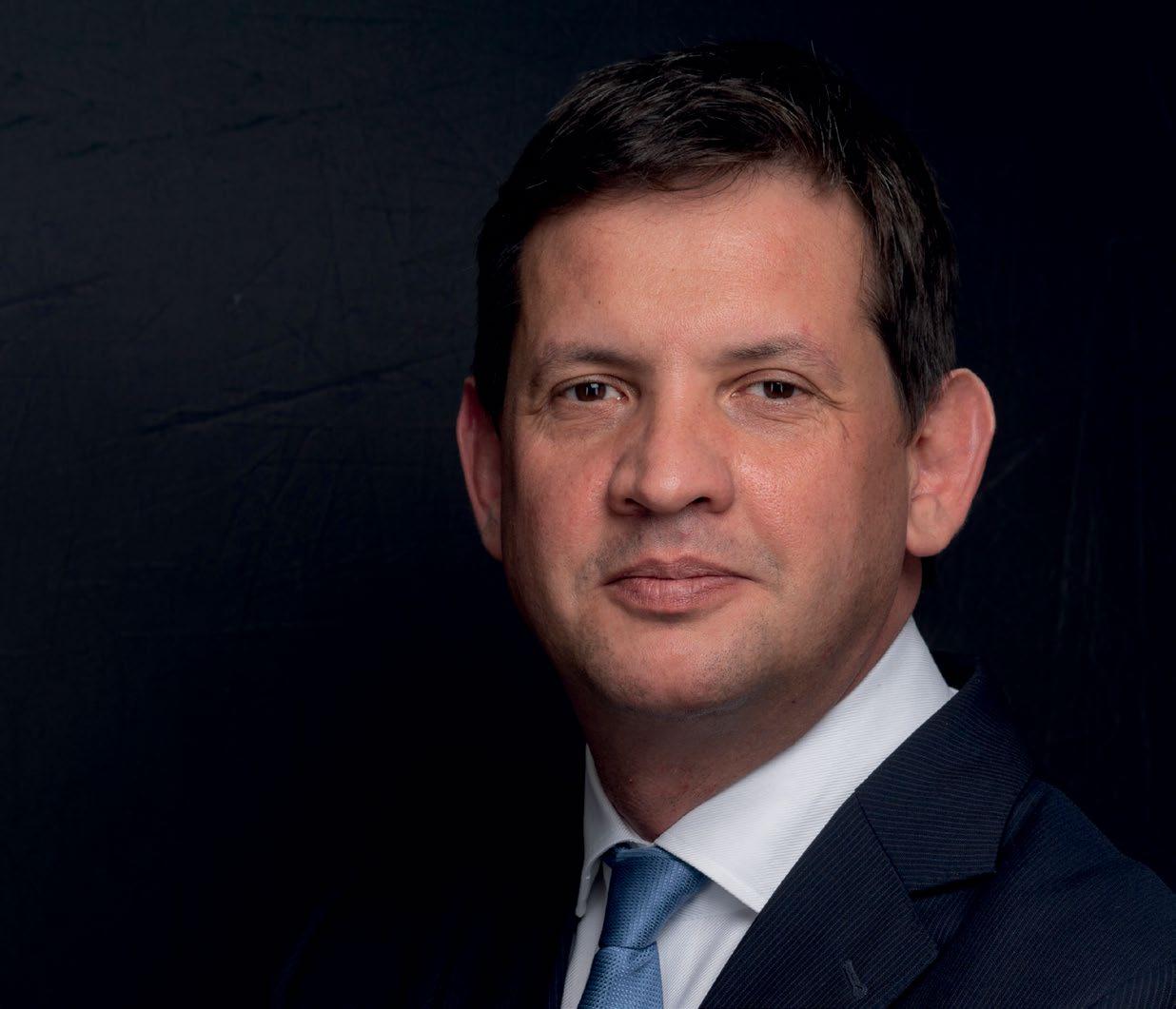
Adrian Tanase, CEO of the Bucharest Stock Exchange, highlights the strategic advancements and record market growth under his leadership, positioning the exchange as a pivotal player in the regional financial landscape.
Q: In 2023, the Bucharest Stock Exchange experienced a significant 52.7% increase in market capitalization, reaching $64.9 billion. What were the key drivers behind this growth, and how does it impact the Bucharest Stock Exchange's position?
There are two main reasons for the growth - one is the Hidroelectrica listing, and the other is the increase in the price index by around 30%.
The biggest listing we had last year was Hidroelectrica, which is the biggest state-owned Romanian company, with an IPO of €2bn, the biggest IPO in Europe in 2023. It was a very bold political decision that is encouraging, in terms of developing the stock exchange further. We can confidently say the energy companies and the market benefited from this listing. It’s hard to predict what will happen this year as we are still in complicated macroeconomic conditions, especially on inflation and interest rates. This situation affects the appetite for the primary market, and it is hard to bring back the good conditions we saw in 2021. However, we hope to see the stabilization of inflation and for national banks to ease monetary policy.
On the other hand, we look forward to implementing new projects to increase participation and reactivate the primary market this year. Romania became the largest capital market after Poland and Austria in the region, but we are suffering a lot in terms of liquidity. The reason liquidity is suffering is because we have a plain vanilla secondary market, a simple version of a stock market. We started a Stock Exchange project in 2019 to establish a central counterparty in Romania, CCP.RO Bucharest, and we hope to have it authorized and operationalized in 2024 to facilitate derivatives trading. We are looking at single stock futures, equity futures, and energy futures - we are looking to launch acommodities derivatives market as well. This project shows that we have a good relationship with authorities, because the second largest stakeholder of the central counterparty is OPCOM, the energy market operator in Romania, owned by the state-owned company Transelectrica. We also have private partners like Banca Transilvania. Meanwhile, the largest investment is by the Stock Exchange, as we own more than 50% of the share capital, and the total contribution is €19M.
” We have aligned ourselves with more established capital market standards, making us more appealing to potential investors.”
Q: With Romania presenting a sense of security to foreign investors through low inflation and stable exchange rates, how does the Bucharest Stock Exchange communicate and reinforce these values of stability and security to its investors and stakeholders?
We do not impose any restrictions on those seeking to join the stock exchange, provided they meet the quantitative and qualitative criteria set forth by indices providers such as FTSE Russell or MSCI. These criteria encompass aspects such as market access and investor rights. Romania has also bolstered its presence in the foreign investor market by actively participating in roadshows aimed at attracting a broader investor base. Moreover, we have aligned ourselves with more established capital market standards, making us more appealing to potential investors. We are currently developing a framework that foreign investors will find familiar and conducive to their needs.
Q: Considering Germany is Romania's biggest trade partner, having a trade balance of €86.1M, what specific incentives or advantages would you highlight to German investors looking to invest in Romania through the Bucharest Stock Exchange?
While we lack a geographical breakdown of all of our foreign investors on the Romanian capital market, it's noteworthy that Germany remains one of Romania's largest investors. Germany has a significant investment presence in several sectors of Romania's economy. On the Romanian capital market there is a diverse offer of companies, from energy, finance, telecommunications, healthcare to utilities. However, there are some concerns regarding the
limited representation in the technology sector, which is surprising given that the technology sector contributes 8% to Romania's GDP. The underrepresentation may be attributed to a lack of awareness about the capital market's potential that can address the technology companies’ investment requirements.
Q: The 'Made in Romania' program has been one of the Bucharest Stock Exchange's most successful initiatives. How does this project align with the Exchange's broader goals, and what impact has it had on the local businesses and the Romanian capital market?
One primary initiative aimed at ensuring the vitality of the primary market entails raising awareness among both investors and entrepreneurs within Romania’s population. In 2017, we initiated a platform with the objective of creating either a pre-IPO or networking platform. This platform serves as a valuable resource for entrepreneurs contemplating an IPO, providing guidance on scaling their businesses, although listing is not mandatory. We facilitate connections with various consultants and service providers, including brokers, private equity funds, and financing institutions.
To date, there were 20 companies from the Made in Romania program which have successfully secured financing through the capital market, amassing over €200 million. We are committed to advancing this program in partnership with industry leaders like Microsoft, aiming to foster a vibrant entrepreneurial community and empower business development.
One of our core teachings to entrepreneurs centers on corporate governance, emphasizing its importance not only for listed companies but also for prospective ones. We strive to impart the significance of establishing a solid foundation and scalability for their businesses. Additionally, we encourage a greater focus on Environmental, Social and Governance (ESG) practices, aligning with the current market trends. We have partnered with Morningstar Sustainalytics and 20 of the listed companies have chosen to voluntarily disclose their ESG scores.
Lucian Azoitei, CEO and Founder of Forty Management, shares his journey from distributing finishing materials to pioneering sustainable real estate developments, emphasizing his innovative approach to urban living.
Q: As the founder of Forty Management, you have been at the helm since its inception in 2015. What was the founding vision when you started the company, and how has that vision contributed to the way you lead the company today?
I started my entrepreneurial journey in 2000 when we started a group distributing finishing materials that became an important player in the local business environment, contributing significantly to Romania’s and Eastern Europe’s path to economic growth following the transition to market economy that followed communist era that had ended in 1989.
We grew the business from there and established a construction and design company that supplied and installed finishing materials. We worked with the private and public sectors, where we had the chance to acquire enormous know-how about the Romanian real estate market, which is different from that of other European countries, due to its particular features. We were one of the few countries in Europe where more than 90% of the population owned a house. Following the 2008 financial crisis, the activity of distribution companies was negatively impacted – and it was then, in 2017, that we decided to move to real estate development, as the next natural step for an important player on the construction materials market.
When we started with Forty Management, in 2015, we knew that we had to offer something unique to our clients and build something that is not only bricks and mortar, but a place with a soul - that was our vision. We started building projects that provide premium facilities but on medium prices under #Afforda -
bleLuxury concept and we were the first in Romania to create an internationally acclaimed green building. We were also the first to place trees on the building, a running track, an outdoor cinema, a barbecue, and thus create community areas around our developments. We were the first international awarded developer from Romania, with many others awards followed.
”
Our focus has extended beyond Romania, in major European cities. We are the first Romanian developers to expand to external markets.”
We finalised our first near-zero efficiency building in Romania, which means almost everything is made through sustainable ways or materials. Because of this uniqueness, we tend to sell the properties fast, and we are the only Romanian developer who sold 100% of their products off plan, which means that we were on the right track, which encouraged us in our vision and mission to continue to build sustainable and create communities around our projects.
Five years ago, we identified the American company Crystal Lagoons, while looking for new opportunities in terms of new facilities for our clients. It is a state-of-the-art innovative company that builds large artificial lagoons with very low maintenance costs. We bought the license for the Romanian market and established a concept called Lagoon City in Bucharest. The idea is in line with our DNA of developing only sustainable projects – and with Lagoon City we stayed true to our mission, as it is the first carbon neutral and self-sustainable urban reconversion in Central and Eastern Europe that will also include a Radisson Lagoon hotel with 323 rooms, 400 apartments, a class A office building and 9000 sqm of commercial spaces around a 10.000 sqm of man-made turquoise lagoon. We gathered a team of specialists
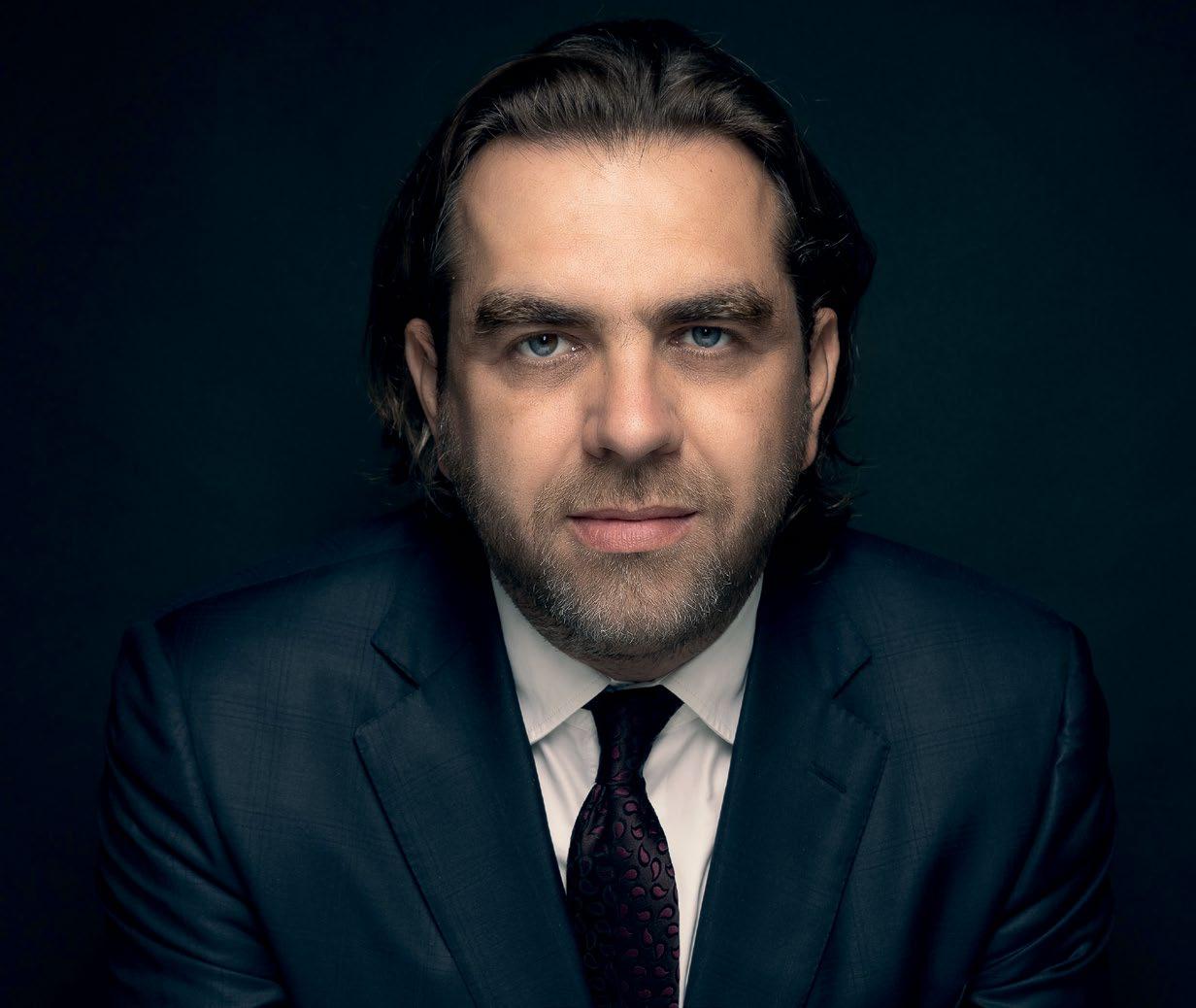
from all of Europe for the first carbon-neutral project in the region, and we were able to produce all the utilities in-house. We entered a program from the EU that is monitoring this development so we could provide know-how and guidance to other developers who would like to initiate such amazing projects.
We established a new brand called Radisson Lagoon for our Bucharest hotel development, which can be used next to any patented Crystal Lagoon, and we also bought the license for the Czech Republic, Poland, and Hungary to expand this concept of lagoon city to these countries as well. Later last year, we purchased the licenses for Rome, Milan, Seville, and Toulouse, and we will expand this concept across Western Europe. Therefore, our focus has extended beyond Romania, in major European cities. We are the first Romanian developers to expand to external markets and we created this product that can be replicated anywhere in the world.
Q: What opportunities do you see for international partnerships, especially with Germany?
We have started the discussions with various private equity funds to promote of the Lagoon City concept in Europe. There are 1200 man-made lagoons globally in place since Crystal Lagoons initiated this concept back in 2009 – which is an impressive number
on such a short term; most of them are in the US, Asia, and Africa. In Europe the concept implementation takes longer, although there are some projects already built in Spain, but it is planning to expand across the entire continent. We are noticing many opportunities for this new paradigm in the real estate industry in Europe and especially in Germany, which is a large territory, but doesn’t have access to a warm sea.
The future of real estate is far from what it was decades ago, because of the characteristics of the post-industrial society. People are more aware and long for better life-work balance, they value more their time, especially after the pandemic and this is why the requests for commercial and office spaces are declining. With the Lagoon City concept, we are bringing the sea and the entertainment to the cities, which could encourage walking (as opposed to excessive drivig), resulting in opportunities for other businesses like cafes and restaurants. We gained recognition from important groups and institutions for the Lagoon City concept, and we want to implement it in various cities in Europe, so that people can see what they could have for the same price as traditional real estate. We are finalizing the lagoon in Bucharest, and we look forward to building around the lagoon. We are also in the final stages of preparing the development in Budapest, and we hope to start the construction this year.
Tudor Ciuleanu, CEO & Founder of RebelDot, shares insights into the innovative strategies and values that drive the company's growth, emphasizing a commitment to technology solutions and global expansion.
Q: Since establishing RebelDot in 2018, can you share your vision that has guided the company’s growth and direction since its inception?
When I started RebelDot, I wanted to create a company that brings value to the clients, employees, and the community. That is why our mission is to bring value through technology through honest partnerships. We have seen extraordinary growth, getting from nothing to 250 employees today. We are one of the fastest growing services companies locally.
Cluj-Napoca is known as an engineering location with a lot of talent, but this historically meant that we were outsourcing - offering talent, developers, or testers to work for various companies abroad in team augmentation models. For example, big clients abroad need around 50 developers, and they work with a company in Cluj that could provide those numbers.
What we decided to do was to have a different approach and be a company that understands the needs and problems of the clients and provides solutions for those needs. The value we bring is that we can understand and solve problems through technology - be it a mobile application, AI, digitalisation, or IOT. Our edge is that we build products for our clients and solve problems, not just offer talent.
Q: You have previously stated that the success of your company is through building lasting relationships, investing in our people, and embracing innovation. Can you elaborate on how these values and your company branding can be an opportunity for devoted German and international investors?
From the get-go, we focused on understanding the team val -
ue, what the mission of RebelDot is, and how we could build around it. The brand became well-known after we started working with small clients who valued our expertise. In return, they referred us to other clients, and until today, up to 75% of our work is through referrals. These referrals continue to happen because of how we built the company and how our colleagues treat our clients - by understanding their needs and coming up with solutions.
” We are working on putting subsidiaries in Germany, the UK, and the US to bring value to companies there.”
The German or international companies that need help with digitalisation or how AI can help them improve their business could come to RebelDot and conduct a discovery discussion to see how they can achieve those goals with our help instead of just thinking of Romania or Eastern Europe a resource provider.
The newly built business development team, and the partnership we have in Germany, Denmark and the UK are expected to bring clients to RebelDot from other sources besides referrals.
Q: RebelDot was ranked 210th by the Financial Times in the Top 1000 Businesses Fastest Growing Companies in Europe. What do you attribute to this rapid growth? And what strategic plans do you have for improving this level of growth?
I was just announced a few days ago that we will be part of the new FT list, but we have yet to
know what position we will be in. We have grown our employees from just a few people to 250 now. We also had an average revenue growth of about 80% year over year from founding until now, despite experiencing global challenges like pandemics and wars.
Our goal is to become a global company. Today, RebelDot has a subsidiary in Copenhagen, Denmark. We are working on putting subsidiaries in Germany, the UK, and the US to bring value to companies there. There are quite a few companies that started in Romania, opened subsidiaries in other countries, and Romania became a delivery center. We are at the point where we can be a global company headquartered in Romania with international subsidiaries.
The Denmark subsidiary started in 2021, and we are setting up the subsidiary in the UK this year. We are still unsure if we will open the subsidiary in Germany this year or the next. In the past, we prioritized non-German companies because we thought there were barriers to entry due to the language. However, we discovered that many large German enterprises are okay working with suppliers or consultant companies like RebelDot, whose main language is English. We have around 10% to 20% German speakers in the company. Today, we have two clients in Germany, and we are in discussion with a potential third German client.
Q: You have been at the forefront of technology, digitalisation, and investments by working with and investing in various companies. How did these experiences shape your management style and contribute to how you lead the business today?
Each past experience shaped me and helped me become a more rounded leader. I’ve seen the Romanian IT ecosystem evolve over the past 18 years and that helped me build a company that is resilient and change proof.
My experiences as the co-founder and managing director of Imprezzio Global shaped how I became the CEO and founder of RebelDot. Imprezzio Global was the Romanian subsidiary of an American company that developed products for the insurance and parking businesses. I have been in that role for a decade, from 2008 to 2018, and I built the team from nothing to 100 people.
In 2021, I set up RebelVentures as the holding company and the main shareholder of RebelDot. Part of the company profit is reinvested in local start-ups through RebelVentures to help the local start-up ecosystem grow. What we plan to do starting this year is for RebelVentures to focus more on investing in start-ups in the sustainability space so we can have a positive impact through our investments.
Rudiger Dany, CEO of NEPI Rockcastle, discusses the entrepreneurial spirit and sustainable innovations driving the company, emphasizing their commitment to community and environmental responsibility.
Q: What are the key values that your company wants clients and stakeholders to associate with NEPI Rockcastle?
First, we must understand that value creation starts with the community spirit. The responsibility is to meet customers' demand coming to our shopping centres. We must have a perfect and reliable relationship with our retail partners.
We work with over 7000 European retailers operating stores in our shopping centres. It is essential to have a long-lasting relationship. When we went through COVID, none of our bigger retailers left. This partnership understands that we are relying on each other. Any retailer that would like to operate in this region would talk to us. Last but not least, Nepi Rockcastle always had a very entrepreneurial spirit. We have low hierarchies and a team that is driven by itself. Our teams' entrepreneurial spirit across those countries is so special that I have not seen as much in other companies.
Q: How do you instil this attitude of entrepreneurial spirit in your team?
We invested 37 million euros into photovoltaics to install on our buildings in Romania. That was actually an idea by our development team. As we came across this question, we discussed why we do not do this alone. We formed a team of specialists in this field because we are not from the energy business side. We got the know-how on board. We put up an investment plan. By the end of the year, we will have installed these 30 locations. Approximately 30% of our consumption here in Romania of 30 assets will be produced through on-site green initiatives. This
interests our retail partners because retailers have the same challenge. Every company has the same challenge that we all need to bring our emissions down. Therefore, they are pleased that we can provide them now with on-site produced green energy. At the same time, this is a profitable business. This is also an opportunity at the same time for companies to improve their profitability. Now, we are preparing to roll this out here in Romania and across all the assets we own in Central Eastern Europe. Each country has its own license regulations, which is a bit of an administrative hurdle. These are difficulties we need to overcome. But over the next few years, we will have most of our assets operating with a strong part on on-site green-produced energy. By the end of the year, we will have all 30 assets operating here in Romania. We still have a couple of weeks to go, and then we can switch it on.
”
We see Romania as a solid and exciting investment market with opportunities for German investors.”
We did it step by step. We started with the smaller assets because I did not want to become too technical. This can take a little bit longer, but we are super happy that we could finalize all this within this year. At the same time, we did the execution of bringing the panels on the rooftops and the parking. This was a very entrepreneurial move for our development department, which usually builds shopping centres and residential buildings with 250 apartments. In a sense, we are entrepreneurial, flexible, and not shy to work hard to get something where we want it to be.
Q: What are your strategies for increasing market share in the
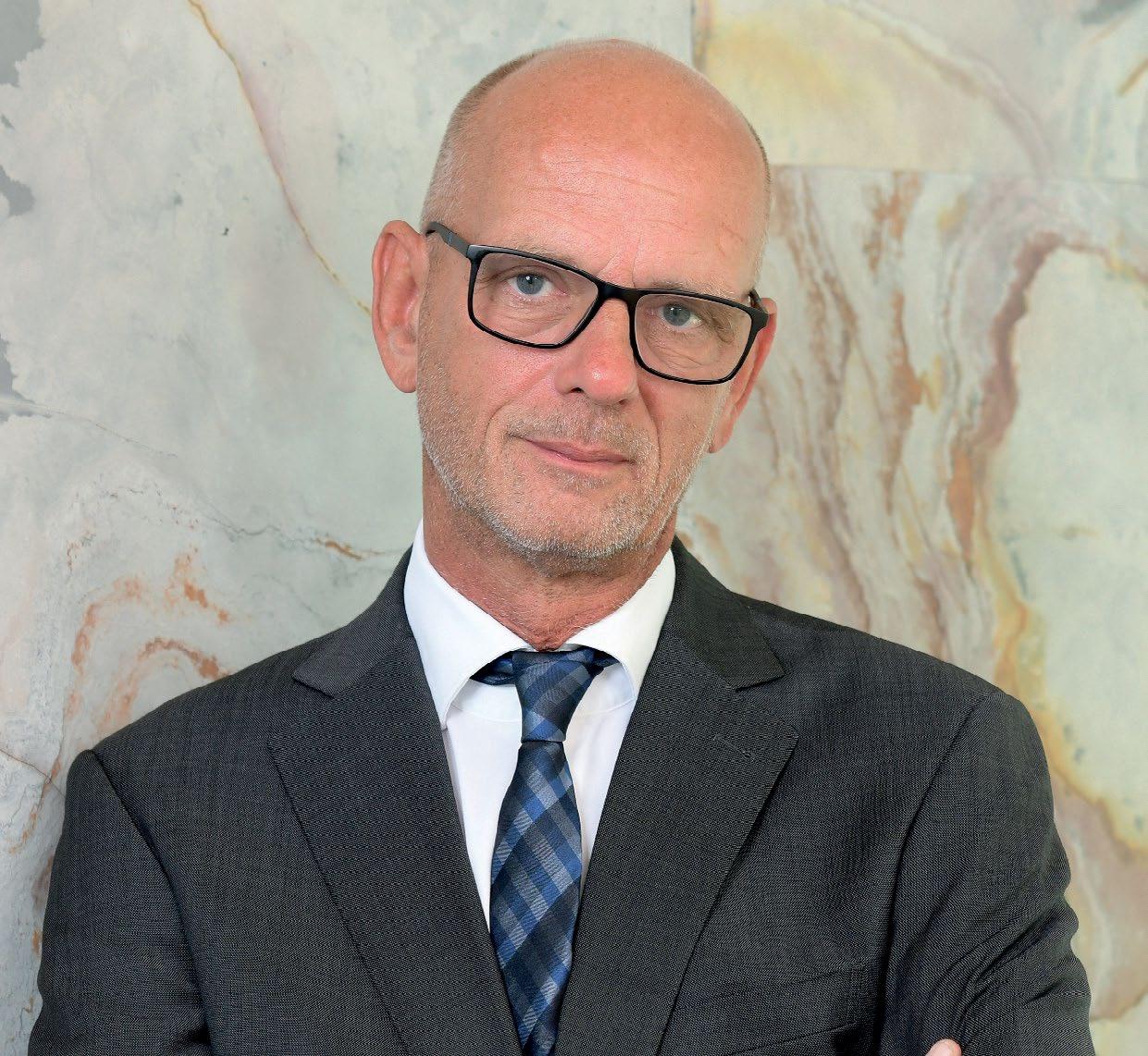
near and long term, and do you have any significant projects in the pipeline?
The big project that we just launched a couple of weeks ago is in Craiova; there's still room for improvement in the retail landscape. We saw a good opportunity to build a shopping centre more than two years ago. Initially, we were planning a shopping centre with fifty-five thousand square meters. The retailers' demand for Romania- international and European retailers- was much higher than expected. We needed to think about how we allocate all these retailers. We see many people from the city and the region are coming daily. We are on a good track here to become part of that community. The underlying economic assumptions we see historically are also how the Romanian economy has been performing. We look slightly more at the macroeconomics and how this affects purchasing power. Therefore, we think Romania is a solid and exciting investment market. We are also developing a thirty-five thousand square meter retail park in Galati, much closer to the Ukrainian border. We are already operating the shopping centre very successfully. There is also more to do in the future by acquiring additional assets or having more greenfield developments.
” Our commitment to sustainability is unwavering.”
Q: How does sustainability factor into your strategy?
The head of ESG in our company is reporting to me as a CEO directly. This is a topic in any industry. It becomes a vital part of any company that wants to have bank financing in the future. The main reason is we should save the planet and that I would like to have my kids and their kids still enjoying this wonderful planet. As a responsible person for a company, every leader needs to understand that this is an important topic. Therefore, it is not just the CO2 emission. It is everything: biodiversity, land to waste, and waste management in general. All these topics give you another example: we have now achieved to have 100% of our buildings being certificated and 100% of our buildings fixed with LED lights. It is about bringing down our consumption. We have done a pilot with AI software that is steering our BMS systems with excellent results. We saw that we could bring down our consumption somewhere between 15% and 20% on these three assets. Now, we want to roll it out throughout the whole portfolio. On one side, to bring down our emissions.
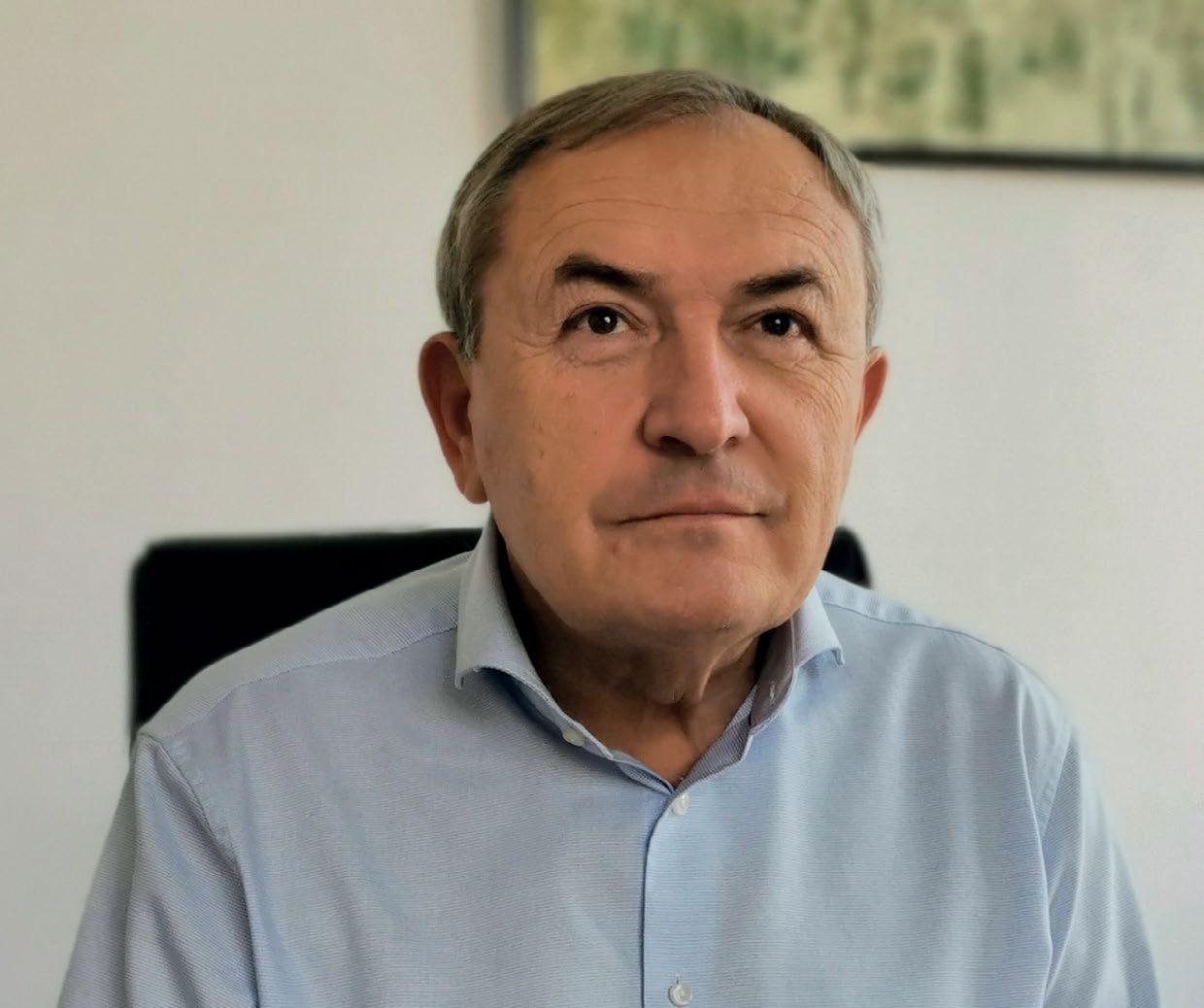
Mircea Ursache, Special Administrator at World Trade Center Bucharest, discusses the strategic vision that has shaped WTCB into a pivotal business hub in Eastern Europe, facilitating global and regional commerce.
Q: What are the pivotal decisions you have made in line with your vision for the WTCB?
To better understand the role of WTCB in the economic space of Romania, I have to say that it was the first Romanian company that received external financing after the 1989 revolution. It was credited by French banks. It was the first business center opened in Romania after the revolution. We had a monopoly on the business base. It was a crucial decision that our shareholders took because it was a very uncertain business environment here after the revolution. Together with the Romanian shareholders, a lot of foreign shareholders decided to build this space. One of the most important decisions then was to partner with the Chamber of Commerce and Industry of Romania. This decision was taken considering the neighbourhood with the largest exposition space in Bucharest, also owned by the Chamber of Commerce and Industry. The second decision they took, which is still in process, was to create and ensure foreign management, which
is managing the Pullman Hotel (the Accor Group). Our organization type is a copy of the multinational companies, starting from the personnel selection to the way of preparing the personnel through training, exchange of experience, and so on.
Today, we have 315 World Trade Centers in 90 countries on 4 continents. The World Trade Center Network is a second commerce organization. It facilitates the exchanges between similar organizations in different countries. We are the biggest World Trade Center in Eastern Europe, regarding the number of businesses, the diversity of the business, and the number of employees. Today, 30 years after the foundation of the World Trade Center in Bucharest, we are still among the most in-demand companies.
Q: What business opportunities do German companies have in Romania?
There are four World Trade Centers in Germany. I meet with the management of those four World Trade Centers twice a year at the regional European World Trade
”
We are the biggest World Trade Center in Eastern Europe.”
Center meeting and at the general assembly of World Trade Centers. We can always offer information to our Romanian entrepreneurs about the German entrepreneurs, about their interests here and in terms of the Romanian economy. There is a transparency element in the World Trade Center policy. Regarding the real situation in Bucharest, we offer official data.
Q: What are the other unique benefits of the World Trade Center Bucharest for its clients, stakeholders, and partners?
We mostly simplify, and that is what the stakeholders are interested in. We simplify access to information. Suppose you want to purchase or do business in a sector like car parts or wine, for example. In that case, you can come to us, and we have a list of the suppliers in Romania that you can contact and get whatever you want. Also, this is very important for foreign investors who come here with very limited time. We have all the logistics you may need. We can take them from the airport, give them a conference room, a space to meet with their partners, also catering, whatever they may need. You do not have to go to several parts of Bucharest to find accommodation, a meeting place, etc. We are not only the host, but we can also organize the meetings here. This month, we are hosting two international medicine congresses. It is not only an exchange of doctors – we are speaking about the entire industry of techniques and machines. Romania has a very stringent need for technology in the medical field from Germany.
We are a small part of the network. We must be in the middle of the commercial exchanges. There are others in the market facilitating commercial exchanges. Besides the Chamber of Commerce and
Industry of Romania, one of the shareholders is the Mayor of Bucharest. It is very important to promote the mayor's projects. There is also the international element. We have two great shareholders, the Accor Group and the French builder, Bouygues. They offer stability for the other shareholders. For all these various shareholders, we must give a certain stability and certainty for the investors here to stay.
Q: What does Romania offer that other countries in the region cannot?
Romania is sixth in Europe regarding its space and the population size and is also the country with the greatest economic growth in the European Union. We are a political, economic, and military stable model because we are a NATO member. The Romanian Leu and the Euro exchange rate have been stable for years. There is no risk for investors to start a business. Within a year, the official currency dropped. Another advantage is that Romanian legislation has become more and more predictable. There are no overnight changes in the legislation. Foreign tourists find in Romania the same multinationals. The bestselling cars are now Mercedes, Audi and BMW.
Q: What key experiences have shaped your current management style?
I was modelled by the meetings with my peers in other countries. I have spoken with managers and political personalities in 46 countries. All these experiences have shaped my way of managing my interactions.
Q: What is your final message regarding Romania's economic growth and trajectory?
Suppose Romania shall continue the European way. In that case, it will be the sixth country regarding the surface area and the number of inhabitants and between the first ten as economic power. We still need foreign investors and German investors with their German education.
Dana Bulat, Owner of United Media Services, articulates her leadership in steering the company through the evolving digital landscape with a focus on expertise, innovation, and a client-centric approach.
Q: Since you founded United Media Services in February 2006, what has been your strategic vision for the company, and how have you navigated the company's direction through the evolving landscape of advertising services?
My vision was always to create a center of expertise and innovation for our clients, to help them engage their target audiences and drive sustainable growth for their businesses. Through data driven strategies and customer centric campaigns, my team aimed to not only meet but also to exceed client expectations. By consistently delivering tangible business results, our focus remained on expanding our client base, fostering long term relationships, and achieving significant, measurable growth in our market.
For sure, I did not achieve the success alone. I have a great team that stayed together with me since we first started in 2006. I consider them to be part of my family. I had also the luck to meet along the way great people who liked me and believed in me, sometimes more than I did myself. And I doubled all these with hard work, resilience, responsibility and respect for my work, my clients and my colleagues.
Q: United Media Services prides itself on delivering measurable, integrated campaigns with a focus on digital platforms. How do you ensure that these values are consistently represented in your branding and are effectively communicated to your clients?
United Media Services ensures the consistent representation of its values by crafting a clear brand message and maintaining a visually cohesive identity across communication channels. The agency showcases its digital proficiency through engaging content, success stories, and active participa-
tion on digital platforms. Emphasizing transparency in measurement and regular client communication, United Media Services demonstrates its commitment to delivering measurable, integrated campaigns. By actively seeking and incorporating client feedback, the agency reinforces a culture of continuous improvement, ensuring its brand resonates with clients as a reliable partner in the dynamic landscape of digital marketing.
”
Through data driven strategies and customer centric campaigns, my team aimed to not only meet but also to exceed client expectations.”
Q: With the digital advertising market in Romania projected to grow by 5.74% from 2023 to 2028, reaching a market volume of US$709.1m, what strategies is United Media Services employing to capitalize on this growth and strengthen its market position?
One of our greatest assets is our team of senior experts. We consistently invested over the years in the professional and personal growth of our colleagues, providing them access to all the necessary and advanced training for their development. We take pride in being an official Google Marketing Platform partner, holding the prestigious GMP certification besides the existing ones which is very rewarding for our team. From this respect, we consider United Media Services is strategically positioned for success.
The agency is prioritizing innovation by developing and implementing cutting-edge digital campaign strategies, incorporating advanced technologies such as artificial intelligence and automation to enhance targeting precision and campaign efficiency. Emphasizing data-driven decision-making, United Media Services leverages analytics and insights to optimize campaign performance, ensuring measurable and tangible results for clients. Furthermore, the
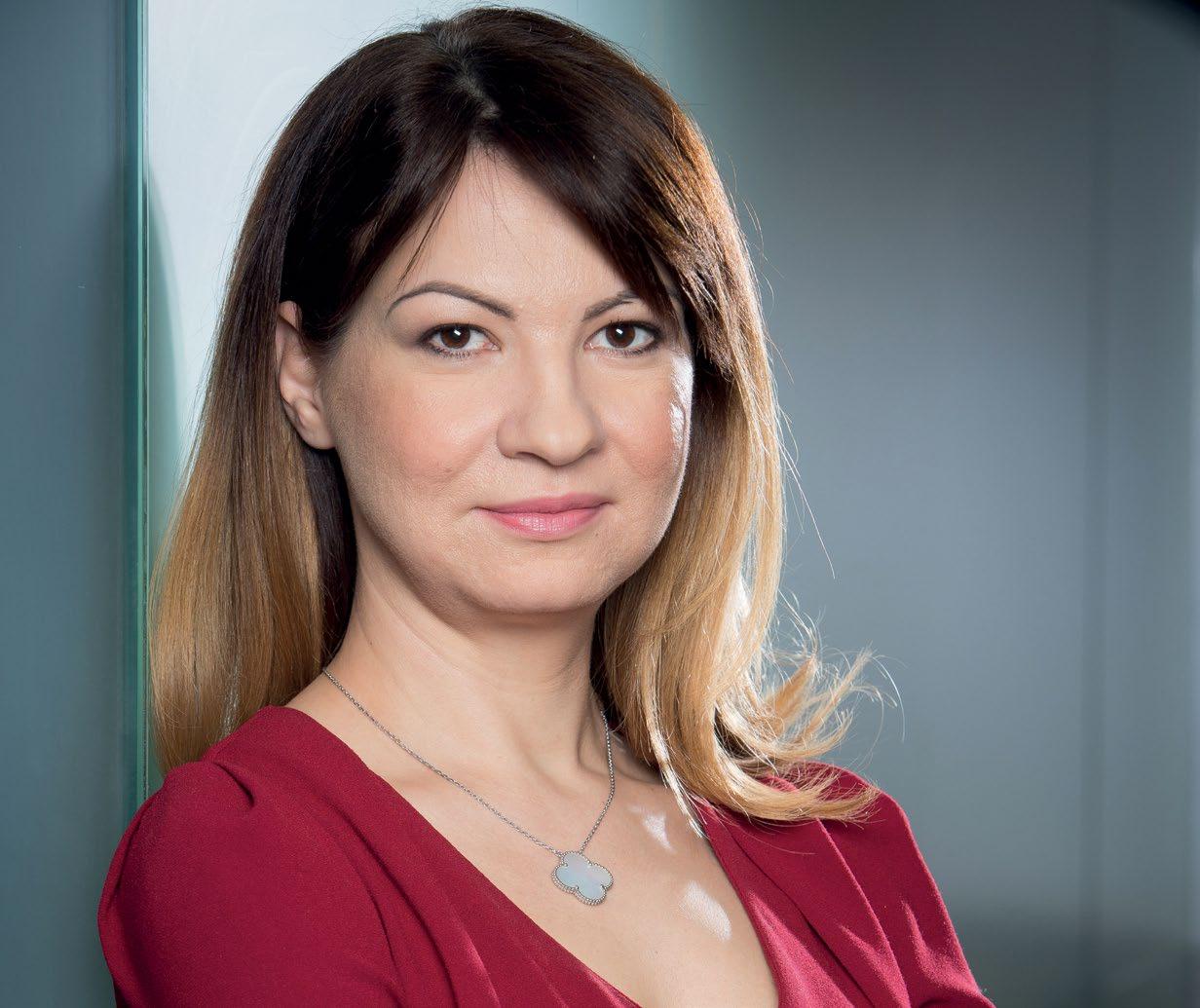
agency is actively engaged in client education, providing strategic consultation and establishing key partnerships within the digital ecosystem to stay abreast of industry trends.
Q: Considering the potential opportunities for German investors and partners in the advertising sector, what plans does United Media Services have to engage with these international stakeholders and expand its global presence?
Since 2016 we have a very successful and rewarding collaboration with a very important German company called Mediaplus Group who is the largest independent and partner-managed media agency in Europe with around 3000 employees worldwide. Together, we developed and implemented quite a large number of projects for well-established international clients.
Q: United Media Services has been recognized for the third time on Adweek's Fastest Growing Agencies List in 2023. What factors do you contribute to this success, and how does this recognition reflect the company's ongoing development and commitment to excellence in the advertising industry?
This recognition holds special significance for us, particularly as we first earned our spot just before the challenging year of 2020—a period that posed unprecedented difficulties for the global marcomm industry. Several key factors contribute to this achievement. First and foremost is the agency's unwavering commitment
to excellence, evident in its consistently high-quality work, innovative campaigns, and client satisfaction.
The company's ability to stay at the forefront of industry trends and adopt innovative technologies has also played a crucial role, allowing it to provide clients with effective and efficient advertising solutions. Furthermore, the agency's dedication to fostering a dynamic and growth-oriented work environment has been pivotal. By investing in its team's professional development, supporting their creative endeavors, and prioritizing a culture of collaboration, United Media Services has cultivated a workforce that is both skilled and motivated. This dedication to employee growth not only enhances individual performance but also contributes to the overall success and agility of the agency.
Q: With your extensive expertise in media strategy, consumer insights, and digital performance marketing, how have these experiences shaped your management style and approach to leading United Media Services?
One of the cornerstones of my management style is the cultivation of a culture of excellence. I firmly believe that fostering an environment where each team member feels empowered to contribute their best work is key to achieving outstanding results. To achieve this, I prioritize open communication, recognizing and celebrating individual and collective achievements, and providing ongoing support for professional development.
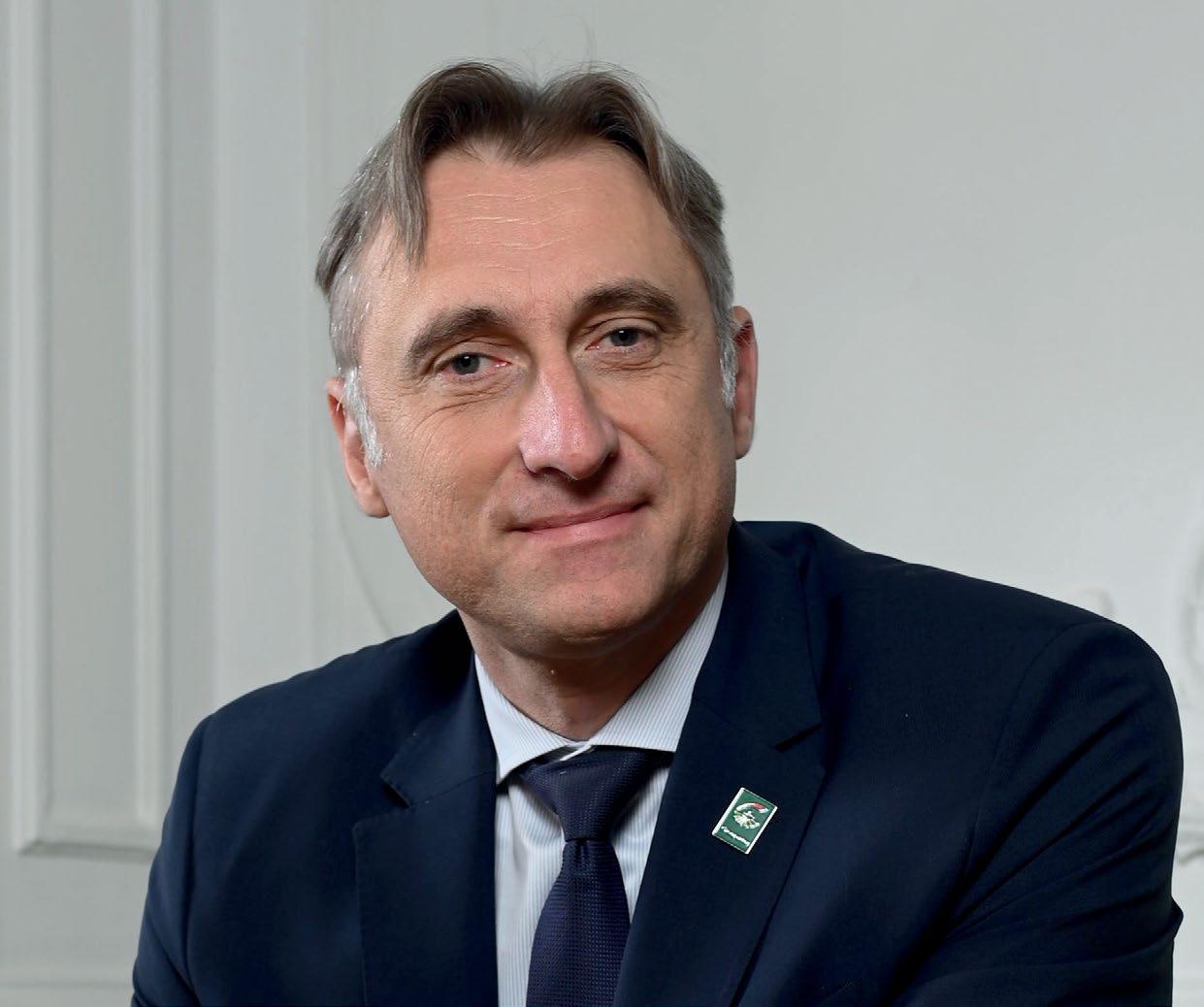
Q: What key decisions and vision are you aiming to implement within the company?
At the strategic level, we are in a continuation phase, adhering to our defined strategy encapsulated by two fundamental principles: preference and profitability. These principles encompass a broad spectrum of considerations. There are four key stakeholders crucial to our operations.
The key stakeholders are the client, partners (including distributors, cooperating banks, and service providers), employees, and shareholders. Prioritizing these stakeholders is the foundation for profitability, guiding our ongoing and future initiatives.
Of course, adaptability is crucial in today's world, since we are all facing such a complex environment that lacks predictability. Being able to adjust to this changing environment and meet the evolving needs of our customers is essential for us. Therefore, we prioritize exceeding customer expectations by looking beyond the insurance industry. Your service standards are shaped by interactions with diverse providers. When you choose us, you anticipate a
high level of service, and we strive to consistently understand and enhance our performance so that we not only meet, but exceed those expectations.
Q: Could you provide some examples of how you, as a CEO, actively implement and foster an inclusive mindset and context for your employees?
I encourage my team to go out, test, make mistakes, learn from them, identify necessary changes, and improve. We celebrate not just successes or projects with significant achievements but also failures coming from trying new paths. I aim to eliminate the negative connotation associated with failure in our company as I am a strong believer in learning more from failures than successes. Courage, testing and then starting again is crucial in generating and refining ideas that will eventually help us compete for customer preference and deliver top-notch service. Over time, we gained traction with this approach and consistent application of this method throughout the company will become a self-sustaining process. Others will observe that generating an idea and
” I encourage my team to go out, test, make mistakes, learn from them, identify necessary changes, and improve.”
initiating a project, even if not initially successful, can receive support and recognition. With a team of over 1,500 people, I am confident we can identify tens or hundreds of valuable ideas and invest the resources in the ones that can ultimately contribute significantly to our goals. This goes beyond mere innovation; it is about gaining the preference of our customers, partners, and employees in a sustainable way and creating an environment where individuals can freely express themselves and perform at their best. This one of the most solid foundations for a company which is there for the long run.
Q: How do you intend to sustain and further develop the growth and recognition, given that Groupama Romania secured the leading position in the insurance market and MTPL since 2022, and are there any upcoming strategies you plan to implement?
The Romanian market is emerging, with insurance penetration in the GDP at approximately 1.2-1.3%, compared to around 5-6% in Germany. This gap means that we still have significant room for growth. Conversely, there is substantial demand for essential services, such as health and life insurance, in areas where our sector is underexposed. Additionally, Romania faces significant exposure to earthquakes and natural disasters, significant risks that also indicate an untapped potential.
Q: Considering the distinct market dynamics and cultural differences, how do you balance the values of the larger international entity and the subsidiary operating in Romania?
We share the group's values in an authentic way as values like responsibility and solidarity easily cross
borders. Our values originate from the mutualistic nature of the group, where the client and shareholder are one and the same, and this makes perfect sense for us, as a company for which the main priority resides in client and team delight.
Groupama was created more than a century ago, in a small French village where people understood the value of pooling resources to help others.
After 10 to 20 years, it was evident that mutualization at the village level was not enough. The concept then extended to regions and country level. Nowadays, the group remains a mutual entity with shared values. Our collective purpose is to contribute to the common good, with the customers who are synonymous with the shareholders constituting the core focus.
Even though now we operate in different markets, it becomes a powerful message when I assert that I view my customers in the same light as my shareholders and prioritize taking care of both. This perspective enables effective communication with my colleagues, emphasizing the importance of considering the well-being of the customer and developing products and services with the customer in mind.
Q: Can you provide insights into the opportunities to engage with the market and Groupama, specifically focusing on the potential for international partners, including German investors, and elaborate on the opportunities you are specifically targeting for them?
We are here to serve all customers without bias, whether they are French, German, Italian, or Romanian, and we welcome all our customers.
From an economic perspective, Romania holds substantial potential for investors. We are at the heart of the EU, with all its advantages, as well as a NATO member. The workforce is educated and reliable, we have a big representation of the IT sector with its first unicorns and register consistently some of the highest GDP growths in the EU, just to mention a few.
Plus, it’s a beautiful and diverse, and welcoming country.
Fouad J. Khayat, Chairman of FRIAL S.A., outlines his strategic vision for enhancing the company's maritime and port operations, emphasizing innovation, sustainability, and customer-oriented expansion in the competitive global landscape.
Q: As Chairman of FRIAL, what is your vision for the company's future in the maritime sector, and what key strategies are you implementing to navigate the changing dynamics of port operations?
One of our key strategies is ensuring the location of our warehouses is accessible by all the means of transportation: truck, railway, and sea barges from Romania and from Ukraine. This is the case for our Bulk terminal at Berth Nr 53 which has a capacity of 24,000 tons
We also have a liquid cargo terminal located in Berth 19, which has a capacity of 12,000 tons. We also have three tanks with a capacity of 15,000 tons linked. These tanks were connected to berth nr 19, which was too small for our clients’ vessels. We have connected these tanks to Berth 24 with a purposely built pipeline. We finished this project at the end of last year as part of our modernization plans. These tanks which are now used for sunflower oil could also be used for used cooking oil or liquid fertilizer. The tanks are also accessible by truck, and by rail through our own railway station for ease of transportation and to guarantee multimodal flexibility.
Q: In 2022, FRIAL modernized the tanks at Berth 19. How do these and other innovative projects contribute to the company's operational efficiency and competitive edge in the sector?
FRIAL has one of the smallest terminals in the port, but we have become agile and adaptable to keep up with our competitors. In 2023, thanks to the influx of cargo and the developments we made, we are now expanding our facilities and increasing our capacity. The increase in capacity is a demand
of the customers because we already have a capacity for 24,000 tons in our bulk warehouse, but our customers now have shipments of 30,000 to 45,000 tons of cargo (mainly cereals). We will therefore expand the warehouses capacity and increase the loading speed to 15,000 tonnes per day. We are also updating and buying new equipment for cargo handling and storage. We need to lift the capacity to accommodate every commercial need of our clients.
” When we make investments, we always try to anticipate the needs of our customers and what it takes for them to be successful.”
Q: Romania will partially enter Schengen in March this year, lifting air and sea borders from Romania to other European countries. The land deal is still in the works, and further negotiations are expected in the coming years. What opportunities does this change bring forth to FRIAL and Romania?
The Schengen area will facilitate a lot of the cargo and ship movements. This means logistics would be easier to control, and streamlining this would lead to less time consumption. It will also make Romania an entrance into Schengen, as the cargo will pass through us first.
Although we know this change will bring about opportunities for Romania and our company, it is hard to project just how much growth it could bring without seeing it in action. However, we are sure there will be an increase in all cargo operations, and we have to be up to standard to provide services to new and returning clients. The Ministry of Transport and the Port Authorities are working with us and fully supporting us, to guarantee that everything is smooth sailing.
In addition, Schengen could bring in new investors to Romania and take advantage of the growing Romanian

economy. There would certainly be a lot of investments in the industrial sector because imports and exports are more streamlined. We will also have a lot of investment concerning building infrastructure like highways and roads. As for FRIAL, we are open to any opportunities or partnerships. Until now, we have yet to receive any direct interest from German companies, and we want investors to know that our management is efficient and we can make decisions quickly while providing flexibility. We employ over 110 people, but we are recruiting continuously as the company continues to grow.
Q: FRIAL's recent membership of the French Chamber of Commerce and Industry in Romania signifies a key milestone. How do these developments contribute to FRIAL's market presence and service offerings?
This allowed us to strengthen our relationship with the French business community and create further exposure for Romania and FRIAL. France is one of Romania's biggest investors, and my background in working in France and my heritage gives us an advantage.
Q: Given the importance of the German market in the maritime industry, what opportunities does FRIAL see for German investors and partners, and how does this align with the company's international expansion plans? How do innovation and technology play a part in the growth of the company? We are investing considerably in en-
ergy efficiency and electric equipment. Most of our handling equipment and all our cranes are electric, and we are transitioning our machinery to use renewable instead of fuel. We have a solar energy project to sustain our energy usage.
In addition, we are trying to automatize all of our systems to make our work more efficient, faster, and streamlined. Working on this area is crucial, especially when we saw an energy crisis last winter. We are looking at getting energy independence from within the company. We are also installing the most up-to-date IT systems available for our management and our employees. We are currently working with the Ministry of Transport and Port Authority, which would give us the possibility of operating larger investments in Romania at a faster rate. We are expecting this plan to be available this year as the project is in its final stages.
In addition, we are starting joint ventures with several companies to develop new projects for FRIAL in new locations and expand our reach. We have several projects in the pipeline, and our partners are keen to go ahead. We already have the expertise for the port, while the expertise of our partners is outside the port, we expect the success of the projects as we work together. One of the projects is about cogeneration, and we expect this project to last for a decade. We want to increase the material for biodiesel from used cooking oil, as of the moment the biodiesel is made from grapeseed oil, and we want to use this in another way.
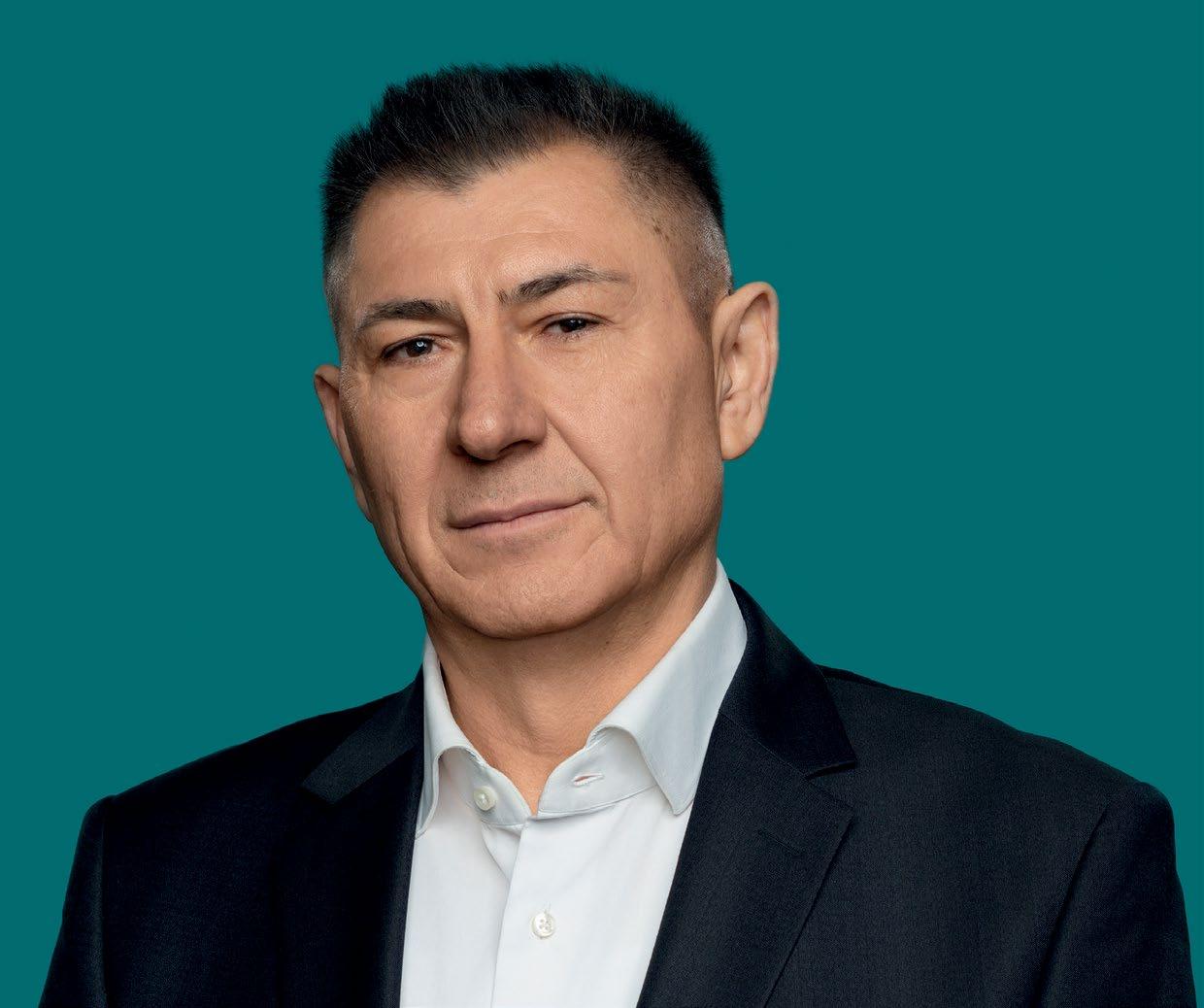
Q: Can you share the vision you had when you started Rematinvest in 2003, how it has changed over time, and what plans you have for the future?
When choosing to start a business, it is crucial to have a clear and strong vision. This vision should guide your efforts as you strive for excellence and the highest possible standards. I strongly believe in the importance of recycling and the circular economy. I have been a pioneer in the recycling industry in Romania since 1992 when there were few companies in this field.
My goal was to become a regional leader in the recycling industry in Romania, driven by the need to protect the environment and contribute to the circular economy. To achieve this, I made significant investments in technology. Understanding the demands of the economy, market, and our partners is essential. Our focus is on solving the recycling problems faced by other companies.
I set specific, measurable, achievable, relevant, and time-bound goals to track our company's progress. Diversifying the materials we recycle, such as plastic, wood, non-metallic, paper,
and glass, has been a key strategy. We continuously explore new methods to optimize the recycling industry. Building long-lasting relationships with partners in Romania has been instrumental in promoting recycling and addressing their challenges. Staying ahead of the curve is crucial in our industry, considering the ever-changing legislation. Compliance with the law and understanding industry standards are essential for success.
Q: What possibilities exist for international investors, including those in Germany?
Believing in your business and being prepared to answer questions is crucial. If you lack confidence in your business, others will not believe in it either. The key is to genuinely believe in what you do. Nowadays, with access to abundant information, our partnerships, like the one with Scholz 20 years ago, are more straightforward.
Explaining the advantages of coming to Romania required clarity and specificity in our answers back then.
I consider the recycling industry the most important because it allows us to utilize resources within a circular econ-
omy, minimizing waste. Our goal is to establish partnerships, like with Scholz, and promote understanding of the recyclable industry. This not only protects the environment but also preserves valuable resources. Responsible recycling leads to a cleaner environment, utilizes cost-effective resources, and creates job opportunities, contributing to economic stability in the community.
To stay ahead in the recyclable industry, it is crucial to invest in and adopt the latest technologies. Currently, we have partnerships with several German companies, some of which operate factories and mills in Romania. This collaboration was facilitated by Scholz's established name in the market, emphasizing the importance of maintaining high standards. The exchange of knowledge between us is essential to uphold our responsibilities and ensure the success of our partnerships.
” The industry is progressing, and there is a need for more investment in Romania.”
Q: Can you explain how recent investments in new trucks, trailers, and waste processing equipment contribute to the company's growth, and what future investments align with the company's vision?
Success in any industry requires a clear vision and continuous growth, achieved through investments in technology. Understanding the purpose and risks of these investments is crucial. Our commitment to technological advancement stems from our belief that a stagnant company is at risk of decline.
In a fast-paced world, where time is precious, it is essential to align with our clients' busy schedules. Our investments focus on equipment rather than simple trucks, incorporating features like cranes, tailored to specific usage scenarios. These specialized trucks require technology to process steel and scrap according to customer specifications. Our goal is to offer solutions to suppliers, make investments to process recycla-
ble materials, and deliver the desired products to our customers. Striking a balance between client and supplier demands is challenging, especially considering the increasing energy prices that make the steel mills more particular about scrap quality.
To meet these challenges, ongoing investments in technology are essential. Staying attuned to market demands is equally vital in our dynamic environment. My role involves moving and sorting materials and preparing platforms and buildings to boost recycling rates. Despite the challenges, I believe we have significant potential in this industry.
Q: What factors contribute to the success of companies with international partnerships, such as those with German partners, in the evolving business climate of Romania?
Romania currently provides a secure market, making it favourable for investments. The industry is progressing, and there is a need for more investment in Romania. Businesspeople in Romania are keen on forming partnerships with investors, and these collaborations are highly beneficial. I have experienced the advantages of such partnerships. Investors bring valuable know-how, knowledge, and expertise, contributing to our learning and development. These partnerships have been instrumental in our growth. For instance, without the support of Scholz, I would not have achieved the current level of success. Scholz had a deep understanding of the market, culture, and business practices in Romania, which was crucial for our progress. Cultural alignment, especially in Transylvania, made adaptation and communication easier.
The success I have witnessed is not unique; many companies with German partners have thrived across various industries in Romania. Despite challenges, the business climate in Romania is conducive, offering opportunities for development and investment. It is worth noting that building trust is vital for success. In our case, having a 50-50 partnership, sharing the same vision with our German partner, has been a key factor in our joint business development over the past 30 years.
Farmaceutica Remedia holds a significant position in the Romanian market. Guiding the company is Valentin-Norbert Tarus, whose pragmatic leadership is informed by over 30 years in the industry.
Q: What is Remedia’s current position in the marketplace, and from your perspective, what unique competitive advantages do you believe set you apart from your competitors?
Remedia ranks as the ninth or tenth distributor in Romania, placing us outside of the primary league. In this premier category, there exist three or four companies that are up to ten to twelve times our size in terms of volume. Nevertheless, we believe that the agility, adaptability, and service level we provide to our partners — which includes both suppliers and customers — may surpass what larger companies can provide.
Q: How might potential partners leverage your ability to bring drugs to the market effectively?
Historically, Remedia has been a traditional partner for introducing new companies to the country, especially in the early 90s, and facilitating marketing efforts for companies not previously present within the nation.
Moreover, we continue to maintain a regulatory department, providing numerous companies with services related to product registration and updating product variations, which is indeed a value-added service. While most large companies have their own regulatory departments, occasionally they require additional workforce and activities, which we are equipped to provide.
Additionally, we engage in the promotion of pharmaceuticals through our marketing and sales teams, operating in hospitals and other healthcare settings, and also exploring niche activities. For instance, in the realm of transplantation, we have registered and brought to the market some of the most vital products for preventing organ rejection, immunosuppressants and also most of the solution for preserving organs.
Q: What is the current status of your relationships with Germany, both in
terms of the country itself and its key stakeholders or players?
Currently, the prominent players in big pharma are multinational. Even if a company originated in a specific country, such as Germany, it presently operates as a global entity, a multinational corporation. While we maintain relationships with these major enterprises, we also engage with smaller German companies. Our connections with German entities are not only robust but also stem from longstanding and positive relations. There has been a sudden surge of interest in the Romanian market, particularly noticeable in the pharmaceutical sector. This interest peaked notably in the early 90s when the Romanian pharmaceutical market opened, attracting numerous companies to Romania to handle drug registrations, promotions, and sales. Currently, while the market may not be as saturated as those in Western countries, it remains competitive. I believe there are still big opportunities for German companies not only to introduce medicaments but also to offer related and specialized logistical services for pharmaceuticals.
”
I believe there are still big opportunities for German companies not only to introduce medicaments but also to offer related and specialized logistical services for pharmaceuticals.”
Q: How can German companies become integral to your growth story in Romania?
We have amassed extensive expertise over more than 30 years of activity in the pharmaceutical industry, ranging from market information and studies to statistics. Additionally, we are a company that is very open to welcoming German shareholders. Remedia is listed on the Bucharest stock exchange ( https://bvb. ro/ ), making its shares available for purchase by anyone through a straightforward process. While I hold the majority of the shares, making me the majority shareholder, I am not necessarily intent
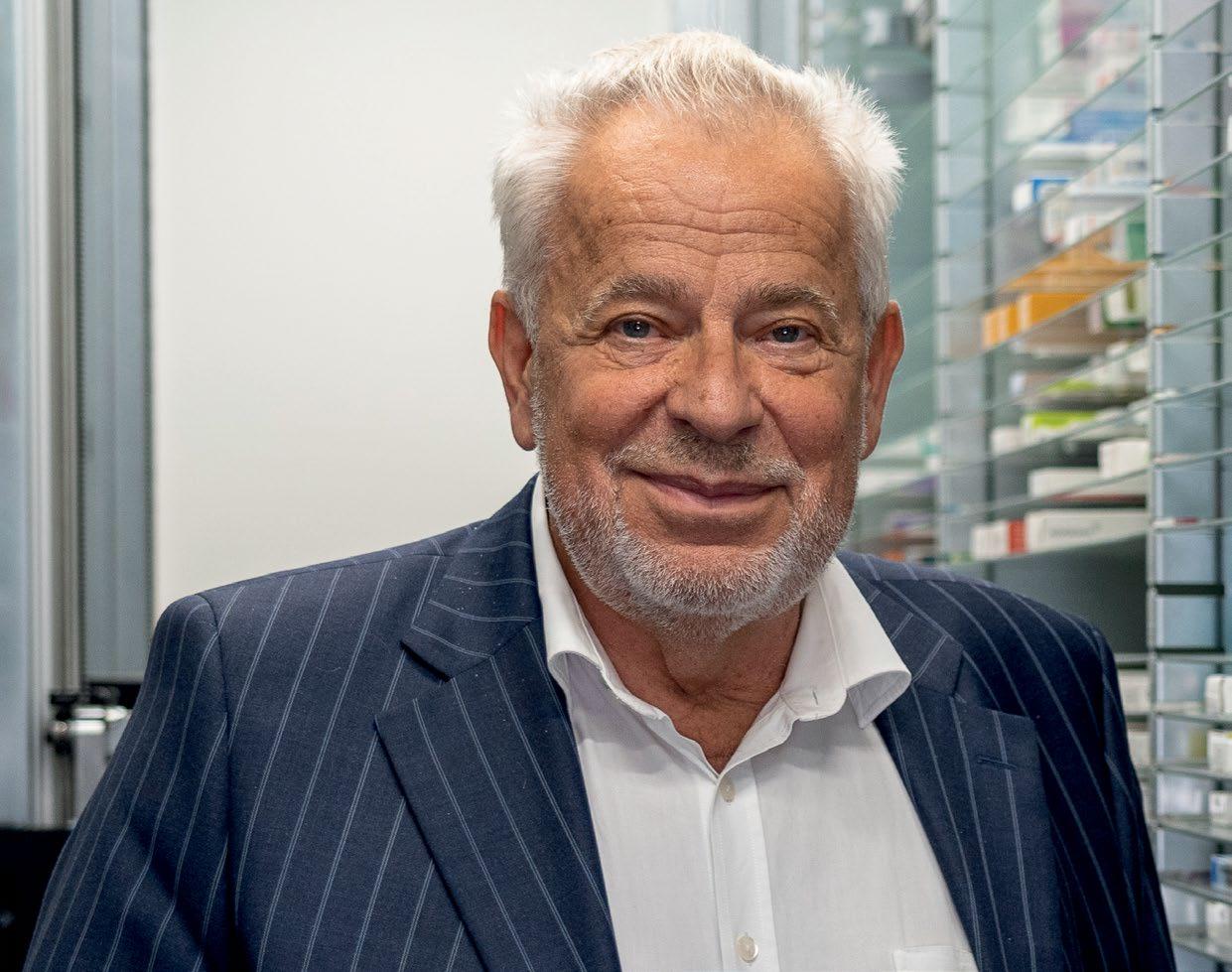
on maintaining this status indefinitely. It's worth noting that Remedia is a profitable company. Over recent years, we have consistently paid dividends, approximately €1 million per year. According declared dividend policy this represents minimum 50% of the net profit. Although this may not be especially significant for a profitable German company, and only represents about 1% of turnover, it is notable in the pharmaceutical distribution sector. From my research, the average profit for pharmaceutical companies in Romania, particularly focusing on the most significant 10-12 companies, is around 1.86% of the turnover, over the EU average. Even in Germany, the profit margin for distribution companies tends to hover around 2%, or perhaps slightly less. Thus, pharmaceutical distribution is characteristically a high-volume, low-margin business.
Q: Do you have any specific plans for investments in innovation and digitalization that you believe will provide you with a competitive advantage?
In recent years, we, as a distributor ranked approximately tenth in the market, have had to compete with significantly larger players possessing extensive international expertise. Phoenix, for instance, is the largest pharmaceutical distributor and health provider in Europe. They have a presence in almost all European countries, operating pharma-
cies, e-commerce platforms, and warehouses. Additionally, there's Alliance, an American company, and Dr. Max, a substantial player based in Czech Republic, but operating in several EU countries. Currently, we are in a phase of optimization. We initiated this by introducing the first pharmacy in Romania to utilize a robot. Our ongoing plans and work focus on further optimizing our warehouse. While it's partially optimized now, our plan involves introducing automation solutions, particularly leaning on pharmacy robots produced in Germany, by the company BD Rowa that we represent in Romania, Bulgaria and Moldova.
Q: What is your take on sustainability?
Promoting sustainability principle is central to my professional conscience. You know, when I started business, nobody was talking about sustainability. Public discourse on the topic was lacking, and explicit commitment to sustainable practices, was absent from organisational dialogues. However, some entities were tacitly expressing their concern for the environment and engaging in actions to reduce impacts or waste generation, even if specific targets were not being declared or formalised. Now, it is essential to mobilise all stakeholders, especally our team at Remedia, in a collective effort to promote nature conservation and implement sustainable practices, in all our activities.
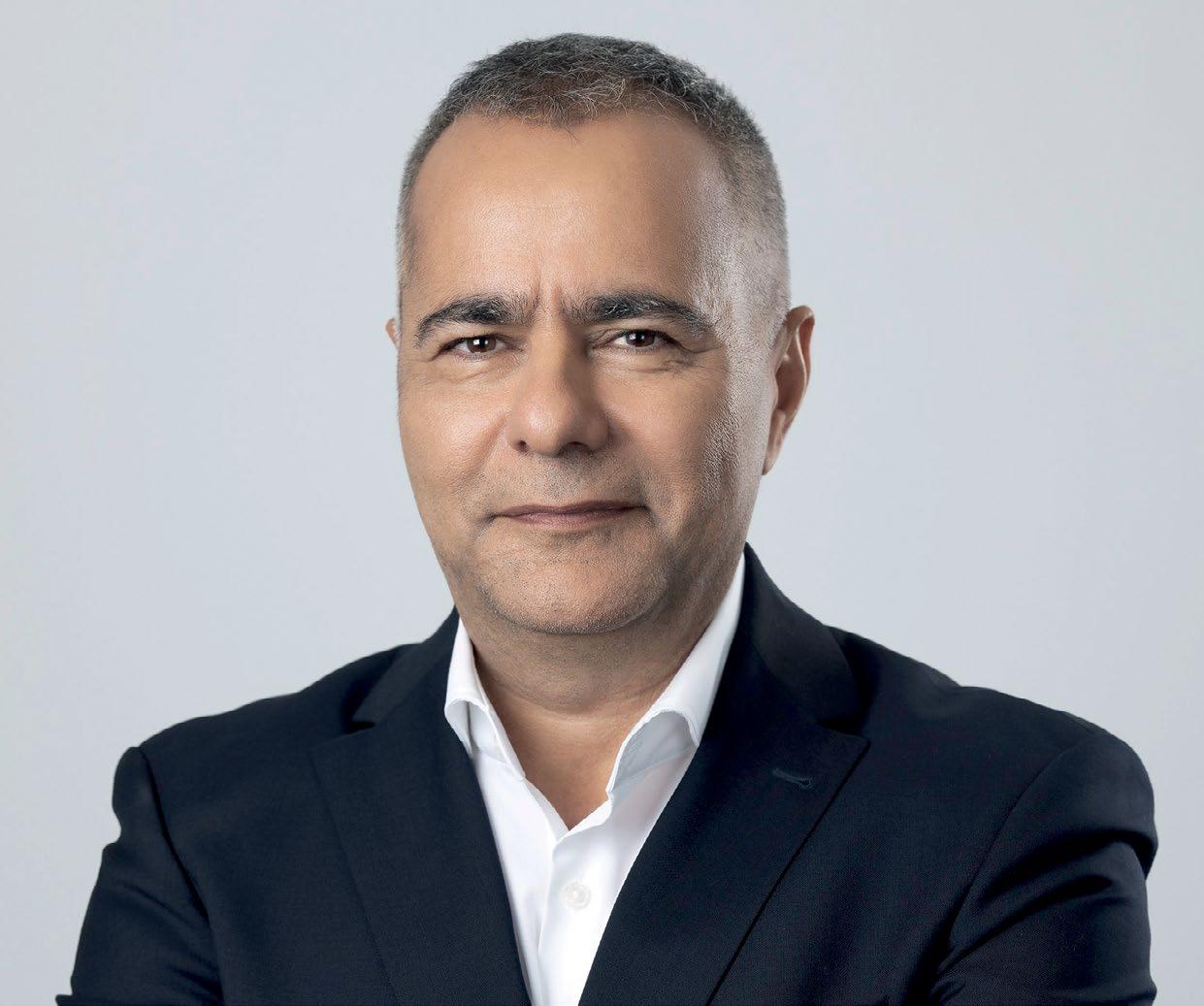
Q: Can you provide us a brief introduction to the structure of the agricultural sector in Romania?
From my point of view, I see agriculture and the agricultural sector not just as a business but also as closely related to social issues. In one way or another, 20% of Romania's population is connected to agriculture. There are two sectors in Romanian agriculture - high-performance farms and subsistence agriculture. At least 60% of our agriculture consists of high-performance farms, which deliver 75% of the agricultural production. The 20%-30% engaged in subsistence agriculture represent 80% of the total active agricultural population. It is worth noting that this is also the general picture of Eastern Europe, not just Romania, and our goal is to increase the share of high-performance farms in the agricultural sector.
The high-performance agricultural sector is at the same level as agriculture in Western Europe. In the last 15 years, especially after 2010, it has had a sustained increase in productivity. Romania is a net producer of raw materials for the food sector, such as cereals and oilseeds, but the paradox is that we are also a net importer of
finished products for the food sector. We need to break out of this framework and use raw materials to produce in Romania, not just to export them.
Q: How do you attract the younger generation back to the farming sector as a career of choice?
We believe that a farmer's child who has graduated in law, IT, or public administration could represent farmers in their respective fields, having a role in the agricultural ecosystem. A farmer's child, even if they are not directly involved in farming but in administration or another specialization, is still 50% a farmer. We have managed to bring back to the agricultural industry children who have specialized in other fields, especially through the digitalization of the agricultural sector.
First and foremost, they already know about agriculture and have a profitable family business. They also want to work in a digitalized industry, and we meet them halfway and encourage them to help digitalize the agricultural industry. Moreover, it is better for these young people to develop skills to work even in public administration, as they have a better understanding
” It is easy for German companies to move part of their production operations to Romania, as the raw materials, labor force, and consumption are already here.”
of the situation of farmers, having ties with the family business in agriculture.
Q: How are you promoting opportunities for women in the sector?
The agriculture industry globally is going through a digitalisation process, and the demand for physical strength isn't needed the same as in the past. Up until recently, it was a must to have enough muscle power and physical strength to do the hard work, but technology has become an equalizer. Nowadays, what matters for a farmer are having the brain, the skills, the leadership, and the know-how, rather than gender identity.
In a traditional family farm business in Romania, women have always managed the economic and financial part, while men worked the land. Therefore, we offer courses for women in the family on administrative and financial topics of the business. We try to bridge the agricultural sector of the future and the present, as it will not be long before there is no differentiation between men and women. We create the framework where we can train women to be directly involved in the sector.
Q: Can you talk about collaborations with German clients or the potential you see for the German investors?
Historically, Romania has always been open and receptive to initiatives from the German industry. We are working closely with German companies, but the biggest obstacle in collaboration with Germany is the extremely conservative attitude of the industry. They are very firm in their methods, and the German industry has invested heavily in China, but labor costs are cheaper in Eastern Europe these days. If the investment focus from China were directed towards Romania or
Eastern Europe, this would significantly boost the agricultural sector.
The investment we are calling for is not just capital, but also investment in technology and know-how, transferring certain parts of the business to Romania, which would be a mutual gain. At the level of ministries and authorities, there is openness to offer certain facilities and guarantees to German companies to invest in Romania, especially in the strategic sectors like processing and food industry.
It is easy for German companies to move part of their production operations to Romania, as the raw materials, labor force, and consumption are already here. For example, Germany is slowly withdrawing from the animal husbandry sector. However, Romania wants to grow the livestock sector, so it would be logical to move operations here instead of completely closing down the entire industry. This shows the right combination of Romania's and Germany's strengths, which would help the overall competitiveness of the European Union.
My dream has always been and still is to be the largest company supporting farmers. However, over the years, my dream has evolved into having farmers as shareholders in Agricover, to be part of our success. I wish that at the general meeting of shareholders, when we analyze the annual financial results together with Agricover's management team, I have 1000 farmer shareholders alongside me. We had plans to list shares on the stock exchange, but the market conditions were not favorable. We hope to be able to do this in the next two to three years, and these 1000 farmers could come with me during the public offering.
I want to offer Romania the most innovative and up-to-date farming model, but I need the new generation of farmers to do this. We already have 300 young farmers, graduates of the Young Leaders for Agriculture program, in the field looking at what needs to be done for the agricultural sector. I have managed to bring digital companies into the agricultural sector and young people into the industry.
Peter de Boer, Member of the Board and Investor Relations Manager at DN AGRAR, highlights the company’s growth strategies, focusing on sustainability, expansion, and becoming the European leader in dairy production.
Q: Since joining DN AGRAR in 2019, what strategies have you implemented for growth, and what were the pivotal decisions behind this progress?
The initial idea to enter Romania as DN AGRAR arose in 2008 as we observed a significant deficit in food production, particularly in dairy and agricultural products. Romania imports over 50% of its milk, mainly from Poland and Hungary, creating a growth potential. The government is focused on developing the pork industry, aiming for self-sufficiency by 2030, but there is an opportunity for similar strategies in the dairy sector.
Our company aims to become the largest milk producer in Romania and the EU. Romania currently has the lowest yield per cow at approximately 10 litres, indicating substantial room for growth. With our current daily milk production of 165,000 litres set to increase to 200,000 litres soon, our goal is to reach 300,000 litres per day by 2027, making us one of the largest milk producers in Romania.
I joined the company with a background in law and economics, focusing on getting the company listed on the stock exchange. With a family investment fund holding 74% of the shares, we are among the fastest-growing companies on the Romanian stock exchange. Our strategic financial planning, operational analyses, and acquisitions, including obtaining financing from ING, have contributed to our significant growth, with 165% growth on the stock market since listing
Q: To what extent do you attribute the company's rapid 16-year growth to its integrated approach and internal collaboration?
Having everything in-house has greatly benefited us. The cultural clash has been minimized, allowing for better
control and predictability. While external options may sometimes seem cost-effective, having our operations in-house has increased efficiency. This integration has transformed us into a larger company, enabling us to pursue more substantial projects.
In addition to our dairy operations, we are constructing a compost facility, investing in solar energy, and exploring a partnership in biogas. These initiatives align with our commitment to environmental, social, and governance (ESG) policies. Managing our manure through composting has reduced the need for chemical fertilizers, contributing positively to both the environment and cost savings.
” Our company aims to become the largest milk producer in Romania and the EU.”
Our focus on circular agriculture involves producing food for our animals across 10,000 hectares. We employ a no-till technology in most fields, further contributing to sustainable practices. Solar panels on our roofs aim to make our farms more self-sufficient in terms of electricity. Looking ahead, we are considering the electrification of company cars and trucks, where feasible. Engaging in discussions with key players in the field, including private equity funds, we are poised for strategic decisions in the coming months.
Our goal is not only financial growth but also a commitment to sustainable and responsible practices, making us a leader in the agricultural sector. Currently, our workforce comprises approximately 300 employees.
Q: Could you elaborate on the core values of high quality, innovation, and community impact in your operations, and identify potential opportunities for investors or partners in Germany?
Our growth strategy is straightforward. Currently, our market capitalization is around 60 million euros. Our goal, by the end of 2027 or the
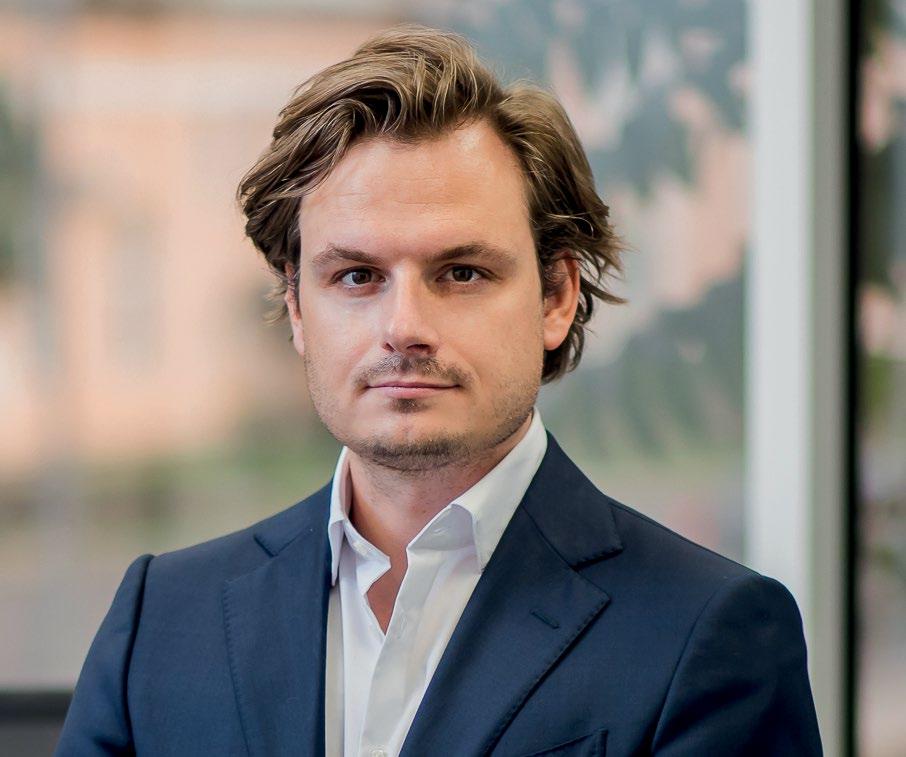
beginning of 2028, is to double this figure, aiming for a market cap of 100 million euros, which translates to a threefold increase per share.
To achieve this, our strategy involves several key initiatives. We are building a compost facility, focusing on sustainability through solar and biogas projects. Additionally, we plan to acquire at least one external farm to integrate into our group. These steps, we believe, will be sufficient to reach our target market cap.
Investing in infrastructure, such as an eight-kilometre manure pipe, has significantly increased efficiency, reducing pollution and benefiting the climate. Sustainability is crucial, given our position as a listed company and a leader in Romania and Eastern Europe. As we strive to become one of the top three in the EU, adopting innovative practices is key to staying ahead.
Q: In light of your global reach, what encouraging message would you offer to potential investors and partners about Romania?
Romania offers significant opportunities for growth, especially if approached correctly. Being physically present is crucial for effective management, and selecting the right region, such as Transylvania, is essential due to its reputation as the most developed region. The
country has vast potential, particularly in production and agriculture, with many foreign companies already active. There is a diverse business community, and language might not be a barrier, as German is widely spoken in certain communities. Romania imports a considerable amount, leaving room for value-added products in a home market of nearly 20 million people. Additionally, the proximity to emerging economies like Ukraine, Hungary, and Serbia, along with the existing EU members, creates a region with substantial growth potential.
The Romanian workforce, especially the younger generation, is enthusiastic about developing their country. Building strong partnerships and experiencing growth rates of 20-30% is not uncommon, making it an attractive investment market. The stock exchange in Romania presents opportunities for significant growth compared to Western European rates.
Our company, with investors from various European countries, aims to be more visible to foreign investment funds as we move to the main market. With a profit margin ranging from 12-14%, which is impressive for the agricultural sector, we see potential for even faster growth and diversification into other areas as we continue to scale up and leverage economies of scale.
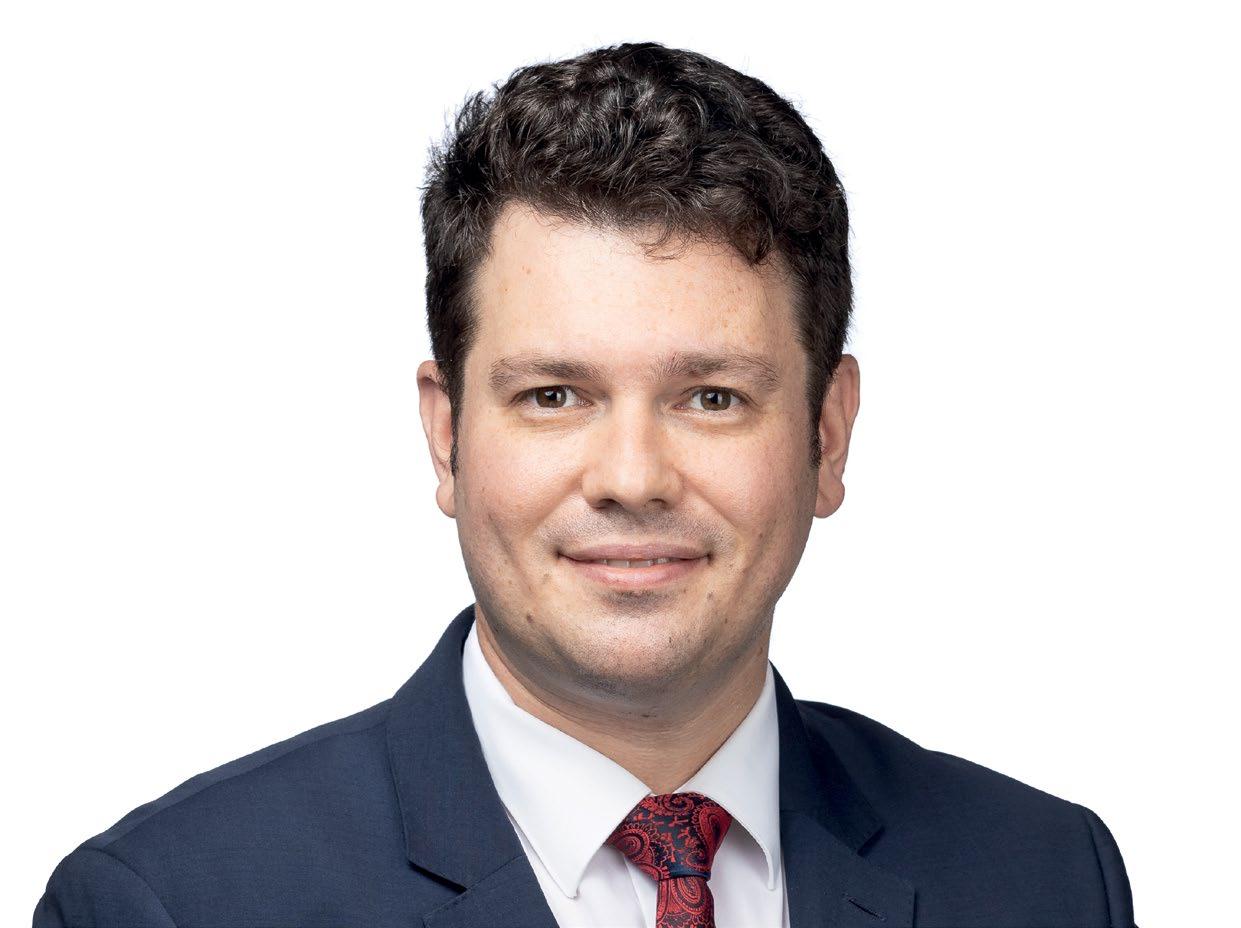
Societatea Nationala Nuclearelectrica (SNN) is a leading clean energy supplier. Director General Cosmin Ghita discusses the firm’s goals and vision.
Q: Can you outline the key decisions you have made since becoming Director General in September 2017 that align with your strategic vision for Nuclearelectrica?
Since assuming leadership of the company, significant decisions have been made. Firstly, there has been a focus on enhancing corporate governance and modernising our team. This entails a generational shift towards digitalisation and the adoption of contemporary business practices. Notably, we have pioneered the establishment of an externally audited compliance function, a first among state-owned enterprises. Our efforts aim to align management practices more closely with those of leading Western multinationals, drawing on insights gained from my prior experience. We continuously benchmark ourselves against top performers in the nuclear sector, facilitated by our engagement with the World Association of Nuclear Operators.
Secondly, we have undertaken the integration of strategic functions within the company. This includes the optimisation of our uranium supply chain, modernisation of operations, and consolidation of key functions such as waste management. These measures enhance our operational resilience and drive towards self-sufficiency.
Lastly, a bold expansion program has been initiated, featuring the construction of two additional CANDU reactors and the exploration of small modular reactors (SMRs) and renewable energy sources. This expansion aligns with Romania's ambitious decarbonisation goals, particularly its aim to eliminate 4.59 gigawatts of coal-generated power by 2032. Our contribution targets the replacement of coal infrastructure with approximately 2000 megawatts of cleaner energy. This includes the refurbishment of Unit 1 in Cernavoda and the establishment of SMR, 462 MW, together with solar facilities, expected to generate 50 to 80 megawatts of power, while repurposing former coal sites.
Q: How is the company positioning itself in the ongoing debate surrounding nuclear energy, particularly considering the trend toward diversification into renewables?
In Romania, nuclear energy has long enjoyed robust support and has maintained a high standard of excellence. Notably, Cernavoda's Unit 2 boasts the world's highest capacity factor, while Unit 1 consistently achieves superior safety rankings. This commitment to excellence is a source of national pride. Romania's deliberate choice of North American CANDU reactor technology
” In Romania, nuclear energy has long enjoyed robust support and has maintained a high standard of excellence.
underscores our commitment to resilience and independence. The ability to manage the full fuel cycle domestically proved invaluable during the pandemic, enabling uninterrupted operations.
Our dedication to self-sufficiency was evident as we mobilised personnel, operated 24/7 and sourced all necessary resources within the country.
Safety is paramount among our core values. We prioritise safe operations and environmental compliance, recognising that nuclear safety hinges on a culture of responsibility and error prevention. Our emphasis on personnel underscores the pivotal role of skilled operators in our success. Professional excellence guides our operations, ensuring meticulous plant management and adherence to standards. Additionally, we strive to be responsible corporate citizens, mindful of our impact on local communities. Sustainable development is integral to our economic viability and future-proofing, reflected in our strategic investments, including the small modular reactor program.
Our partnership with the US in the SMR initiative demonstrates our commitment to innovation and regional leadership. This value-driven approach has significantly enhanced shareholder returns, with our share price surging from 6 RON to nearly 48, marking an eightfold increase over six years. Inclusion in the FTSE Russell index further validates our performance and attracts investor confidence, supporting the growth of the Romanian stock exchange. Through international marketing efforts, we continue to showcase our achievements and attract investment interest.
Q: Can you elaborate on the strategies that you believe have driven the company's growth, including any specific measures you have implemented?
One crucial aspect is talent attraction. We have launched an aggressive hiring
campaign, modernising our workforce in the process. Secondly, fostering openness is pivotal. Historically, the nuclear sector has been known for its lack of transparency. However, we have prioritised communication, reaching out to investors, banks and governments to seek partnerships. This approach has yielded success, countering the industry's protectionist tendencies and dispelling misconceptions about nuclear power. Transparency and open dialogue are paramount. There is no need to obscure the complexities of nuclear energy; it is heavily regulated and fundamentally safe. Drawing from my experience in various industries, including oil and gas and renewables, I recognise nuclear as a critical component in our decarbonisation efforts. Looking ahead, emerging technologies like small modular reactors and microgrids hold promise. Private investors stand to benefit, akin to the renewable energy sector. However, realising this potential requires community support and industry-wide collaboration. Failure to embrace openness and dialogue could hinder the sector's progress and limit its impact on our energy transition.
Q: What specific opportunities exist for international investors, including German and European partners, to collaborate with the company, particularly in projects diversifying the energy supply?
One crucial aspect of our company, especially for investors, is our projects. Our managerial capital projects are open to attracting investment and are structured appealingly. Investors have the opportunity to invest not only in Nuclearelectrica but also directly in these projects, which span from renewables to small modular reactors and other large capital ventures. We actively engage in discussions to shape and develop these projects, including exploring future opportunities in hydrogen production.
For German investors seeking opportunities beyond the energy sector, such as the automotive industry or other value chains in Romania, we offer Power Purchase Agreement (PPA) opportunities. This allows them to access reliable, clean, and cost-efficient electricity to support their investments in Romania.
Romgaz CEO Răzvan Popescu shares his insights as head of Romania’s largest producer and main supplier of natural gas.
Q: As the newly appointed CEO of Romgaz, what are the main goals and strategies you have implemented in your first year, considering its significant position as Romania's largest gas producer and employer?
There is a significant contrast when comparing the management and economic aspects of the company.
As CEO, my responsibility lies in crafting a strategic vision in collaboration with the board of directors for the forthcoming four years. This period presents various challenges, particularly in meeting strategic investments aligned with the objectives of achieving a net-zero world and reducing carbon, methane and other associated gases as mandated by the European Union. Consequently, our focus is on transforming the company to integrate sustainability into our business model.
Our primary objective is the completion of the Neptun Deep project, a pivotal investment for both the company and the Romanian state in recent years. Additionally, we are progressing towards the commissioning of the Iernut power plant, a 430-megawatt gas facility slated to contribute approximately 7% of Romania's energy consumption.
Our target is to finalise this project by the end of 2024. Furthermore, we are expanding into renewable energy, with ongoing feasibility studies for a 40-megawatt photovoltaic capacity. Moreover, we are actively pursuing decarbonisation initiatives within our operations, currently developing a comprehensive decarbonisation policy with clear goals and targets extending to 2030. We aim to reduce CO2 and methane emissions by at least 10%.
Q: With Romgaz experiencing rapid growth and significant revenue increases, what specific areas are you focusing on to further expand market share and leverage your expertise in both the short and long term?
We remain subject to the government emergency ordinance, which mandates
the allocation of specified quantities to household consumers at regulated prices. This ordinance, initiated in March 2022, provides security of supply to Romanian households and powers thermal plants until March 2025. This measure has been crucial in stabilising prices and ensuring a steady supply for consumers. It is worth noting that gas is distributed to consumers indirectly through suppliers, ensuring efficient delivery mechanisms.
”
The development of the Black Sea is poised to attract considerable interest from German and European investors in Romania.
Q: With unexpected events like the war in Ukraine affecting energy dynamics, how has Romania adapted in terms of energy security, and what actions has Romgaz taken to navigate these changes?
Last winter presented significant challenges due to the ongoing war. European countries, including Romania, faced the urgent need to diversify energy sources.
Despite this, Romania benefited from its internal production, a key aspect considered in the government emergency ordinance designed to safeguard energy security. This ordinance prioritises meeting domestic energy needs while also supporting neighbouring countries and companies.
To enhance resilience, Romania secured import contracts with alternative suppliers and registered with other countries to access their transportation infrastructure. Consequently, not only Romania but also other European nations are better prepared for this winter compared to the previous one. Gas reserves in Romania and across Europe are plentiful, contributing to stable prices, which have remained relatively steady, unlike the volatility experienced in the past.
Although recent conflicts, such as the one in Gaza, have had a minor impact on prices, they have not significantly
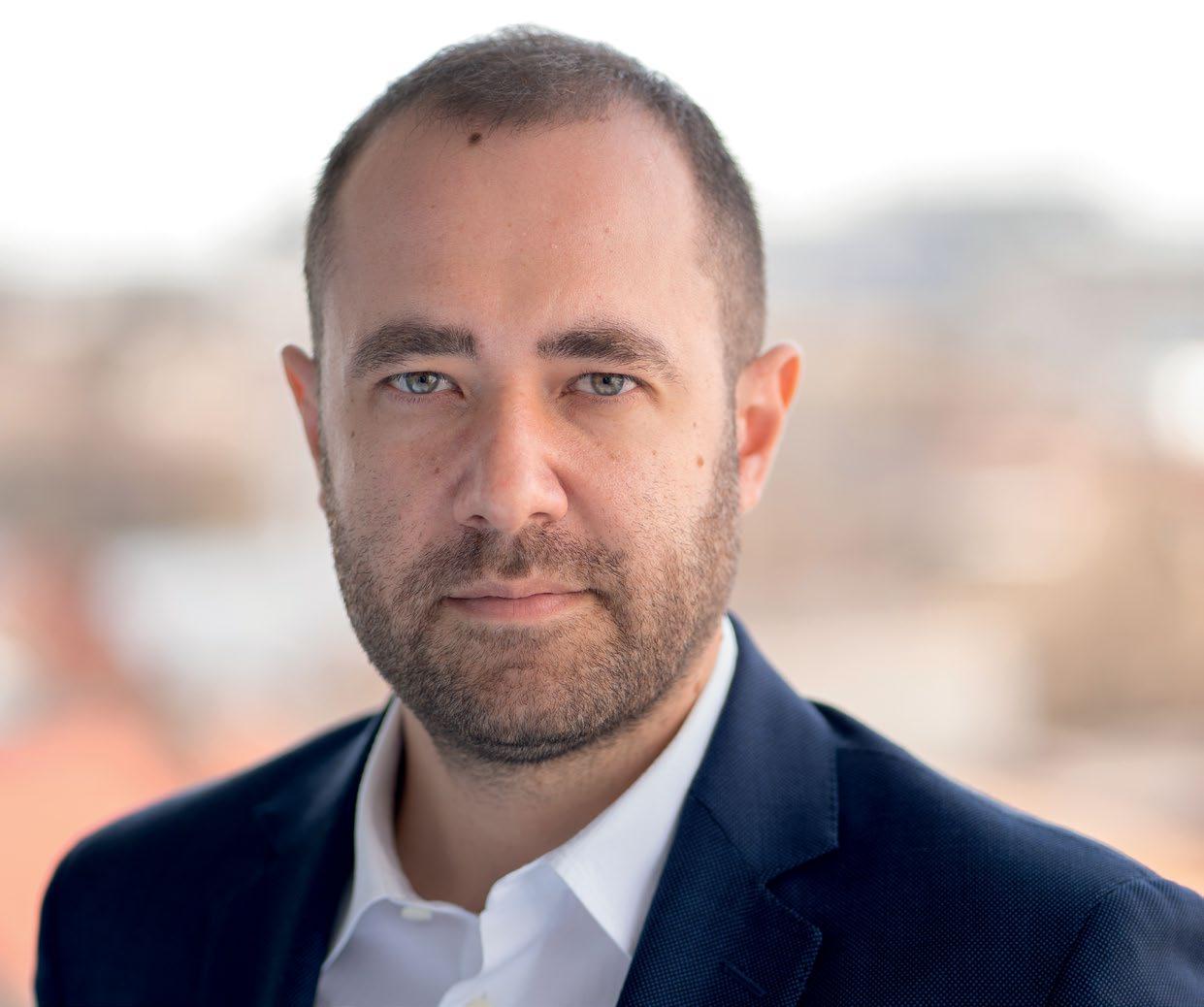
disrupted the market. Barring unforeseen events, prices are expected to remain stable or even decrease slightly, contingent upon weather conditions.
Q: As a key player in the energy sector, how does Romgaz leverage its local expertise and knowledge to collaborate with international partners, particularly German counterparts like E.ON Energie Romania, and what opportunities do you foresee for joint partnerships and new projects?
The recent deal with E.ON underscores the extent of our collaboration, its scale and complexity. E.ON stands as one of our primary partners, given its status as a major supplier. This reaffirms the integration between production, represented by Romgaz, and the supply chain reaching household consumers.
E.ON serves as the crucial link ensuring the security of energy supply at competitive rates for consumers.
Looking ahead, the development of the Black Sea is poised to attract considerable interest from German and European investors in Romania. Opportunities span various sectors such as fertilisers and petrochemistry, aiming to add value to the gas extracted from the Black Sea. It is logical for this added value to be realised within Romania's borders.
Romgaz remains receptive to partnerships at every level with companies seeking investment opportunities and a foothold in the Romanian market.
Q: Why should international investors consider Romania's energy sector as an attractive investment
opportunity compared to other countries, considering factors like economic growth, a talented workforce, strategic importance and advancements in innovation and technology?
Romania holds a prominent position in Europe's oil and gas sector, boasting significant historical expertise in these industries. Our nation benefits from a skilled workforce, with many Romanians returning from positions in the Gulf due to competitive wages offered domestically. Furthermore, Romania has a rich legacy in petrochemicals, a natural complement to its oil and gas heritage. The proximity of petrochemical facilities to gas production sites minimises transportation costs and risks, making it a logical choice. Moreover, Romania's substantial investment in renewable energy has sparked interest from European partners keen on supplying necessary components and collaborating on local production. Access to European funds and potentially lower financing costs, especially for larger companies with euro-denominated financing, further enhance synergies.
Despite significant growth, Romania acknowledges the need to catch up with other European nations. Nevertheless, the gap is narrowing steadily, evidenced by the success of European company subsidiaries operating in Romania. Their positive track record serves as a testament to the country's potential, attracting further investor interest. The success story of E.ON exemplifies this trend, benefiting both the company and the Romanian market.
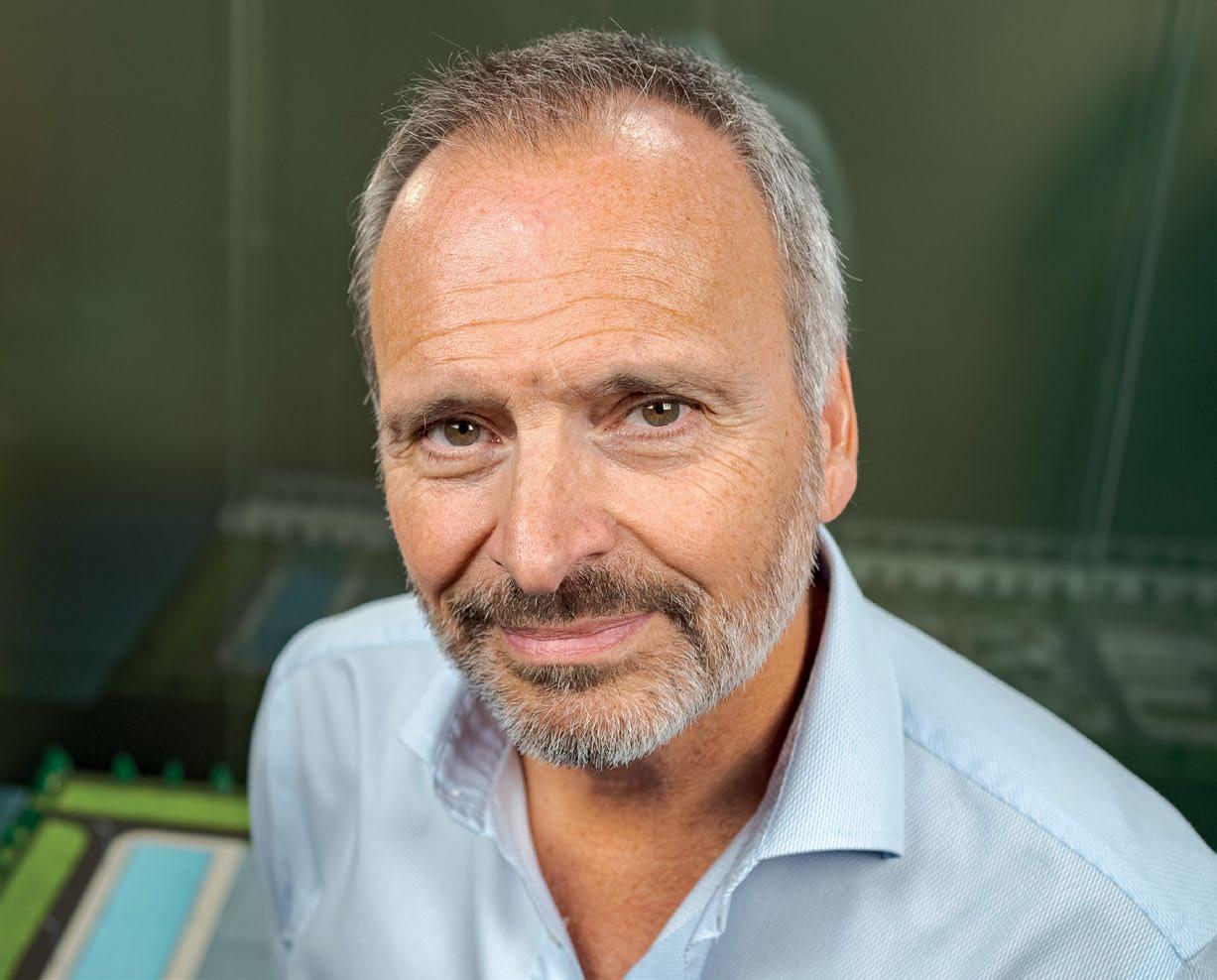
Mark Beacom, CEO of Black Sea Oil & Gas, discusses the complexities of Romania's energy sector, outlining strategies to utilize existing infrastructure for innovative projects like offshore wind and green hydrogen.
Q: What is the current assessment of the investment climate’s improvement in terms of government regulations and support for investors, amid ongoing challenges and opportunities?
Although it is well understood that Romania has substantial energy development potential on all fronts, execution risk remains high due to many blockages as well as fiscal and regulatory instability. On the positive side, there appears to be successful energy development activity in Romania, particularly in onshore solar and onshore wind energy. While these sectors have shown success, they are not within our core expertise, and, as we have no competitive edge in them, we focus our efforts elsewhere.
Our primary focus lies in offshore development and/or utilization of our existing infrastructure, where we have established significant offshore and onshore facilities over a decade, a feat unmatched by others. This infrastructure provides us with a considerable competitive advantage both for unlocking further development of offshore gas discoveries but also for green energy projects. In addition to advantages of having already in place the physical infrastructure and permits we also have a proven track record of
success including permitting, financing, construction, and operations.
It is essential to recognize the challenges particularly inherent in offshore development. Factors that pose significant obstacles include the presence of the Danube Delta Biosphere Reserve and Natura 2000 areas, near shore and offshore military exclusion zones, anchorages and harbors, the need to preserve coastal tourism and the challenge to build trust with local communities. Despite the vast coastline of the Romanian Black Sea, these numerous legitimate near shore issues pose significant restrictions in many areas.
Q: What percentage of available resources are currently open for potential exploration, and are there any specific numbers or figures you can provide to illustrate this?
The Black Sea has great potential for further gas projects but most importantly for offshore wind. 3rd party studies suggest up to 76GW of offshore wind potential could be developed. But building the necessary infrastructure is a big challenge. Getting gas or electricity from offshore where it is produced or generated through Black Sea waters, across the coast into onshore lands
and connected to the grid is tough, not just because of regulatory challenges inherent to Romania but also because of the real physical and environmental issues outlined already.
Our existing infrastructure, our experience and the community support not only gives us an edge for developing further offshore gas projects but also for developing future offshore wind projects, even though we're not traditional wind developers.
Q: Can you share insights into your company's innovation strategy and highlight any newer technologies or operational approaches being implemented to enhance efficiency and optimize processes?
Our story is mostly about organization, culture and know-how as the development does not require cutting edge technology. We are however using the latest in communication and computing advancements to run our operations smoothly particularly as our offshore operations are unmanned and remotely operated. We even use troposcatter transmission and communication technology, which is usually used only for the military, to transmit data. Looking forward, we want to help green energy grow. Our offshore platform gives us chances for future projects, even after our reservoirs are depleted. Further to facilitating the development of offshore wind farms, we are thinking of utilizing the excess power from these offshore wind farms to provide power to the offshore platform and we'll use electrolyzers to be installed on the platform to turn this extra power into green hydrogen.
Then, we'll send it through our already existing pipeline to be compressed at our already existing plant and put into the national power system through our already existing connection.
There is also the possibility to use the infrastructure and the depleted reservoirs for carbon capture, but I believe green hydrogen is likely a better option.
But there are challenges, like having a ready market for H2 and improving the technology. Still, we believe our infrastructure will shift to green hydrogen or CCS, as the case may be, when market conditions become a reality. Our main aim is to make our project part of the solution for sustainable energy.
Q: Have you received any interest or partnerships from German entities, whether investors or collaborators, especially considering Germany's expertise and strong presence in renewable energy?
With respect to renewable energy, we are focusing on onshore solar on our lands to power our gas treatment plant. We are also investigating up to a 3GW offshore wind corridor along our pipeline route and our lands onshore to facilitate bringing power from offshore wind farms along our corridor to a reception facility at our gas plant to be tied into the grid.
We are also looking to get into biogas. Germany is leading the way in biogas, and Romania is ranked 6th in the EU in terms of feedstock potential. Biogas comes from organic waste from food and municipal waste, farm leftovers, and manure. In Romania, though, in addition to a number of challenges for attempting to build a viable biogas project, there are also no subsidies for biogas like in the UK, France, and Germany. Still, with strong attention to detail, careful planning and hard work, we believe we can make it work. We have faced challenges like we did with our gas project and we were ultimately successful.
We are open to teaming up with experienced partners in Biogas and in Offshore Wind to join us in overcoming the challenges in these exciting new fields.
Q: What are the main priorities for the company this year, focusing on leveraging existing infrastructure, exploring new projects like biogas, and attracting international partners to maximize potential opportunities, and what key areas are you, as the CEO, closely monitoring to ensure success in these endeavors?
In 2024, we are focusing on reducing emissions at our operations mostly through the use of solar power generation at our gas treatment plant and we are also looking at Biogas as a potential new business. On the longer-term projects such as Offshore Wind and Green Hydrogen or CCS, critical technical and regulatory investigations and analyses are underway in 2024 to ensure we are ready to launch when these opportunities become more real.
Allen Coliban, Mayor of Brașov, highlights the city's strategic achievements in securing funding and developing projects that enhance health, mobility, and sustainability, positioning Brașov as a pioneering city in Romania.
Q: What achievements has Brașov realized in terms of funding and development projects, and how have these efforts impacted various sectors like health and mobility within the community?
Our success has made Brașov a model for best practices across Romania, drawing interest from other cities. The collaborative effort involving the local administration, high schools, and business clubs ensures the sustainability and expansion of the dual education system. In just two years, we tripled the number and value of projects funded by European
” We boast nearly 100% electric public vehicles, with plans to expand our fleet through European funds.”
money, totalling 1.6 billion lei. These projects cover various sectors, including mobility and health, which are essential for our local
community. We are constructing two hospitals: a regional facility for lung and infectious diseases, totalling around 500 million euros, and another with a budget of 100 million euros. Additionally, a medical city concept is being developed in the northwestern part of Brașov.
”
Our success has made Brașov a model for best practices across Romania, drawing interest from other cities.”
Q: Can you elaborate on Brașov's initiatives toward sustainable mobility and energy independence, particularly your plans involving electric public transportation and the construction of a solar park?
Our philosophy now centres on sustainable mobility, focusing on electric public transportation. We boast nearly 100% electric public vehicles, with plans to expand our fleet through European funds. We are in the process of constructing our own 20-megawatt solar park. This project is being developed to make it operational in the coming months. The solar park will power public buildings, schools, and high schools, provide public lighting, and even support snow preparation on the slopes. A program encom -
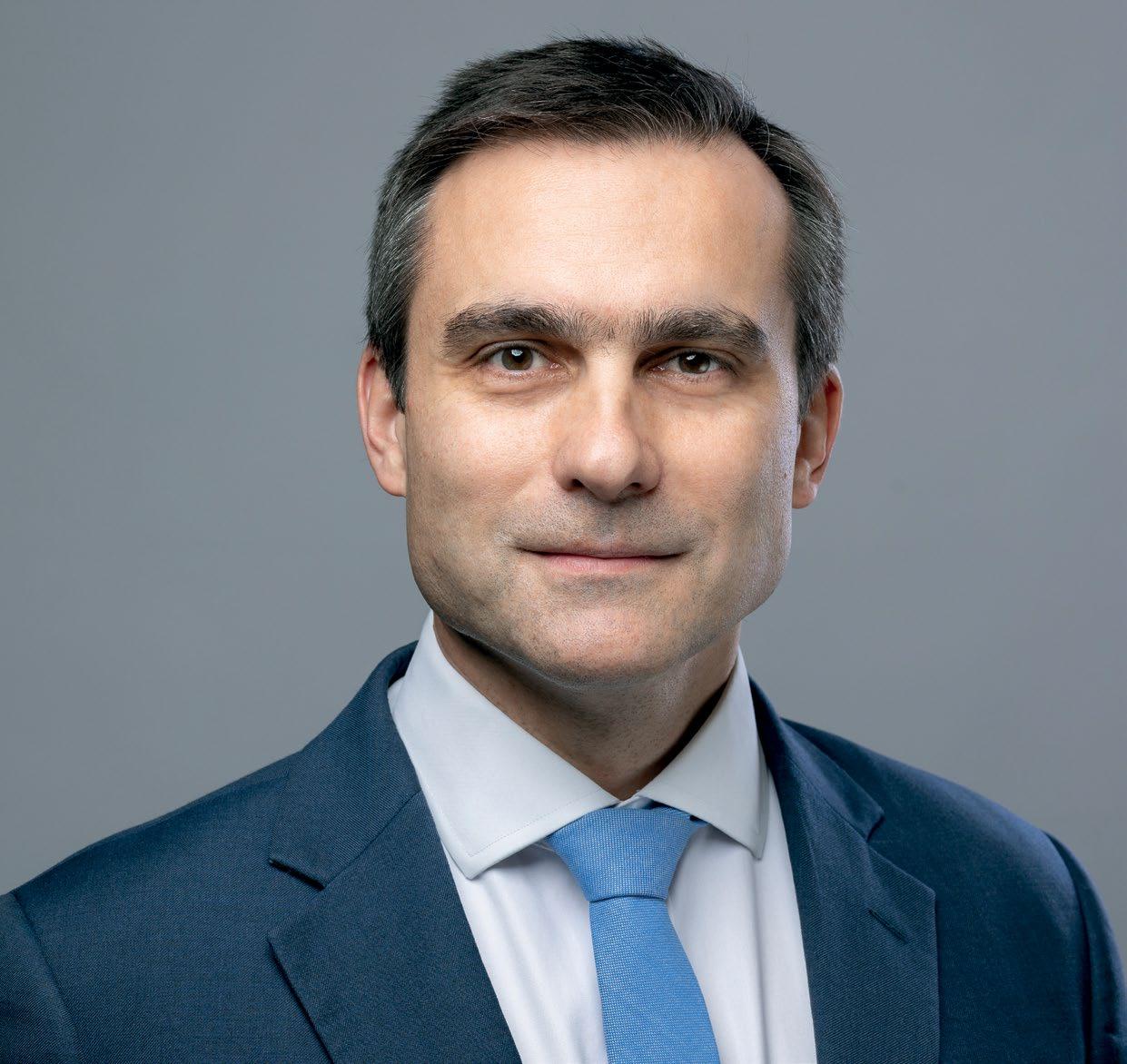
passes 27 schools and educational institutions, integrating solar panels into their structures
Q: How is Brașov enhancing its appeal as a tourist destination through its cultural, historical, and natural assets, and what steps are being taken to diversify the types of tourism catered to in the city?
Brașov's medieval history, diverse cultural offerings, and connection to nature make it a unique and appealing destination. We aim to diversify tourism, including backpackers, business, medical, and historical tourism. We're working on a new strategy and have submitted the documentation for DMO certification, which is expected to be operational soon.
A significant challenge is making our city appealing to young residents
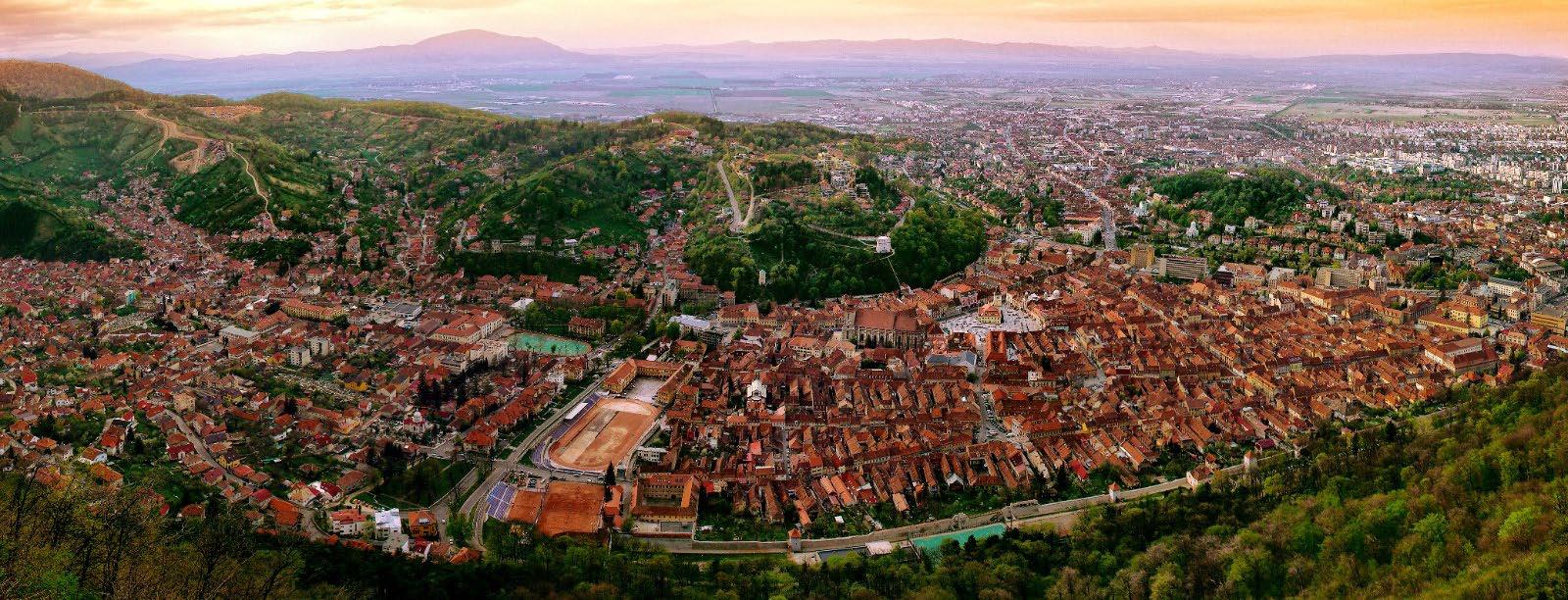
regarding career options. While jobs like waiting tables or assistant chefs may be viable for students, there's a scarcity of high-paying roles in this sector. Therefore, as we boost tourism, we must also consider how to develop industries and opportunities that appeal to our youth.
Q: What strategies are you implementing to attract foreign investment to Brașov, and how are you promoting the city's potential to investors at international events like Expo Real in Munich? We have participated in events such as Expo Real in Munich to attract investors, presenting Brașov and its opportunities. InvestBraşov. org is a one-stop shop for potential investors, providing comprehensive information on demographics, workforce, and other relevant data.
